- +44 (0)1482 251819
- +44 (0)7360 538906
- [email protected]
- Get in touch

MA in Creative Writing (Online)
Transform your passion for reading into the ability to produce prose worthy of public recognition .

- WHAT YOU LEARN
- COURSE MODULES
- HOW YOU'RE ASSESSED
- ENTRY REQUIREMENTS
- CAREER PROSPECTS
Course details
Additional costs: due to the nature of the subject, and copyright restrictions placed on institutional libraries by some publishers, students will need to purchase some core texts.
Support with your application: Contact our course adviser team today for application advice.

Why this MA in Creative Writing?
It was Hull where Philip Larkin lived and worked at the University's Brynmor Jones Library for 30 years, writing most of his best work. A seafaring city that connected outwards and brought some of the exotic back to northern England.
Embracing Hull's global-facing outlook, MA Professor and accomplished author Martin Goodman describes the University's MA Creative Writing as an inspiring and collegial environment for online students who want to develop their distinctive voice as a creative writer.
There is also the option to attend face-to-face events , as you seek public recognition and become a valued, active member of a vibrant international creative writing community.
What you learn
Transform your passion for reading into the ability to produce prose worthy of public recognition. Whatever your genre of preference, be it literary fiction, nonfiction, or the likes of fantasy, mystery or romance – you will have the opportunity to hone your creative writing skills and discover the techniques seminal writers have used to significant effect:
push your creative boundaries and give shape to a strong and original creative voice
expand your knowledge of the literary canon and acquire the art of reading as a literary writer
gain an in-depth knowledge of structure which will help you towards a deeper understanding of your writing process
become conversant with a range of textual elements such as the use of dialogue, point of view, perspective and sensory detail and apply learned technique to your preferred writing genre
take your place within the international creative writing community. Critique the work of others and engender the view of published writers as colleagues from who you can learn
- develop your practice as a creative writer, understand the editing and re-drafting process necessary to produce prose of a publishable standard.
Your questions answered Programme Director Dr Chris Westoby answers some key questions about the course, including which modules you'll study, how you'll learn online, and the entry requirements.

[upbeat music plays throughout]
Dr Chris Westoby: So there are five modules over the course of two years. You're introduced to the programme with The Writer's Craft, which is designed by our programme founder, Martin Goodman. The Writer's Craft teaches you key writing concepts at MA level, how to analyze the work of exemplary authors and locate what makes their writing successful, so that you may apply such skills within your own practice, and you work upon and strengthen your unique writing voice.
This acts as your your foundation, your springboard, from which you launch into the central three genre specific modules. So you have Writing the Short Story, Writing from Life and Writing the Novel where you study and practice specific modes of writing in-depth.
By the end of these four taught modules, you'll be well equipped and raring to embark upon The Writer's Portfolio. This double length and double weighted module sees you liftoff into an extended writing project of your own design.
With the support of a supervisor chosen to help bring out the very best in your work. You learn through a a combination of writing exercises, lectures, guided critical reading, discussion, forums, workshops and webinars.
Well, this is hard to quantify because everyone works at different speeds, which is absolutely fine and part of what we're proud to accommodate. There are also extra elements to each model, which some students may wish to engage in such as further recommended reading.
Our standard entry requirements are a 2:2 BA honours degree or international equivalent.
However, we also recognize other forms of prior experience and therefore encourage anyone who is interested in the programme to get in touch.
Your application may discuss where your career has taken you so far and why this equips you with the skills designed to join this program. You might discuss other writing courses you've attended, which have provided a strong foundation. You might discuss inroads you have made into publication, all of which shows that you are ready to start sharing your work and have practiced polishing it.
Or you may simply demonstrate the strength of your potential as a writer through your creative writing sample.
Even without the standard entry requirements, you may be the ideal candidate for this programme. There are a number of non standard ways in which you may be considered, so please do get in touch.
Your assigned course advisor will help you form an application that lets your unique strengths shine.
Student work
.webp?width=230&height=352&name=Jinny%20AlexanderJeanette%20Everson%20-%20Dear%20Isobel%20(1).webp)
Dear Isobel
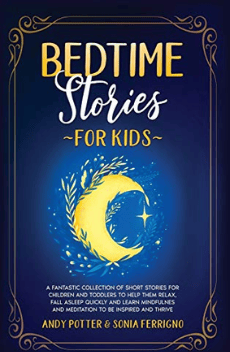
Bedtime Stories for Kids
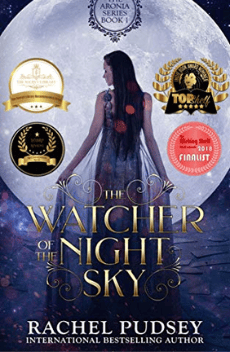
The Watcher Of The Night Sky (Book 1)
.webp?width=230&height=352&name=Post-Midnight%20Blues%20-%20Rae%20Toonery%20(1).webp)
Post-Midnight Blues
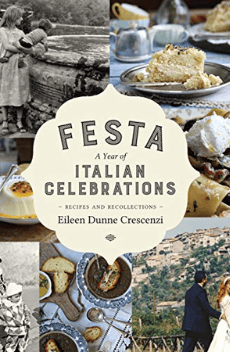
Festa: A Year of Italian Celebrations - Recipes and Recollections
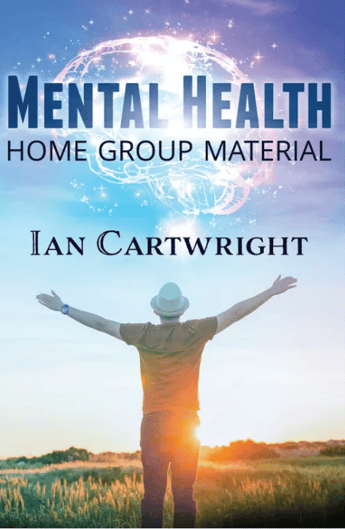
Mental Health Home Group Material
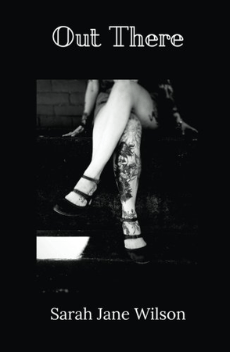
Into Your Blues
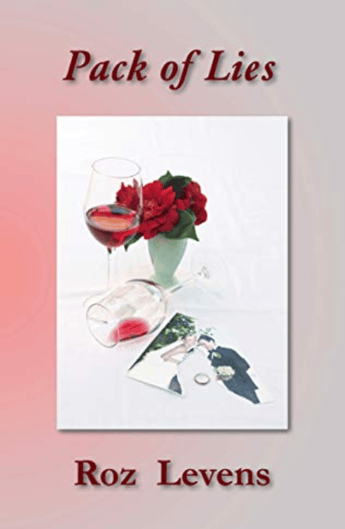
Pack of Lies
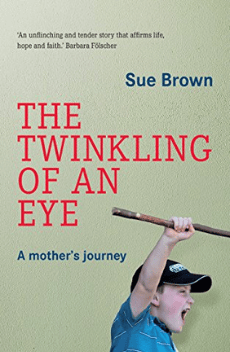
The Twinkling Of An Eye
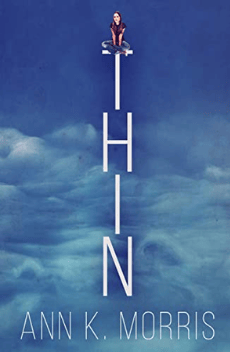
Distant Voices: An anthology of stories
Course modules.
This masters degree allows you to develop your confidence and craft as a writer within a supportive, creative environment.
You study the following compulsory modules.
Because writing takes fire in the readers' mind, in this module, you will examine a wide range of literary works. Focusing primarily on textual elements including; sentence length and flow, perspective, choices of tense you will develop an understanding of how writers achieve their effects. Presented with sections of exemplary writing, you will move from your own visceral responses (e.g., excitement, intrigue, fear) to tracking how the writer deploys elements of craft to trigger desired emotions and atmosphere.
Short stories allow emerging writers to complete narrative arcs and establish a reputation through published works before tackling the longer form of a novel. In this module not only will you develop an appreciation of short stories from a range of international writers, but you will take the short story form and make it your own. Note that this module will also cover two sub-genres within the form; micro-fiction and flash fiction.
This module will introduce you to a wide range of nonfiction prose with a particular focus on travel writing, the essay, memoir, nature writing, and true-crime. You will produce your portfolio of work while practising a range of narrative nonfiction forms within a supportive, peer-driven environment.
What is it about an opening chapter of a novel that makes it virtually impossible to put it down? Throughout this module, you will improve upon your novel writing skills. The critique of your writing in a workshop setting will help you develop a keen awareness of narrative and narration along with a deep understanding of archetypes as an essential part of storytelling. As you develop plot and structure, you will employ editing and redrafting techniques to produce work you are proud to publish.
Creative writing is a rewarding process which requires immense personal discipline. In this module, you will receive guidance on how to structure your writing practice in this respect. Your prose portfolio (up to 15,000 words) represents the culmination of your MA Creative Writing programme. Here you will demonstrate your originality of ideas, grasp of technique and craft, presenting a unique and accomplished body of work to a publishable or near publishable standard.
Hear from our Alumni
Hear their stories, discover their motivations and the obstacles they overcame, and gain valuable insider perspectives.
Join us in May 24
What are the entry requirements.
A minimum 2.2 Bachelor Honours degree or international equivalent . Applicants who do not meet this requirement may still be considered, but will need to present examples of relevant published work with their application
A creative writing sample (fiction or non-fiction) of 1,500 to 2,000 words
- A personal statement of around 300-500 words. Click here for details of what should be included
An IELTS 6.0 score (with minimum 5.5 in each skill) if your first language isn’t English (or other English language proficiency qualifications accepted by the University of Hull )
One professional or academic reference
If you're unsure whether you're eligible to apply, please get in touch with our friendly course adviser team for advice:

“I chose Hull because I wanted to study somewhere where I would be pushed to break free from my comfort zone."
How you're assessed.
All assessments for the course are based on coursework and submitted online. There are no exams.
Assessment methods
Your performance on the course will be assessed through a range of methods including:
ongoing tutor and peer feedback
practical work, including group projects and discussion forums
Written assessments
You’ll also be asked to complete a variety of written assessments including:
Critical and creative responses, where you provide examples of crafting skills in work that interests you, and then provide short writing samples that utilise those techniques in your own work
Prose portfolios, comprising one or two pieces of original work
Commentary pieces, describing your ambitions and intent for your prose portfolios
Get more detailed information on the course assessment methods page:

Teaching team

Professor Martin Goodman

Dr Christopher Westoby
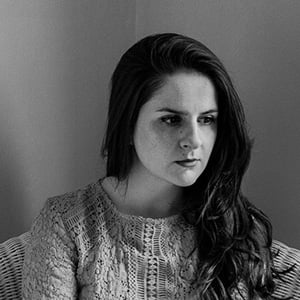
Dr Karina Lickorish Quinn
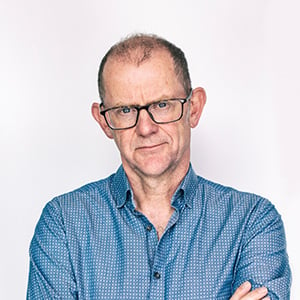
Dr Mick Jackson
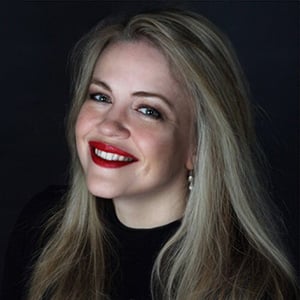
Dr Kate Horsley
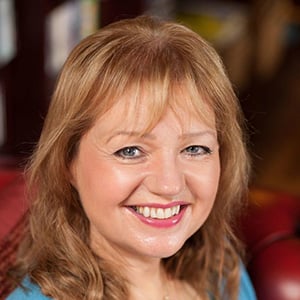
Barbara Henderson
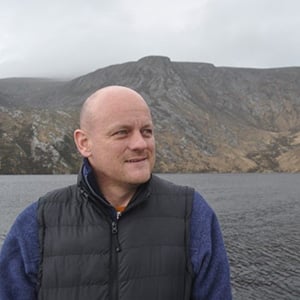
Tim Hannigan
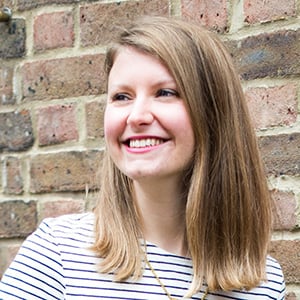
Dr Megan Hayes
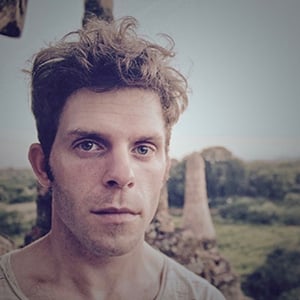
Dr Elizabeth Watkinson
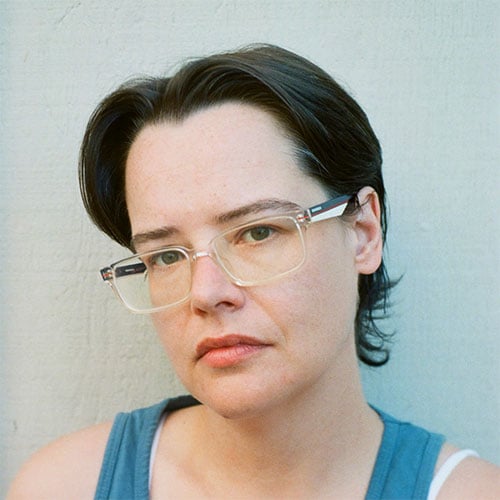
KR Moorhead
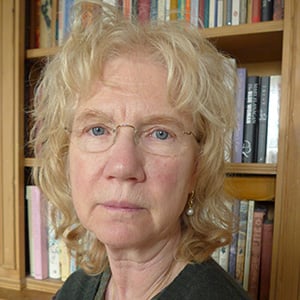
Maggie Hamand
Broaden your horizons with face-to-face events.
At the University of Hull, we believe it’s important for students to feel a sense of connectedness, whether they’re studying on campus or online. This is why we hold up to two face-to-face events per year with creative workshops, talks from visionary academics, and a glance into the UK’s thriving creative writing community. Students from previous events have:
- Formed lasting friendships with fellow creatives
- Refined their creative writing style on the back of discussion and constructive criticism
- Drawn inspiration from new perspectives and literary genres
- Picked up insider knowledge on how to get their work published
Want to flex your creative muscles, meet your tutors in-person, or form a rapport with like-minded people? You can do all this and more, while exploring topics outside of your course modules. Stay tuned for updates on our face-to-face events – we’d love to have you join us!

What makes this course stand out? Hear from Programme Founder Professor Martin Goodman about what sets this Creative Writing masters degree apart.
[inspirational music plays throughout]
Hello I'm Martin Goodman, Professor of Creative Writing here at the University of Hull. I'm Director of this MA Online Creative Writing program. And I'm a writer like you. So part of our program here is to welcome fellow writers and encourage you to be the best writer you can be. This course for anybody who wants to take their creative writing seriously, for whom it's something very important. It's probably been very private 'til now, but you're ready to share it, and you're ready to share it, ideally in this online environment. This suits you. Writing is quite a private thing that happens on paper. But we know we have to share it at some times if we're going to reach other readers. So this is what we aim to do with you. The way this course works is to bring you through several different modules. The first one is writer's craft, where we will examine other writers and exemplary pieces of writing and their techniques, how they make their writing work and other readers' minds. And then you build up these skills as you're going through modules about writing the story of writing the novel, writing from life, and then you're released into an extended piece of writing, and that is where you're following the form that most appeals to you. We designed this course to help you build yourself into being the complete prose writer. For me, it's actually been very important to try out all of these fields. So I write novels, I write short stories. I also write non-fiction, I write biographies, I write travel pieces, I write reviews. All of these things are part of what makes a writer able to sustain a living in the world. And you don't have to always be working from your imagination. There's always something you can go to. And in each of these, you're also building up your own skills. So if your main desire in life is to be a novelist, the skills that you can find from learning how to write the creative nonfiction, writing from life, or how to build a little character arc within a short story. These are all essential to you. Every little piece of skill that you develop in writing any form will go into the form of your choosing. It's very important to me that we create a protected space around you. So you're not writing according to what some publisher takes as being that fits my box. You're writing the best work that can emerge from yourself inside this protected space, so it's not judgmental at all. We're completely free. We're saying, begin to yourself and write from that hidden space inside of you. I know that a lot of students are really bursting with their creative writing and looking for feedback, but they find it very hard to get into the classroom. Sometimes it's not good if you're a quiet person to have to face the bustle of a classroom, to have to put out your writing at this particular moment. It's much simpler to do that in your own time, to sort of breathe in. You post it online, and then other people can review it in their own time. That's really what this online course is doing. It is connecting the world through brilliant writers.
Career prospects
By studying this course, you should gain the confidence and practical skills necessary to produce creative writing of a publishable or near-publishable standard, in your genre of choice.
Want to get published?
Programme Director Dr Chris Westoby discusses how studying creative writing at Hull led to his first book:

You'll also gain valuable transferrable skills which are in-demand across the creative industries and beyond.
MA Creative Writing graduates often go into successful careers in a broad range of industries, such as
professional writing/authorship
marketing and PR
heritage and tourism
journalism and broadcasting
museum curating
Ready to apply?
Our step-by-step application process is easy to follow.
The University of Hull and its digital courses provider, Hull Online Limited, delivered in partnership with Cambridge Education Group Digital (CEGD), will only use your personal data to contact you in relation to our courses. For further information, please see the privacy policy .

Creative Writing MA
Get inspired and take your creative writing to the next level on this degree. Develop the skills to succeed in your career as a writer, editor, publisher, or journalist.
Key information
- 1 year full-time
- 2 years part-time
- September 2024
Course information
Please select the page of your interest
Showing content for section Overview
Where better to take your writing to the next level than the home city of literary greats like Charles Dickens and Sir Arthur Conan Doyle?
On this MA Creative Writing degree course, you'll study the genres that inspire you the most – from poetry and historical fiction, to screenwriting and crime – as well as genres you may not have explored, taking your writing in new directions.
You'll spend plenty of time writing and reviewing work and benefit from the help and experience of our expert lecturers. You'll develop the confidence to become a better writer by learning to critique your own work, and that of your peers. There's even the chance to take up a placement at a famous literary magazine.
If you're imaginative, ambitious, and ready to devote yourself to improving your writing, it's time to take your studies to the next level with us. This Master's in creative writing will give you the tools you need for a successful career as a writer, or in fields such as publishing, media, and education.
Eligibility
This course accepts UK, EU, and international students.
Course highlights
- Build confidence as a writer and consolidate your creative writing skills
- Get to grips with different writing techniques and study contemporary skills to inspire and entertain your audience through the power of the written word
- Complete a major project in the form of your own novel, screenplay or poem
- Participate in writers' workshops, where you'll develop your own skills and constructively contribute to the work of others
- Learn from our expert lecturers and creative writing academics, all of whom are published authors with a vast wealth of experience in the industry within their specialisms
- Learn about the market and current debates within differing genres
- Hear from accomplished guest speakers from the worlds of publishing and writing
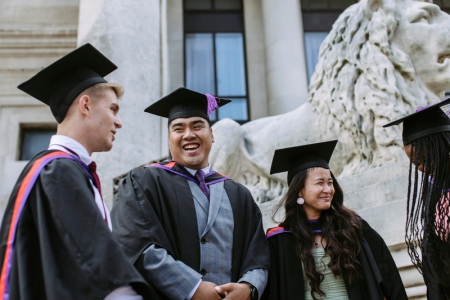
Joining us as an international student
You'll feel at home in our international community and our diverse city. You'll be joining over 5,000 international students from more than 150 countries who are studying with us.
Learn more about international student life and how we can help you with visas, applications, arrival and settling in.
Information for international students
Take a literary history tour of Portsmouth with us
From Charles Dickens and Sherlock Holmes to Neil Gaiman, Portsmouth is steeped in lively literature. Join two of our students for a tour around our literary city.
Chibuzor and Holly: Welcome to Portsmouth.
Chibuzor: Our island city has a really rich history of literature and culture.
Holly: Come and join us for a tour.
Chibuzor: One of our most famous literary residents is Charles Dickens, who was born here on Old Commercial Road. It is now home to the Charles Dickens Birthplace Museum.
Holly: Portsmouth is also the birthplace of another famous figure. Arthur Conan Doyle wrote his first Sherlock Holmes story while practising as a doctor here in Southsea. Now you can walk in his footsteps while doing a spot of shopping on Elm Grove.
Chibuzor: Thinking of shopping, our popular Gunwharf Quays features in Graham Hurley's DI Faraday crime novel, The Take. Graham Hurley is a friend of the English Literature programme. If you study with us here at the University of Portsmouth, you may get a chance to work with him in class.
Holly: There is literally an ocean at the end of this lane. It was renamed in honour of the famous novel by Neil Gaiman, who lived just outside of Portsmouth and spent many holidays here with relatives in the city.
Chibuzor: As an island city, Portsmouth has had a huge influence on authors both from home and abroad. Jane Austen often visited here to see her brothers, who were stationed here with the Royal Navy. She was inspired to include Portsmouth in her novel, Mansfield Park.
Holly: Stephanie Norgate's poem, Ferries at Southsea, was inspired by the view of ferries here on Clarence Parade Pier. Her poem is strongly rooted in the local area, but also tackles global issues of immigration.
Chibuzor: Portsmouth’s naval history means we can't shy away from the topics of race and slavery. The first slave narrator, Ukawsawa Gronniosaw, visited our city, while John Jea, another former slave, was a prominent preacher near the docks. Their memoirs movingly reveal the city's black history.
Holly: As we move into modern day, we have authors and poets tackling issues both big and small. Poet laureate Simon Armitage studied at the University of Portsmouth. Local poet Denise Bennett has written on Portsmouth Jewish history, and Fatima Bhutto featured Portsmouth in her contemporary novel on Islamic culture. As well as its fabulous literary history, Portsmouth also has a really vibrant, creative writing community, and you can be a part of it if you decide to study here.
Chibuzor: Our final stop is Milldam building. Originally a mill pond, it was featured in a long forgotten novel by Walter Besant, who was a contemporary of Charles Dickens. The Navy drained the pond and built officer quarters here. Then it changed hands and became home to the English Literature team at the University of Portsmouth.
Holly: Which means Portsmouth is home to the next generation of writers, thinkers and world shapers.
Chibuzor: We hope you join us.
Contact information
+44 (0) 23 9284 5566
What you'll study (full-time)
Core modules, critical reading for creative writers - 30 credits enhance your creative writing by studying a wide range of inspiring texts..
This module takes you on a critical journey through various genres and time periods, from fairy tales to philosophy. Discover how to interpret writing through lectures, interactive workshops, and presentations. Hone your skills in understanding literature, crafting solid arguments, and using literary theories to refine your writing — be it prose, poetry, or scripts.
You’ll learn how to read critically in different situations, connecting with classic and contemporary authors. This will help you gather valuable knowledge to shape your unique writing style.
By the end of this module, you’ll have developed the analytical tools and creative techniques to enrich your writing and establish a voice that is distinctly your own.
Writer's Workshop: Exploration - 30 credits Find and refine your unique writing style in this foundational creative writing module.
The Writer’s Workshop offers a friendly environment to experiment with various types of writing. It will help you find what you love and where you excel. By writing in different formats, like prose and poetry, you’ll improve your technique and originality. Get help on how to draft and revise your work, learning to explain your creative decisions at every step.
By the end of the term, you’ll have sharpened your abilities and laid out a path for your final dissertation.
Critical Thinking for Creative Writers - 30 credits Deepen your creative writing by engaging with critical literary theories.
This seminar-focused module will introduce you to essential theories from academic criticism that apply to the art of writing. Through conversations, research, and hands-on activities, you'll explore timeless texts to grasp powerful writing principles. You’ll also critique these theories related to your own work, honing the ability to incorporate both original and scholarly sources effectively.
Dive into vital scholarly viewpoints to strengthen the core of your distinctive writing style.
Final Project: the Creative Practice Dissertation - 60 credits Create your defining work in this final module, aimed at crafting an impressive collection of your original writing.
With tutor guidance, you’ll refine your creative process. Apply analytical insight to elevate your work to a professional level. Your comprehensive portfolio will reflect your capacity for dedicated, autonomous work.
With this module, you can show how well you can blend genre-specific techniques with critical self-reflection. Through commitment and creativity, you’ll finish your course with a powerful testament to your talents.
Writer's Workshop: Resolution - 30 credits Bring your creative writing talents into sharp focus in this advanced workshop.
You’ll use research, reading, and discussion to critically reflect on your skills and interests, setting the stage for an ambitious final project. Armed with genre knowledge and preparatory writing skills, you'll perfect your opening chapters or scenes through feedback. By examining your methods and considering feedback, you’ll enhance your technique and vision.
This module provides essential groundwork to resolve your ideas into a polished dissertation that showcases your writerly voice.
What you'll study (part-time)
Changes to course content.
We use the best and most current research and professional practice alongside feedback from our students to make sure course content is relevant to your future career or further studies.
Therefore, some course content may change over time to reflect changes in the discipline or industry. If a module doesn't run, we'll let you know as soon as possible and help you choose an alternative module.
Careers and opportunities
Careers this master's in creative writing prepares you for.
As a successful graduate of this course, you'll have experienced an exciting immersion into writing, with the freedom and discipline of writing across multiple forms to express your unique narrative voice.
Through workshops, independent writing and critical analysis, this creative writing Master's course will help you to develop your own skills and constructively contribute to the work of other writers.
When you graduate, you'll have completed a major project in the form of your own novel, screenplay or poem, and have developed the necessary confidence and critical skills to continue a career in writing, or in fields such as publishing, media, and education.
Graduates of this course have gone onto roles in:
- Public Relations (PR)
Recent graduates of this course have found jobs such as:
- Account Executive
- Article portfolio writing
- Freelance sports journalist
- Freelance writer
- Social Media Manager
9 reasons to do a Master's
Career outcomes shown are sourced from the latest available graduate outcome surveys. The data shows career outcomes at 15 months after graduation.
Career planning
During your course, you'll have expert career support from your tutors and from our Careers and Employability Centre, which you can access for 5 years after you graduate.
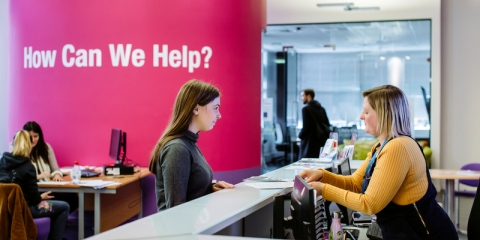
You'll benefit from:
- Networking events and industry links, including the opportunity to attend five industry parties at The London Magazine
- 1-to-1 appointments
- CV and cover letter advice
- Interview preparation and practice
- Workshops to enhance your employability skills
- Recruitment events including the Student and Graduate Opportunities Fair
- Support starting your own business
Placements and industry connections
There is the opportunity to either work in London at The London Magazine offices for a two-week placement, or undertake a virtual placement working at The London Magazine dealing with submissions to the magazine.
All teaching staff are published authors and have a vast wealth of experience in the industry within their specialisms.
How you'll spend your time
We recognise that you'll probably be juggling more demands when you do your Master's degree, as you may be working or you may have family responsibilities.
We'll give you as much indication here as we can of how much time you'll need to be on campus and how many hours you can expect to spend in self-directed study, but please note that these indications are always subject to change. You should receive your full timetable several weeks before you start with us.
Course structure
This Master's degree will take:
- 1 year (full-time study)
- 2 years (part-time study)
You can expect:
- 1 day of teaching per week (pro rata for part time students)
- Around 20–25 hours of dedicated independent study each week (pro rata for part time students)
At the moment, teaching takes place on Fridays, leaving you the rest of the week for self-guided study.
Master's study is deeper and more specialised than an undergraduate degree. This means you'll focus on something that really matters to you and your career as you work closely with academics committed to the subject.
You'll spend more time in independent study and research than you did for your undergraduate degree, but the majority of your teaching time will be in-person and face-to-face.
Teaching methods on this course include:
- independent writing
- critical analysis
You'll be assessed through:
- creative writing projects
- final creative writing project
Teaching staff
These are some of the expert staff who'll teach you on this course:
Dr Steven O'Brien
Senior Lecturer
School of Film, Media, and Communication
Faculty of Creative and Cultural Industries
PhD Supervisor

Dr Tom Sykes
Associate Professor in Creative Writing and Global Journalism
September start
The Master's academic year runs from September to the following September. There are breaks at Christmas and Easter. Over the summer you'll be writing your project/dissertation.
See key dates
Writing and scripting software
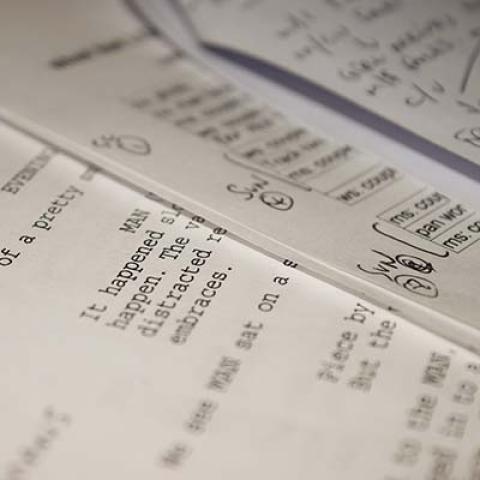
Open Access Suite
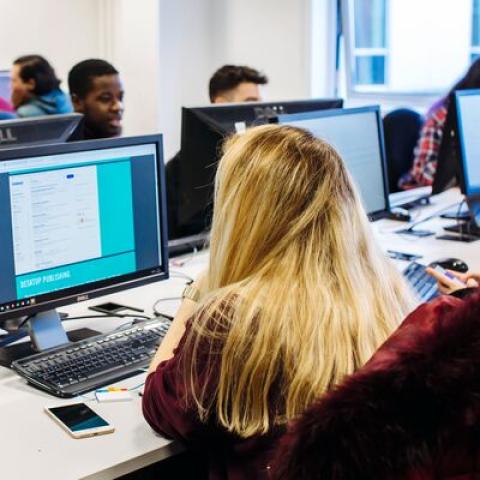
University Library
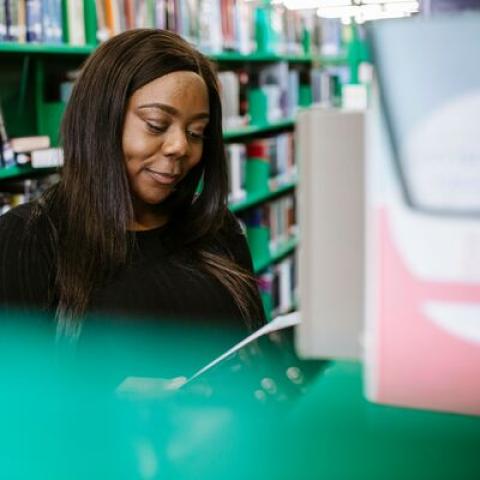
Supporting you
Master's study is more focused on independent learning than undergraduate study, but you'll get lots of support via video, phone and face-to-face from teaching and support staff to enhance your learning experience and help you succeed. You can build your personalised network of support from the following people and services:
Types of support
Personal tutor.
Your personal tutor helps you make the transition to independent study and gives you academic and personal support throughout your time at university.
You'll have regular contact with your personal tutor in learning activities or scheduled meetings. You can also make an appointment with them if you need extra support.
Student support advisor
Creative skills tutors, academic skills tutors.
You'll have help from a team of faculty academic skills tutors. They can help you improve and develop your academic skills and support you in any area of your study.
They can help with:
- improving your academic writing (for example, essays, reports, dissertations)
- delivering presentations (including observing and filming presentations)
- understanding and using assignment feedback
- managing your time and workload
- revision and exam techniques
IT and computing support
Academic skills support.
As well as support from faculty staff and your personal tutor, you can use the University's Academic Skills Unit (ASK).
ASK provides one-to-one support in areas such as:
- academic writing
- note taking
- time management
- critical thinking
- presentation skills
- referencing
- working in groups
- revision, memory and exam techniques
Disability advice and additional support
If you require extra support because of a disability or additional learning need our specialist team can help you.
They'll help you to
- discuss and agree on reasonable adjustments
- liaise with other University services and facilities, such as the library
- access specialist study skills and strategies tutors, and assistive technology tutors, on a 1-to-1 basis or in groups
- liaise with external services
Wellbeing and mental health support
Our online Learning Well mini-course will help you plan for managing the challenges of learning and student life, so you can fulfil your potential and have a great student experience.
You can get personal, emotional and mental health support from our Student Wellbeing Service , in person and online. This includes 1–2–1 support as well as courses and workshops that help you better manage stress, anxiety or depression.
Library support
Library staff are available in person or by email, phone, or online chat to help you make the most of the University’s library resources. You can also request one-to-one appointments and get support from a librarian who specialises in your subject area.
The library is open 24 hours a day, every day, in term time.
Support with English
If English isn't your first language, you can do one of our English language courses to improve your written and spoken English language skills before starting your degree. Once you're here, you can take part in our free In-Sessional English (ISE) programme to improve your English further.
Course costs and funding
Tuition fees (september 2024 start), uk, channel islands, and isle of man students.
- Full-time: £8,200
- Part-time: £5,470 (Year 1) and £2,730 (Year 2)
EU students
(including Transition Scholarship )
International students
- Full-time: £17,200
- Part-time: £11,360 (Year 1) and £5,840 (Year 2)
University of Portsmouth graduates may receive a 20% alumni tuition fee discount .
Fees are subject to annual increase. Read our tuition fees terms and conditions .
You'll be able to pay your fees in instalments. Find out how to pay your tuition fees .
Funding your studies
Explore how to fund your studies, including available scholarships and bursaries .
If you're a UK student, you may be eligible for a Government Postgraduate Master's Loan , which you can use to help with course fees and living costs.
Loans, scholarships and bursaries
Browse funding such as the Government Postgraduate Loan, our scholarships for new and returning students, and subject specific loans.
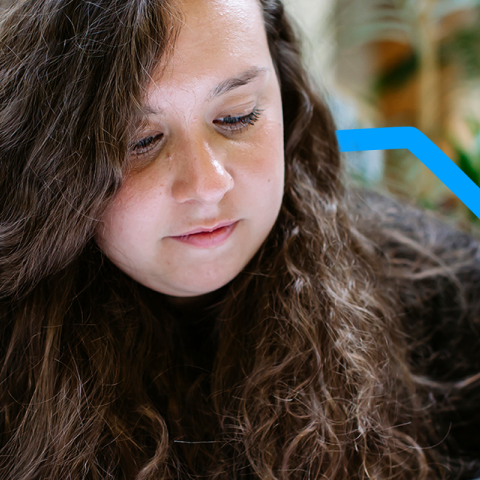
Funding for international students
Learn more about sponsorships, scholarships and loans for students applying from outside of the UK.

Fees and funding for Master's courses
Explore Master's funding options, including loans, scholarships, bursaries and more.

Entry requirements
September 2024 start, uk qualifications, qualifications or experience.
- A second-class honours degree in a related subject. Equivalent qualifications and/or notable experience as a creative writer will also be considered.
Please get in touch if you're not sure if your undergraduate subject is relevant to this degree.
Equivalent professional experience and/or qualifications will also be considered, such as previous study, employment, voluntary work and training courses, including courses and qualifications you didn't complete. Learn more about our Recognition of Prior Learning (RPL) .
Non-UK qualifications
If you're applying as an international student with a non-UK degree, you’ll need to show you meet the UK entry requirements listed above.
To find out if your non-UK degree or other qualification is accepted, please visit our page for your country and view the UK equivalent of your qualification.
English language requirements
- English language proficiency at a minimum of IELTS band 6.5 (or equivalent) with no component score below 6.0.
You do not need an IELTS or equivalent certification if:
- you have a UK degree
- you have a degree from a majority English-speaking country (not taught by Distance Learning)
- you are a national of a majority English-speaking country
Degrees taught solely in English from non-majority English-speaking countries will be considered on a case-by-case basis. Find out more about our English language requirements .
If you don't meet the English language requirements yet, you can achieve the level you need by successfully completing a pre-sessional English programme before you start your course.
Selection process
An online portfolio submission may be required as part of the selection process.
For more information on how to put together a portfolio, read our MA Creative Writing portfolio guide .
How to apply
Unlike undergraduate applications, which go through UCAS, applications for this Master's course are made directly to us.
There's no deadline for applications to this course. We accept applications right up until the start date in September, as long as there are places available. If you wait until September to apply, you may find that the course is full.
If you're applying as an international student, remember that you'll need to leave plenty of time to get your visa organised.
You can find more advice about applying in our Master's application checklist . International students and current students and recent graduates of the University of Portsmouth also have some different application options, which are detailed below.
Extra information for international students
I'm an international student.
If you're an international student, you can apply directly to us using the same application form as UK students.
You could also get an agent to help with your application. Check your country page for details of agents in your region. To find out what to include in your application, head to the how to apply page of our international students section .
If you don’t meet the English language requirements for this course yet, you can achieve the level you need by successfully completing a pre-sessional English programme before you start your course.
Ready to apply?
Start this course in september 2024.
Apply now (Full-time)
Apply now (Part-time)
I'm a current Portsmouth student, or a recent Portsmouth graduate
If you're currently in your final year of study at Portsmouth, or you graduated since July 2021, you're eligible to make a fast track application. You'll have:
- a shorter application form to complete
- access to the 20% Alumni fee discount
- a guaranteed conditional offer, for most Master's courses
Learn more about fast track
After you apply
Once we receive your application, we may ask you for further information. We will then either make you an offer or suggest alternatives if your application is unsuccessful.
You'll usually get a decision within 10 working days, so you shouldn't have to wait too long. Some courses have an interview stage – we'll let you know if you need to prepare for one.
Learn more about how we assess your application .
Admissions terms and conditions
When you accept an offer to study at the University of Portsmouth, you also agree to abide by our Student Contract (which includes the University's relevant policies, rules and regulations). You should read and consider these before you apply.
Other courses you might like
- MA Media and Communication
- MRes Creative Industries
- MA Illustration
- MA Theatre: Socially Engaged Practice
- MA Journalism (Distance Learning)
Creative Writing: Writing the City MA
Can't attend? See more open events
Course Overview
- Full-time - January 2025
- Full-time - September 2024
- Part-time day - September 2024
- Part-time day - January 2025
* Price per academic year
Course summary
The Creative Writing: Writing the City MA is the only Creative Writing MA course to focus entirely on the city of London. It will allow you to explore the city as subject matter from a range of perspectives and across all genres. It will also give you a theoretical and practical platform from which to develop your understanding, and become part of the London writing scene.
Taught by professional writers and researchers, our course offers plenty of opportunities to network with other writers, agents, TV producers and performance poets. As part of the MA, you'll be part of the team managing the Wells Street Journal , our student-led in-house magazine. You'll be based in the University's headquarters building at 309 Regent Street, which means you'll be writing about the city in the heart of London, with ready access to the capital's excellent academic, social and cultural opportunities, including the vibrant West End theatre scene.
You can begin in January or in September. To receive your Master's award, you'll need to complete taught modules for a total of 120 credits, covered by three 40-credit core modules, and the 60-credit Writing Project (giving a total of 180 credits).
The workshop-based structure of the course will allow you to learn through interactive practice. Classes are weekly and normally last two or three hours. Teaching will also include visits to selected London institutions to support certain aspects of writing, and you'll be encouraged to use various archives, theatres and galleries. Assessment methods include coursework portfolios, reflective logs, essays, and workshop leadership, as well as the 10-12,000-word writing project. There are no formal exams.
Top reasons to study with us
- Write in and about London – you'll be based in the heart of London, a city which will inspire your writing and unlock your creative potential
- Run our student-led magazine – you can gain publishing experience through managing The Wells Street Journal, our in-house literary magazine
- A course run by professional writers – you'll study multiple genres and be taught by professional writers and researchers
- Networking opportunities – networking is encouraged as part of the course, and you'll be perfectly placed to access London's writing and publishing scene
- Vibrant culture – you'll have the opportunity to enjoy a host of extra-curricular events, workshops and talks
Course structure
The following modules are indicative of what you will study on this course.
Core modules
City stories and dramas: fiction and playwriting.
This module concentrates on developing your skills in writing prose fiction and dramatic writing inspired by the city through a combination of practical workshops, writing exercises, and close readings of established authors. You'll also learn to critique their own work while being challenged to raise your work to professional level.
Mapping and Imagining the City: Non-Fiction and Poetic Writing
This module focuses on the methodological approaches and aesthetic preoccupations that underpin creative practices in non-fiction and poetic writing. This dual approach will enable you to develop simultaneously your own research methods, as well as experiment with imaginative ways of representing the city. As well as workshops and tutorials based on campus, the module includes site visits to various locations in London, including archives and libraries.
The Writing Business
This module focuses on employability and professional development. You'll learn how to use your creativity to ‘sell’ your writing and promote your work. The module, which is delivered through a series of guest lectures and student-led workshops, will explore key areas of the writing business including topics such as how to edit, choosing a literary agent and using social media for self-promotion.
The Writing Project
You'll focus on one substantial piece of creative work or a portfolio of smaller pieces, with a view to submission for publication. The module aims to provide the support needed for you to prepare a substantial piece of creative writing and develop your individual voice in the genre of your choice. As the module seeks to synthesise the discoveries about the city made during the course, and helps you to respond appropriately in your creative work, it will allow you to absorb and process your explorations of the city, and respond through your creative work.
For more details on course structure, modules, teaching and assessment Download the programme specification (PDF) .
To request an accessible version please email [email protected]
Get your copy of the University of Westminster prospectus and browse the range of courses on offer.
Request a prospectus
Contact us for general course enquiries:
+44 (0)20 7911 5000 EXT 65511 (Mon–Fri, 10am–4pm BST)
[email protected]
Live chat with us (Mon–Fri, 10am–4pm BST)
Open evenings
Join us at an open evening online or on campus. Get a feel for student life at the University of Westminster and talk to course leaders and our support teams.
Next open evening
The critical and practical skills you'll acquire by the end of the course will make you a strong candidate in many areas, including arts management, copy editing, education, freelance writing, journalism, media, publishing, theatre and performance-based writing, and research and academia.
Take the next step in your writing career
In addition to learning the craft of writing, you'll develop transferable skills such as editing, critical analysis, advanced oral and written presentation, as well as in-depth knowledge of the publishing industry.
Make industry connections
Our course offers plenty of opportunities to network with other writers, agents, TV producers and performance poets. You'll be encouraged to identify useful career opportunities through extra-curricular activities including writers’ events and talks.
Employers around the world
The University’s Careers and Employability Service has built up a network of over 3,000 employers around the world, helping all our students explore and connect with exciting opportunities and careers.
Graduate success
A large number of our graduates are employed in graduate positions within six months of graduating, and many have also experienced success from their freelance work as writers, and from the growing list of prestigious publications and accolades attached to their names.
Our graduate successes include:
- Stephen Thompson published No More Heroes, his fourth novel, in 2015, one year after finishing his MA. Stephen has also written the script for BBC 1 Sitting in Limbo documentary, first aired on 8 June 2020, and been nominated for two BAFTA awards (Best Single Drama, and Emerging Talent)
- Naji Bakhti’s Between Beirut and The Moon, a coming of age story set against the turbulent background of his native country of Lebanon, was published by Influx Press in 2020
- Jessica Wragg published her memoir Girl on the Block in 2019, which is due to become a TV programme produced in the US
- Gunther Silva Passuni, who is originally from Peru, published his second work, Pasos Pesados (a novel in his native Spanish) in 2016
This course will prepare you for a variety of roles, including:
- Digital content producer
- Freelance journalist
- Screenwriter
Graduate employers
Graduates from this course have found employment at organisations including:
- University of Lancaster
- University of Winchester
Westminster Employability Award
Employers value graduates who have invested in their personal and professional development – and our Westminster Employability Award gives you the chance to formally document and demonstrate these activities and achievements.
The award is flexible and can be completed in your own time, allowing you to choose from a set of extracurricular activities.
Activities might include gaining experience through a part-time job or placement, signing up to a University-run scheme – such as mentoring or teaching in a school – or completing online exercises.
Read more about our Westminster Employability Award .

Course Leader
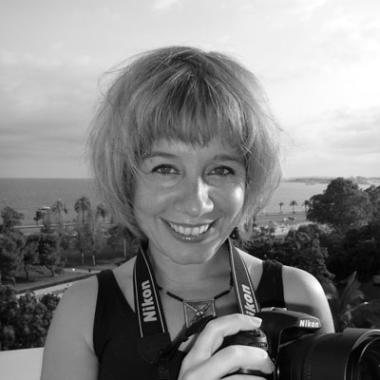
Dr Monica Germana
Monica Germanà is Reader in Gothic and Contemporary Studies at the University of Westminster. Her research concentrates on contemporary literature and film, with a specific emphasis on the Gothic, gender and popular culture.
Her publications include Bond Girls: Body, Fashion and Gender (Bloomsbury, 2019), honoured by the Emily Toth Award for Best Single Work in Women's Studies (runner-up), and a special issue of Gothic Studies on Haunted Scotland, as well as Scottish Gothic: An Edinburgh Companion (EUP, 2017), co-edited with Carol Davison and short-listed for the Allan Lloyd Prize. As a creative writer, her work has been published in various anthologies, including Lost, Cold Turkey, and Book (all published by Inkermen Press).
She is currently working on a collection of short stories and a novel, as well as a new research project on Arctic Monsters.
Worried about writer’s block? We will help you to turn it into a (creative) building block! Our course will not only enable you to learn the craft, but also to find your own discipline, to keep the writing going for the rest of your life!’’
Course Team
- Matthew Morrison - Senior Lecturer, Course Leader
- Dr Hannah Copley - Senior Lecturer
- Dr Michael Nath - Senior Lecturer
- Jude Cook - PTVL - LAS
- Helen Eastman - PTVL - LAS
- Travis Elborough - PTVL - LAS
- James Trevelyan - PTVL - LAS
Why study this course?
Get immersed in London
You'll explore the city from a range of perspectives and genres and be encouraged to use London institutions and arts venues to support your learning, as well as networking in London's writing scene.
Learn how to succeed as a writer
You'll learn practical skills such as how to use your creativity to promote your work, how to edit, how to choose a literary agent and how to use social media for self-promotion.
Gain publishing experience
You'll be able to choose how you contribute to our literary magazine, The Wells Street Journal – whether it's designing content, editing, organising the launch party or managing social media.
Entry Requirements
- EU and International
Applicants will normally have a minimum of a lower second-class honours degree (2:2) in a humanities-based discipline, however candidates with different or no qualifications will also be considered, and decisions made on the basis of their proven experience in the writing or creative industry (generally three years or more) and/or outstanding talent demonstrated in the portfolio. Applicants are required to submit a portfolio of creative writing (maximum of 10,000 words), which should not exclusively include poetry.
If your first language is not English, you should have an IELTS 6.5 with at least 6.5 in writing and no element below 6.0.
Applicants are required to submit one academic reference and one employment reference.
Recognition of prior learning and experience
If you have previously studied at university level, or have equivalent work experience, academic credit may be awarded towards your course at Westminster. For more information, visit our Recognition of Prior Learning page .
Application process
Visit our How to apply page for more information on:
- the application process
- what you need to apply
- deadlines for application
More information
- Country-specific entry requirements
- English language requirements
- Visas and advice
Wells Street Journal
While on this course you'll be part of the team managing the Wells Street Journal , our student-led in-house magazine. Here's a video of the journal's December 2019 issue launch party:
What our students say
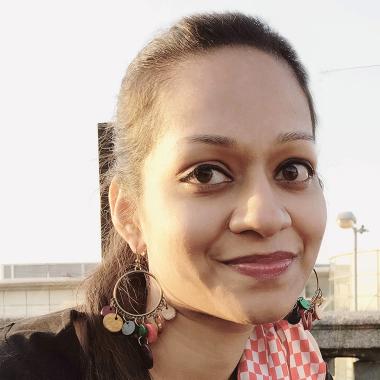
Vritti Bansal
Creative writing: writing the city ma - 2013.
Freelance food and travel writer
I was able to hone my writing skills under the expertise of my professors and supervisors, who were fantastic guides. Overall, the course helped me reach my goals of working as a food and travel writer for different publications by giving me the necessary technical knowledge and creative freedom.
Learn new skills
Volunteer and gain new skills
We offer a number of different volunteering opportunities for you to learn new skills, create connections, and make a difference in the community.
Develop your entrepreneurial skills
Our award-winning Westminster Enterprise Network offers industry networking events, workshops, one-to-one business advice and support for your start-up projects.
Get extra qualifications
We provide access to free online courses in Adobe and Microsoft Office applications, as well as thousands of specialist courses on LinkedIn Learning.
Fees and Funding
- INTERNATIONAL
UK tuition fee: £8,500 (Price per academic year)
When you have enrolled with us, your annual tuition fees will remain the same throughout your studies with us. We do not increase your tuition fees each year.
Find out how we set our tuition fees .
Paying your fees
If you don't wish to pay the whole amount of your fees at once, you may be able to pay by instalments. This opportunity is available if you have a personal tuition fee liability of £2,000 or more and if you are self-funded or funded by the Student Loans Company.
Find out more about paying your fees .
Alumni discount
This course is eligible for an alumni discount. Find out if you are eligible and how to apply by visiting our Alumni discounts page .
There is a range of funding available that may help you fund your studies, including Student Finance England (SFE).
Find out more about postgraduate student funding options .
Scholarships
The University is dedicated to supporting ambitious and outstanding students and we offer a variety of scholarships to eligible postgraduate students.
Find out if you qualify for one of our scholarships .
Additional costs
See what you may need to pay for separately and what your tuition fees cover .
International tuition fee: £15,000 (Price per academic year)
There are a number of funding schemes available to help you fund your studies with us.
Find out more about funding for international students .
Teaching and Assessment
Below you will find how learning time and assessment types are distributed on this course. The graphs below give an indication of what you can expect through approximate percentages, taken either from the experience of previous cohorts, or based on the standard module diet where historic course data is unavailable. Changes to the division of learning time and assessment may be made in response to feedback and in accordance with our terms and conditions.
How you’ll be taught
Teaching methods across all our postgraduate courses focus on active student learning through lectures, seminars, workshops, problem-based and blended learning, and where appropriate practical application. Learning typically falls into two broad categories:
- Scheduled hours: examples include lectures, seminars, practical classes, workshops, supervised time in a studio
- Independent study: non-scheduled time in which students are expected to study independently. This may include preparation for scheduled sessions, dissertation/final project research, follow-up work, wider reading or practice, completion of assessment tasks, or revision
How you’ll be assessed
Our postgraduate courses include a variety of assessments, which typically fall into two broad categories:
- Practical: examples include presentations, podcasts, blogs
- Coursework: examples include essays, in-class tests, portfolios, dissertation
Data from the academic year 2022/23
Supporting you
Our Student Hub is where you’ll find out about the services and support we offer, helping you get the best out of your time with us.
- Study support — workshops, 1-2-1 support and online resources to help improve your academic and research skills
- Personal tutors — support you in fulfilling your academic and personal potential
- Student advice team — provide specialist advice on a range of issues including funding, benefits and visas
- Extra-curricular activities — volunteering opportunities, sports and fitness activities, student events and more
Visit our student hub

Course location
Our Regent Campus is composed of three sites, situated on and around Regent Street – one of the most famous and vibrant streets in London.
Our Humanities subjects are based at 309 Regent Street, which includes recently refurbished social spaces, gym facilities and our Regent Street Cinema.
For more details, visit our locations page .
Related Courses

English Literature: Modern and Contemporary Fictions MA

English Language and Linguistics MA

English Language and Literature MA
Call our dedicated team on:
+44 (0)20 7911 5000 ext 65511
Opening hours (GMT): 10am–4pm Monday to Friday
Your Westminster
Book an open day. Order a prospectus. Sign up for newsletters.
We use cookies to ensure the best experience on our website.
By accepting you agree to cookies being stored on your device.
Some of these cookies are essential to the running of the site, while others help us to improve your experience.
Functional cookies enable core functionality such as security, network management, and accessibility.
Analytics cookies help us improve our website based on user needs by collecting information, which does not directly identify anyone.
Marketing cookies send information on your visit to third parties so that they can make their advertising more relevant to you when you visit other websites.
For students
- Current Students website
- Email web access
- Make a payment
- iExeter (students)
- Programme and module information
- Current staff website
- Room Bookings
- iExeter (staff)
- Finance Helpdesk
- IT Service Desk
Popular links
- Accommodation
- Job vacancies
- Temporary workers
- Future Leaders & Innovators Graduate Scheme
New and returning students
- New students website
- Returning Students Guide
Wellbeing, Inclusion and Culture
- Wellbeing services for students
- Wellbeing services for staff
- Equality, Diversity and Inclusion
- Israel, Palestine, and the Middle East
Postgraduate Taught
MA Creative Writing
- Postgraduate Taught home
- Creative Writing MA
Masters applications for 2023 entry are now closed.
Applications for September 2024 will open on Monday 25 September. Applications are now open for programmes with a January 2024 start. View our programmes »
- At the University of Exeter, we don’t just teach you how to write to get published. Our team of internationally acclaimed authors understand that your ambitions, and powers of creative writing, are far greater than that
- Our modules are designed to enable you to write for better futures, to: promote social justice, protect our planet, support child wellbeing, comfort and entertain, and inspire others to action
- Experiment in new literary genres, and study and respond to diverse contemporary writers
- Excellent links with the worlds of publishing, literary journalism and broadcasting, book festivals and prizes providing insights into the workings of the literary marketplace
- Establish the contacts necessary for successful publication
- Whether you like writing poetry, prose fiction, short stories, film scripts, game narratives, children’s books or young adult (YA) novels, we invite you to join us on our mission to write to make a difference
Apply online
View 2024 Entry
Fast Track (current Exeter students)
Open days and visiting us
Get a prospectus
Programme Director: Professor Andy Brown
Web: Enquire online
Phone: +44 (0)1392 72 72 72
Discover MA Creative Writing at the University of Exeter.
88% of our English research is internationally excellent
Based on research rated 4* + 3* in REF 2021, submitted to UoA27 English Language and Literature
Top 100 in the world for English Language and Literature
61 st in the QS World University Subject Rankings 2023
A thriving and supportive writing community - our team of prize-winning and best-selling authors will help you develop your creative writing skills.
Top 10 in the UK for English
9th in The Times and The Sunday Times Good University Guide 2024
Entry requirements
We will consider applicants with a 2:2 Honours degree with 53% or above in their first degree in a relevant subject area. While we normally only consider applicants who meet this criteria, if you are coming from a different academic background which is equivalent to degree level, or have relevant work experience, we would welcome your application.
Applicants will be asked to submit a sample of creative writing which can be roughly 2,000 words of prose or 3-4 poems.
Entry requirements for international students
English language requirements.
International students need to show they have the required level of English language to study this course. The required test scores for this course fall under Profile E . Please visit our English language requirements page to view the required test scores and equivalencies from your country.
Course content
The MA in Creative Writing is designed for students to develop a longer piece of work during the MA, or find out what their strengths are in the different forms. It is for people, of any age, whether recent graduates or older, who wish to grow their talent quickly by acquiring knowledge and practice in the art of fiction, poetry, life-writing, nature writing or the writing of screenplays.
Our Creative Writing staff are well-published, practicing writers who take great pride in designing and delivering modules in their specialist areas.
Full time students take two modules in term 1, two modules in term 2, and write their dissertations in term 3. Each module has one two-hour seminar per week, with homework set that involves intensive, self-motivated practice and research.
The modules we outline here provide examples of what you can expect to learn on this degree course based on recent academic teaching. The precise modules available to you in future years may vary depending on staff availability and research interests, new topics of study, timetabling and student demand.
2024/25 entry
Uk fees per year:.
£12,000 full-time; £6,000 part-time
International fees per year:
£24,300 full-time; £12,150 part-time
Scholarships
For more information on scholarships, please visit our scholarships and bursaries page.
*Selected programmes only. Please see the Terms and Conditions for each scheme for further details.
Find out more about tuition fees and funding »
Teaching and research
Learning and teaching.
Whether you already know what kind of books or screenplays you wish to write or are still searching for the best form in which to express your creativity, we offer the chance to try your hand in a range of genres, and to benefit from feedback tailored to your writing needs.
A programme of visiting speakers takes place throughout the academic year with writers, publishers and agents coming to talk to students about the next steps in their careers. The roll call changes every year to reflect both our students’ interests and new trends. Recent guest lecturers have included the Booker prize winning novelist Hilary Mantel; the Commonwealth Writers’ Prize-winning novelist Hisham Matar; the Pulitzer Prize winning US Poet Laureate Natasha Trethewey; the writer, editor and publisher Richard Cohen, and many others.
Our MA can be taken over one-year full time, or two years part time. During your study, you will build a portfolio of creative work for possible publication, including a dissertation in your chosen genre. You will also be able to take a range of optional modules and explore literary genres and forms with a mutually supportive, like-minded group of fellow writers.
Research areas
Exeter’s creative writing staff practise and publish in a range of literary genres. Their experience of the literary world is not limited to writing and teaching. They also worked – and continue to work - as editors, publishers, agents, radio producers, and journalists. This wealth of experience is reflected in the vibrancy and diversity of our workshops and tutorials.
As a creative writing student, you will also benefit from the academic expertise of the many world-leading scholars working in the English Department at our Exeter Campus, a lively community of doctoral students, and the activities of four dedicated research centres: the Medieval and Renaissance Research Group; the 18th-Century Narrative Consortium; the Victorian Studies Research Group; and the 20th and 21st Century Literature, Creative Writing and Film Research Group.

John Wedgwood Clarke
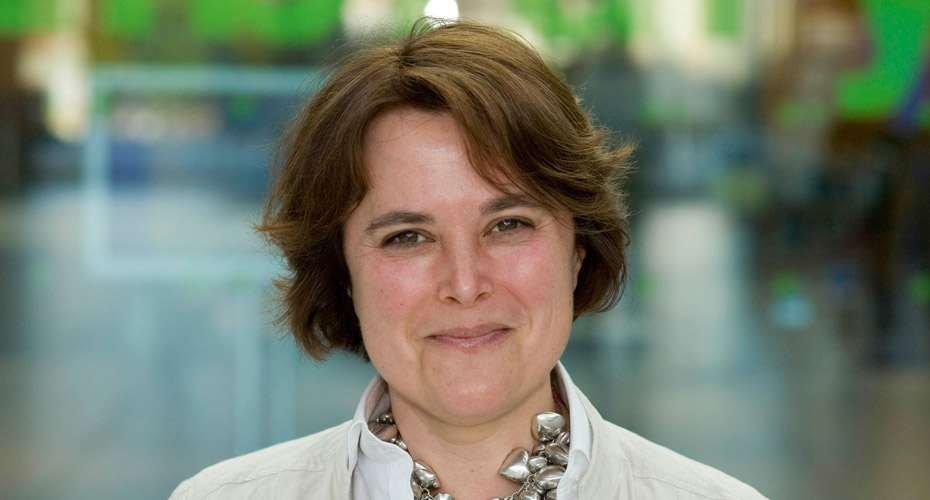
Vesna Goldsworthy
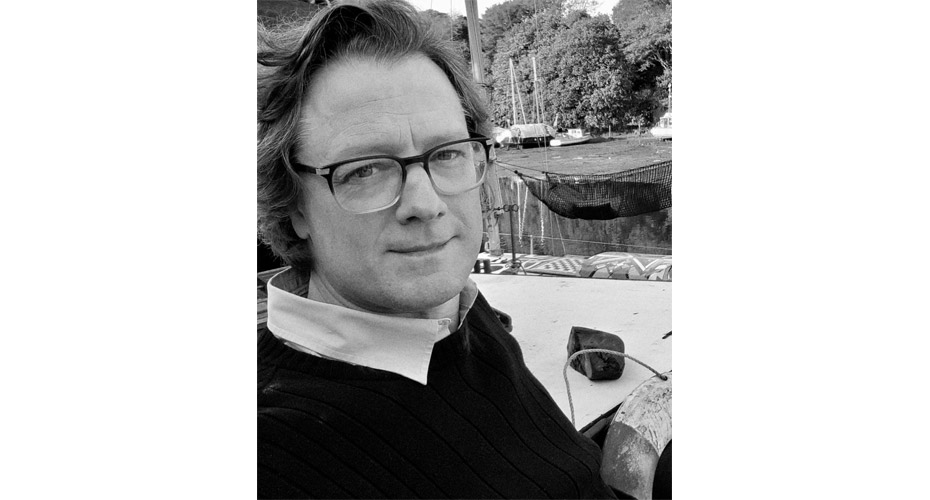
Wendy O’Shea-Meddour
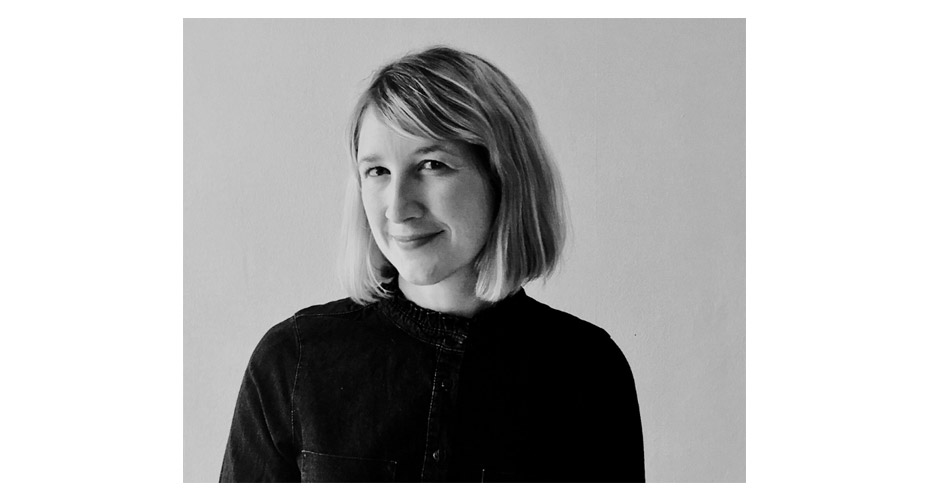
Ellen Wiles
Andy has a notable national reputation as a poet, poetry commentator and poetry tutor. He is the author of 10 poetry collections and editor of several anthologies, including A Body of Work: Poetry & Medical Writing , for Bloomsbury. He has interests in Ecopoetics, and the Medical Humanities, and often collaborates with scientists. He is also a musician who performs regularly around the region.
Profile page
John is an award-winning poet, prose nonfiction writer and broadcaster. His full poetry collections include Ghost Pot (2013) and Landfill (2017) both of which explore place, ecology and the relationship between science and poetry. He regularly works across disciplines and has led major Arts Council-funded arts projects including Dictionary of Stone and Sea Swim. He presented The Books that Made Britain (2016) & Through the Lens of Larkin (2017), both for BBC4.
A prize-winning poet, memoirist, novelist and broadcaster. Vensa’s books have been translated into twenty languages and serialised by the BBC. Before becoming an academic in English Literature and Creative Writing, Vesna spent fifteen years in publishing and as a producer at the BBC.
Sam has written eight novels, two books on the craft of writing, and two films. In 2010 he won an Eric Gregory Award; in 2004 his novel The Unnumbered was long-listed for the Man-Booker prize. His first novel won the Somerset Maugham Award.
An internationally successful children’s writer, as well as an academic with nearly twenty years lecturing experience. Since her debut in 2012, Wendy has published 15 children’s books and her work has been translated into 16 languages. Award-winning titles include: A Hen in the Wardrobe (2012), the Wendy Quill series (2013-2015), and How the Library (not the Prince) Saved Rapunzel (2015).
Ellen’s first novel, The Invisible Crowd (Harper Collins, 2017) was awarded a Victor Turner Prize. Her first book, Saffron Shadows and Salvaged Scripts: Literary Life in Myanmar Under Censorship and in Transition (Columbia University Press, 2015) was the first to explore this literary culture through interviews and translations. Her new book, Live Literature: The Experience and Cultural Value of Literary Performance Events from Salons to Festivals (Palgrave, 2021), uses literary ethnography to explore participant experience, and has been described as ‘groundbreaking’, ‘stylish’, and ‘compelling’.

Nazneen Ahmed Pathak
Ben’s debut novel Doggerland uses the lens of speculative fiction to engage with pressing contemporary issues such as renewable energy, ocean waste, climate change and the scale-effects of the Anthropocene. It was selected as a Guardian Book of the Year 2019.
Nazneen writes fiction for children and poetry for adults. Her first book, City of Stolen Magic , a historical fantasy for middle-grade readers, comes out with Puffin in summer 2023. She is represented by Louise Lamont at LBA Books, and currently holds the post of Hampshire Poet for 2022-23.
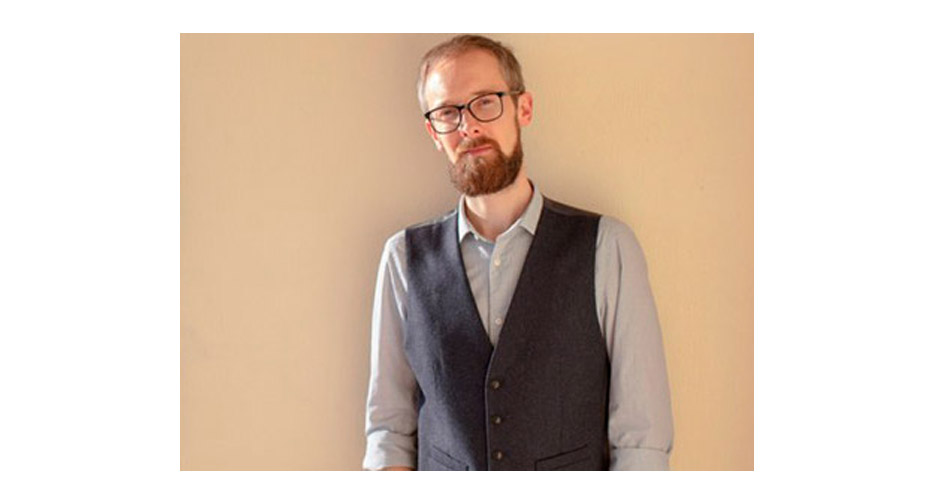
Whether your ambition is to become a full-time writer, a teacher of writing, or to develop a creative career which includes writing in one of its many forms, we have a strong track record of supporting our students through to publication and doctoral level work.
While at Exeter, our MA students publish their creative work in RIPTIDE and in the new postgraduate journal EXCLAMATION . The Creative Writing Society also run a journal called Enigma.
Former University of Exeter students who have gone on to develop a writing career include poets such as Luke Kennard, Abi Curtis, Eleanor Rees, Izzy Galleymore, Jaime Robles, Jos Smith, Sally Flint, and Samuel Tongue; novelists Virginia Baily, Lucy Wood, and Ruth Gilligan; and non-fiction writers such as Miriam Darlington.
Many of our former students now work in film, broadcasting, advertising, journalism, PR, publishing, teaching – including the teaching of creative writing – as well as other careers in the growing number of fields where good writing is an asset.
Careers and employment support
While studying at Exeter you can also access a range of activities, advice and practical help to give you the best chance of following your chosen career path. For more information visit Careers pages .
Related courses
English literary studies ma.
Streatham Campus
Creativity: Innovation and Business Strategy MA
Film and screen studies ma, curation: art and business ma, international film business ma, publishing ma, theatre practice ma, ma media and communications.
View all English courses
Connect with us
Information for:
- Current students
- New students
- Alumni and supporters
Quick links
St Luke's Campus
Penryn Campus
Truro Campus
- Using our site
- Accessibility
- Freedom of Information
- Modern Slavery Act Statement
- Data Protection
- Copyright & disclaimer
- Privacy & cookies
Streatham Campus in Exeter
The majority of students are based at our Streatham Campus in Exeter. The campus is one of the most beautiful in the country and offers a unique environment in which to study, with lakes, parkland, woodland and gardens as well as modern and historical buildings.
Find out more about Streatham Campus.
St Luke's Campus in Exeter
Located on the eastern edge of the city centre, St Luke's is home to Sport and Health Sciences, the Medical School, the Academy of Nursing, the Department of Allied Health Professions, and PGCE students.
Find out more about St Luke's Campus.
Penryn Campus near Falmouth, Cornwall
Our Penryn Campus is located near Falmouth in Cornwall. It is consistently ranked highly for satisfaction: students report having a highly personal experience that is intellectually stretching but great fun, providing plenty of opportunities to quickly get to know everyone.
Find out more about Penryn Campus.
Module details
MA Creative Writing & Publishing
You’ll develop creative writing across a variety of forms, focusing on transmedia storytelling and skills to independently publish your work as a publisher; learning skills in editing, PR and marketing, design, production, and budgeting.
Course search
Search form.
- Delivery: Full time according to Funding Council definitions, Part-time, Part-Time, Part-Time, online, Part-time, online, Full-time, online, Full time, online
Confirm application
This course has multiple potential start dates, please confirm the specific entry point and course details that you would like to apply for:
- Start date: September, 2024 Delivery: Full time according to Funding Council definitions Duration: 12 MONTHS Apply now
- Start date: September, 2024 Delivery: Part-time Duration: 2 YEARS Apply now
- Start date: September, 2024 Delivery: Part-time, online Duration: 2 YEARS Apply now
- Start date: September, 2024 Delivery: Full time, online Duration: 12 MONTHS Apply now
- Start date: January, 2025 Delivery: Full time according to Funding Council definitions Duration: 17 MONTHS Apply now
- Start date: January, 2025 Delivery: Part-Time Duration: 2 YEARS Apply now
- Start date: January, 2025 Delivery: Part-Time, online Duration: 2 YEARS Apply now
- Start date: January, 2025 Delivery: Full-time, online Duration: 17 MONTHS Apply now
Why study MA Creative Writing and Publishing at BU?
- Analyse the cultural and critical influences on the writer and publishing industry, as well as your own practice
- Learn the skills to be able to write creatively and effectively, to a publishable standard, for a variety of different audiences and media
- Work on real-life publishing projects with BU’s own publishing press, Fresher Publishing
- Learn from experienced writers and practitioners who have also acquired master's degrees and/or doctorates in Creative Writing or English themselves
- Benefit from prestigious guest tutors from the world of writing and publishing
- Engage with BU’s international writing competitions: The Bournemouth Writing Prize for emerging voices, and the New Media Writing Prize for stories integrating a variety of formats.
Find out more about the content of this course .
Flexible study
The MA Creative Writing and Publishing course offers you the option to study full-time or part-time, either in person or online. Lectures and online resources are combined with weekly small-group seminars to explore key texts, ideas, and concepts in more depth. If you are an online student, all your classes will take place virtually – bringing together a diverse cohort of students from all over the world and engaging with literary media texts and industry practices at the widest level.
Take a glimpse at life on Talbot Campus
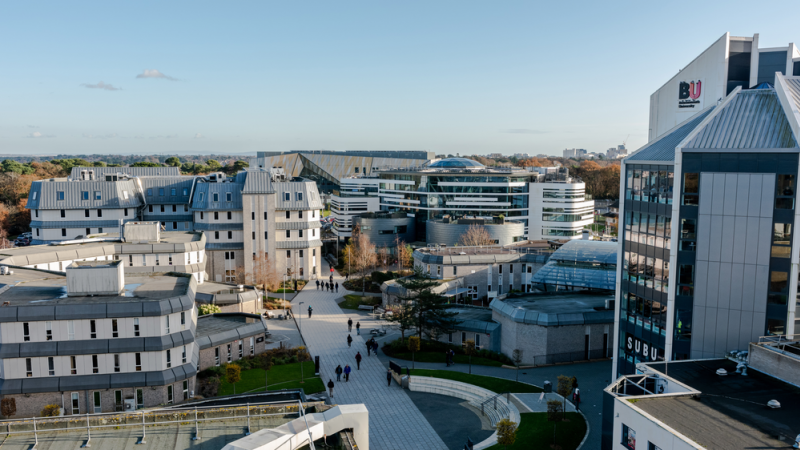
Key information
Next start date:.
September 2024, January 2025, September 2025
Bournemouth University, Talbot Campus or online
1 year full-time (September start), 17 months full-time (January start), 2 years part-time (September and January start). All options are available to study in-person or online
Entry requirements:
A Bachelors Honours degree with 2:2 in any subject, or equivalent. For more information check out our full entry requirements .
International entry requirements:
If English is not your first language you'll need IELTS (Academic) 6.5 with a minimum of 6.5 in writing and 6.0 in speaking, listening and reading. For more information check out our full entry requirements .
Course details
On this course you will be taught by a range of staff with relevant expertise and knowledge appropriate to the content of the unit. This will include senior academic staff, qualified professional practitioners, demonstrators, technicians and research students. You will also benefit from regular guest lectures from industry.
Contact hours and assessment
Details of the assessment methods and contact hours for each unit of the course can be found in the programme specification.
Download the programme specification (pdf 186kb)
- Writing Fiction: The creative writer must learn to critically examine their own work and the work of others. Here, in a workshop environment, you will develop your skills as a writer of prose fiction by developing your own writing and responding to critical feedback from your peers.
- Narrating Identities: Self, Text & the World: This unit aims to provide you with a sophisticated knowledge and understanding of cultural and critical influences on a range of texts and literary media, exploring how literary, philosophical, and aesthetic movements have been used to define, construct and represent the self across the 20th and 21st centuries.
- Interactive Storytelling: Using a narratological and creative approach, you will study the development and nature of the art of storytelling in the context of digital-interactive media.
- Publishing Cultures and Materialities: From the eras of Cuneiform to Kindle, you'll study public writing as material objects, which have an economy, history and culture. Publishing as we’ve known it stems from a specific iteration of those conditions and is now shifting into the online new. To take advantage of the opportunities and challenges this development affords, you'll therefore look at fiction from this material sociological perspective.
- Marketing & PR for Writers : This unit will equip you with the knowledge and marketing skills needed by writers and publishers, regardless of the format. You will develop your own ‘brands’ online and will have the opportunity to work on real-life projects for Fresher Publishing, devising marketing and PR strategies to raise awareness/sales of the Fresher Writing Prize and the Fresher Writing anthology.
- Design, Editing & Publishing: The aim of this unit is to enable you to evaluate and practice the significant processes of professional publishing. It seeks to equip you with the knowledge and skills needed by writers, editors and other professionals in the publishing industry by engaging in real publishing projects for Fresher Publishing , the university’s own publishing press.
- Dissertation/Major Project: You may choose between a purely theoretical, academic dissertation or a major creative writing project supported by either a reflective or ‘route to publication’ rationale. By bringing together the skills, craft, theories, knowledge and critical insight you have developed during the programme, you will hone your individual strengths and establish lines of enquiry that may take you onto further doctoral study or into future careers.
The majority of assignments are all individual coursework, although the publishing semester will include group work. You will work on real-life publishing projects for the university’s publishing press, Fresher Publishing and will have the opportunity to be involved in the administration of The Fresher Writing Prize and New Media Writing Prize .
MA Creative Writing and Publishing students are immersed in a vibrant media culture and have access to an extraordinary range of multimedia facilities, including radio studios. This offers the potential for students to produce audio clips for their author websites (produced in the Marketing and PR unit) and even full length audio books.
You will be working on industry relevant software, including Indesign and Photoshop, and will also have the opportunity to use the university’s own software – Genarrator – for producing interactive narratives.
Programme specification
Programme specifications provide definitive records of the University's taught degrees in line with Quality Assurance Agency requirements. Every taught course leading to a BU Award has a programme specification which describes its aims, structure, content and learning outcomes, plus the teaching, learning and assessment methods used.
Whilst every effort is made to ensure the accuracy of the programme specification, the information is liable to change to take advantage of exciting new approaches to teaching and learning as well as developments in industry. If you have been unable to locate the programme specification for the course you are interested in, it will be available as soon as the latest version is ready. Alternatively please contact us for assistance.
Writing competitions
Studying at BU gives you various opportunities to test yourself and your development by entering our annual writing competitions.
New Media Writing Prize
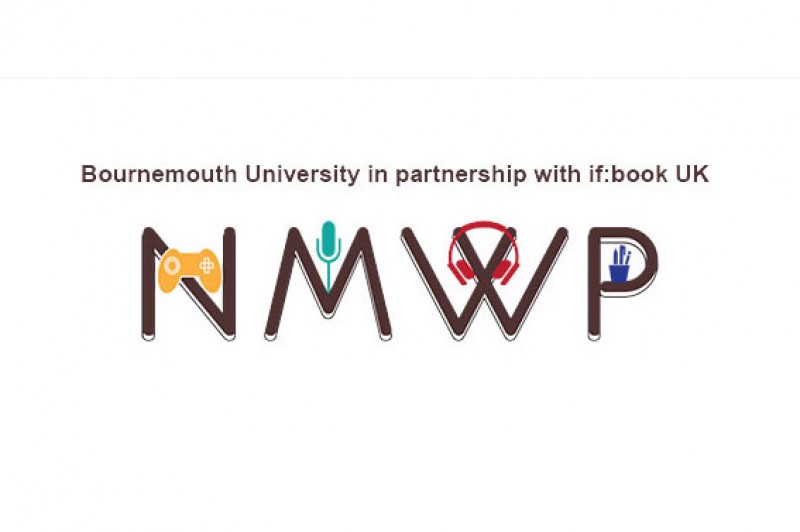
This international prize – a result of a partnership of Bournemouth University and if:book UK – promotes the best in new media writing and you can enter your exciting and inventive stories that integrate a variety of formats, platforms and digital media.
The Bournemouth Writing Prize
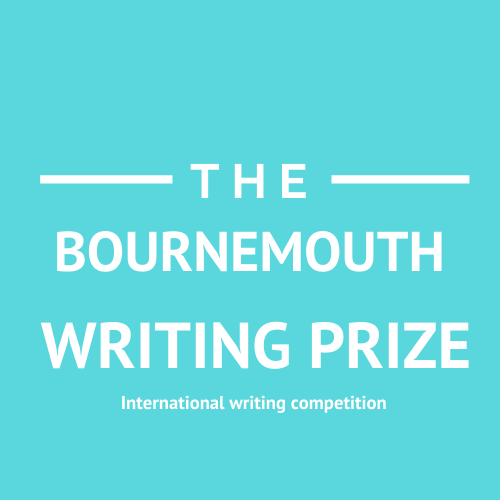
Fresher is a publishing press, established at Bournemouth University to nurture the publishing talent of the future and support writers everywhere. Fresher runs the Bournemouth Writing Prize, an annual international short story and poetry competition, designed to boost your career as a writer.
Your application
What we’re looking for.
For MA Creative Writing and Publishing we are looking for able, innovative, and articulate students who like to read as much as they like to write, and who will work well in a group, offering constructive criticism to their peers.
Equally, you will be able to work independently, developing your own work in response to feedback from fellow students and tutors. You will also need to be commercially and digitally aware; ready to learn new publishing software and apply it to practical, real-life projects.
Selections methods
The admissions team will look at your online application including your qualifications, personal statement and any work experience.
Please make sure your application stands out from the crowd and leaves us in no doubt why you want to study MA Creative Writing and Publishing at Bournemouth University.
For more information, take a look at our how to apply pages .
How and when to apply
Please see our website for the application deadlines. You should apply as early as possible to be considered for your course of choice. If you require a student visa, apply for the visa as soon as you have an unconditional offer and receive your CAS. There may be delays in visa processing in your country and you need to be in Bournemouth ready to study for the start of term.
Click the green ‘Apply now’ button to submit your application free of charge online through myHub, our application portal. You will create your own myHub account so that you can track the progress of your application. Don’t forget to save your application as you go; you can return to it at as many times as you want before you submit it. For more information visit our How to apply section .
Entry requirements
General entry requirements.
The entry requirements for this course are:
- A Bachelors Honours degree with 2:2 in any subject, or equivalent.
If you lack the formal academic qualifications needed to enter a postgraduate or post-experience degree, there are several alternative routes to follow - some based on experience. Contact the Future Students Enquiry Team for more information.
International entry requirements
You can find details of the international qualifications we accept, and what level of study they apply to, on our entry requirements for non-UK students' page .
Please see below some examples of the qualifications for entry:
- India: Bachelor’s degree (4 years) from a recognised HE institution with a minimum overall result of 55%
- Nigeria: Bachelor's degree from a recognised institution with a minimum classification of 2:2
- China: Chinese Bachelor's (Honours) degree from a recognised higher education institution with 65% or above
- Turkey: Bachelor’s degree (Lisans Diplomasi - four years) with a minimum overall GPA of 2.3/4.0
- Vietnam: Bachelor's degree/Bang tot nghiep dai hoc with an average score of 6.5/10, or 2.25/4, or a Master’s degree/Thac si.
All applications will be subject to a minimum grade and your degree may need to be in a relevant subject area.
English language requirements
If English is not your first language, you will need to provide evidence that you understand English to a satisfactory level. English language requirements for this course are normally:
IELTS (Academic) 6.5 with minimum 6.5 in writing and 6.0 in speaking, listening and reading or equivalent .
View further information about our English language requirements .
Bournemouth University International College offers a number of pre-sessional English and preparatory programmes to prepare international students for postgraduate study at BU. Admission to the degree is guaranteed on successful completion of your course to the required level.
On this course you will learn the advanced craft of creative writing plus the business and practice of publishing. You will also analyse cultural and critical influences on the writer and the industry. Learned skills will be put into practice in group publishing projects for the university’s own publishing press, Fresher Publishing .
Potential roles and sectors
This course will provide you with a wide range of skills for employment in the media and communication-related industries including:
- Media writing
- Advertising
- Public relations
Further study
If you want to continue your studies after achieving your Master’s, you can look into our range of doctoral programmes .
Costs and fees
You can find full information about the deposits required and how to pay your fees in our postgraduate fees and funding section, including details of the Postgraduate Loan (subject to fee status).
All fees are quoted in pounds sterling and are per annum. Fees quoted are for tuition only unless stated otherwise. Your tuition fees will be the same for each year of your course.
Find out more about living expenses for postgraduate students
No hidden extras
What’s included in your tuition fee.
Your tuition fee covers expenses associated with your course including tuition materials, access to facilities, mandatory field trips and the following:
- Our fees commitment means your tuition fees are fixed and your fee will be the same for each year of your course.
- Materials for laboratory and field-based teaching activity
- Support for finding placements (UK or abroad) and fieldwork, and non-financial support whilst on placement if this is part of your course of study.
- A range of student services – advisors, help desks, counsellors, placement support and careers service.
- The Library – access to a wide range of electronic resources (databases, e-journals and e-books), print and multimedia collections, subject librarians and study spaces.
- Access to Brightspace, our virtual learning environment, which offers a responsive and personalised learning experience with powerful learning analytics capabilities, integrated social media and advanced video features.
- IT labs (some open 24/7), wireless network, AV equipment to borrow
- Disability and additional learning support , according to individual circumstances.
- The BU Language Centre to help you develop/improve foreign or English language skills
- 24 hours a day, 365 days a year security team.
Costs of living and other expenses you need to consider
Additional costs.
We are committed to offering you value for money and ensuring there are no hidden costs while you are studying with us, therefore we have listed below any additional costs you may incur that are not covered by your tuition fee:
- Laptops, tablets and mobile devices and any software used on personal devices. Access to a personal computer is strongly recommended for your study. If you are experiencing financial difficulty, visit our website for information regarding hardship funds.
- Accommodation and living costs . Please visit our website for more information.
- Travel costs for optional field trips, outdoor wear and footwear for mandatory and optional field trips (if applicable).
- Travel costs to and from the University campus. An annual bus pass can be purchased alongside your rent if you are living in halls of residence/Unilet accommodation or may be purchased separately.
- Travel costs to and from your placement (both in the UK and overseas) if this is part of your course of study. Placement year funding information can be found on our website.
- Clothing or equipment costs required for your placement if this is part of your course of study.
- SportBU membership .
While all aspects of the programme, including required field trips, are included in the fee, additional, optional or extra curricula activities may be available for which a student contribution is required.
Repeat units
If you need to repeat one or more units during the course of your studies (with or without attendance) the pricing will be pro-rata of the full time fee.
International (not Rep. of Ireland) students need to pay a non-refundable deposit to secure their place on a postgraduate course. For September 2024 and January 2025 entry, a £5,000 deposit is required. You will need to pay your deposit by the date stated in your offer letter. The remainder of your fee will be payable on registration/enrolment/ There are two exceptions to the non-refundable rule on the deposit.
- You fail to meet the academic or English requirements of your offer
- You are refused a visa to enter the UK, provided the reason for the refusal is not a fraudulent application.
Financial help available from BU
We offer a range of scholarships to eligible students who are beginning their studies at BU. Please visit our funding pages for details on living costs, budgeting and paying your tuition fees.
On this course you will be taught by staff with relevant expertise and knowledge appropriate to the content of the unit. This could include senior academic staff, qualified professional practitioners and research students, many of whom are actively engaged in research and/or professional practice which is integrated into the teaching of this course. Please note that staff can change.
Dr Brad Gyori - Programme Leader
Brad Gyori is a Senior Lecturer in Digital Storytelling at Bournemouth University. He is the Programme Leader for the MA in Creative Writing and Publishing and an HEA Senior Fellow. He holds a PhD in Rhetoric and Composition from Arizona State University and has taught both media theory and production at ASU and the Tribeca Academy in downtown Chicago. He is a practice-led researcher, playwright, web designer, screenwriter, director, journalist, songwriter and novelist. As a television writer-producer, he has worked for such networks as MTV, VH1, FX, E! and HBO online. For ten years, he was the Head Writer of the Emmy award winning Talk Soup. He has been nominated for five Emmys. His articles have appeared in The Journal of Broadcasting and Electronic Media, Journalism and Mass Communication Educator, Interactive Storytelling, Journalism Education, The Interdisciplinary Journal of Problem-based Learning and Flow. In 2014, his play Desolation Angels was presented as a staged reading at Chicago's Steppenwolf theatre...
Course changes
Changes for 2024, changes for 2023 entry, changes for 2022 entry, changes for 2021 entry, changes for 2020 entry, changes in 2018, changes in 2017.
Information on this page relates to next entry point (see box containing fees figures), unless indicated otherwise. Statistics shown throughout this page are taken from The Discover Uni dataset (formerly Unistats) and BU institutional data, unless otherwise stated.

Studying Here
- Find your course
- Fees and funding
- International students
- Undergraduate prospectus
- Postgraduate prospectus
- Studying abroad
- Foundation Year
- Placement Year
Your future career
- Central London campus
- Distance learning courses
- Prospectuses and brochures
- For parents and supporters
- Schools and colleges
Sign up for more information
Student life, accommodation.
- Being a student
Chat with our students
Support and wellbeing.
- Visit Royal Holloway
- The local area
- Virtual experience
Research & Teaching
Departments and schools.
- COP28 Forum
Working with us
- The library
Our history
- Art Collections
Royal Holloway today
- Equality, Diversity and Inclusion
- Recruiting our students
- Past events
- Environmental Sustainability
- Facts and figures
- Collaborate with us
- Governance and strategy
- Online shops
- How to find us
- Financial information
- Local community
- Legal Advice Centre
In this section

Find the right course

Online undergraduate prospectus

- Student life

What our students say

Explore our virtual experience
- Research and teaching

Research institutes and centres

Our education priorities
Creative Writing
Site search
Thank you for considering an application.
Please click here to login and apply, or view your application.
Need help? Explore our How to Apply Page
Postgraduate applications
The initial application deadline for this course is 1 June 2024. Further detail here .
Key information
Duration: 1 year full time or 2 years part time
Institution code: R72
Campus: Central London
UK fees * : £10,600
International/EU fees ** : £21,700
Creative Writing (MA)
This course allows you to develop your work as a writer to a professional level, going beyond the personal to write with an engaged sense of literary culture, its social role and contemporary practices. The MA is designed for students with an established writing practice who are intending to develop their creative writing beyond first-degree level. It is also designed for those students wishing to proceed to MPhil or PhD. This MA is taught at our central London location, in the heart of literary Bloomsbury, putting you within walking distance of publishing houses, bookshops, major UK libraries and all of the other cultural attractions of central London.
You will take one of four distinct pathways:
- New Prose Narratives
- Poetic Practice
While the pathways share a similar structure, they are taught separately so as to ensure you can work to a consistently high level. Please see the Course structure section below for more details on each of these.
The MA ranks among the top creative-writing courses in the country and is taught by leading writers whose work encompasses a wide range of approaches and styles.
- Sean Borodale’s Bee Journal was shortlisted for the TS Eliot Prize and Costa Book Award.
- Lavinia Greenlaw has received a Forward Prize for Poem of the Year, the Prix du Premier Roman, a Wellcome Engagement Fellowship and the Ted Hughes Award.
- Nikita Lalwani won the Desmond Elliot Award, and was shortlisted for the Costa Prize and longlisted for the Man Booker prize.
- Redell Olsen has been Judith E. Wilson Fellow in Poetry at Cambridge.
- Anna Whitwham’s novel Boxer Handsome was a New Statesman and Guardian Book of the Year.
- Eley Williams’s Attrib. and other stories won the James Tait Black Memorial Prize and the Republic of Consciousness Prize.
- Matt Thorne has been longlisted for the Man Booker prize and is a winner of the Royal Society of Literature's Encore prize.
- Dr James Wilkes published his first collection of poetry with Penned in the Margins and his interdisciplinary projects have included collaborations with the Wellcome Trust and BBC Radio 4.
Our prizewinning, internationally successful alumni include the novelists Sarah Perry, Tahmima Anam, Jenni Fagan and Barney Norris; short-story writer and poet Eley Williams; and the poets Liz Berry, Kayo Chingonyi, Sam Riviere and Sophie Robinson. You can see the work of some of our recent alumni by visiting www.bedfordsquarereview , our online showcase.
From time to time, we make changes to our courses to improve the student and learning experience. If we make a significant change to your chosen course, we’ll let you know as soon as possible.
Course structure
Core modules.
- Supplementary Discourses This weekly one-and-a-half hour seminar is taught within pathway groups and focuses on a broad range of critical texts by practising writers among others. It aims to provide you with the appropriate critical and theoretical skills for discussing your creative work. The course also aims to prepare you for you dissertation. You will acquire a range of critical concepts and vocabulary, a range of critical and theoretical approaches, and the necessary skills to undertake sophisticated reflection and discourse.
- Reading as a Writer This seminar is taught within pathway groups. Students propose texts (and non-textual works) for this syllabus, which is then devised by your tutor. You will make a short presentation on one of your chosen works during the term. The seminar encourages you to think about what it means to read as a writer, how the writer constructs the reader’s experience, and how this insight might inform your own literary composition. It considers different approaches to reading, and the relationship between practice and theory. You will learn how to demonstrate the ways in which reading contributes to your own developing practice as a writer.
- You will undertake a major extended fiction, non-fiction, poetry or poetic practice project under supervision. This will be either 15,000 words of prose, 24 pages of poetry or textual equivalent (to be agreed with the supervisor).
- The Creative Writing Project arises out of work developed in the workshop. In all cases, this should be new work not included in previous coursework submissions however much it has been revised. It can be a different part, or parts, of the same body of work, such as a novel. An important dimension of the MA is to give you the opportunity to begin serious work on a major project that would prepare you for the submission of this work to a publisher or the basis for an application for a practice-based research of a PhD as applicable to you. The Creative Writing Project is a crucial element in this preparation. It will be researched and written mainly in the summer term and during the summer vacation. You should draw on and develop the skills, and the critical and creative contexts, acquired in the first two terms. You should also seek to demonstrate independence, self-direction and originality in your approach to the project’s completion.
- Poetry does not have to have a collective theme or be a sequence, though these are acceptable.
- Poetic Practice - digital, bookworks and other formats of submission are acceptable but should be agreed in advance with the supervisor.
An important dimension of the MA is to give you the opportunity to begin serious work on a major research project that relates to your practice. This could prepare you for an application for the practice-based PhD.
The Extended Essay (Creative Writing) is a crucial element in this preparation. It will be researched and written mainly in the summer term and during the summer vacation. The principle aim of the Extended Essay (Creative Writing) is to enable you to demonstrate your ability to reflect critically and theoretically, and to locate your practice in relation to contemporary writing practices. You should draw on and develop skills acquired in the first two terms. The subject of the extended essay is to be agreed with the supervisor.
This module will describe the key principles of academic integrity, focusing on university assignments. Plagiarism, collusion and commissioning will be described as activities that undermine academic integrity, and the possible consequences of engaging in such activities will be described. Activities, with feedback, will provide you with opportunities to reflect and develop your understanding of academic integrity principles.
You will choose one of the following pathways:
You will learn how to structure and edit your prose to a publishable standard while also developing an expert sense of how best to draw on the personal, the actual and the imagination. We have no house style, and encourage both experiment and rigour. In developing your analytical and editorial skills, you will sharpen your self-criticism.
The content of the workshops will be dictated by the presentations of work in progress by the members of the group, and by the critical dialogue that develops from these presentations. Your tutor will draw up a schedule for this and work will be circulated in advance. You will read and annotate this work and come to class ready to discuss it. Reading of literary exempla and extracts will also feed into workshop discussions. Your tutor may set exercises or additional advance reading, and you will receive intensive feedback supported by individual tutorials.
This pathway is for writers of all kinds of poetry, who are focused on publication on the page. You will learn how to locate and refine your personal poetics, and how to develop a poem to its fullest potential. You will be taught how to revise and edit a poem, how to sustain a writing practice, and how to locate your poetry within a broader literary context.
The workshop welcomes all styles and approaches to poetry focused on publication on the page. The content of the workshops will be dictated by the presentations of work in progress by the members of the group, and by the critical dialogue that develops from these presentations. Your tutor will draw up a schedule for this and work will be circulated in advance. You will read and annotate this work and come to class ready to discuss it. Reading of literary exempla and extracts will also feed into workshop discussions. Your tutor may set exercises or additional advance reading, and you will receive intensive feedback supported by individual tutorials.
This pathway foregrounds the writing in an expanded field of contemporary poetic practice. It offers a consideration of contemporary trends in innovative and experimental poetry: redefinitions of lyric writing, bookworks, visual poetics, performance, sound, conceptual writing, digital poetics and site-specific work.
You will develop, and reflect on, your own practice in the context of an understanding of contemporary experimental practice in poetry from the UK and North America, and consider how contemporary poetry and poetics intersect with such fields as conceptual art writing, sound art, live art, digital poetics, book arts, installed texts and writing in relation to site.
You will explore the broad range of possibilities that literary non-fiction has to offer from memoir to manifesto, from the essay to the hybrid form. You can experiment with the interface between fiction and memoir, and discover how to write out of the self without a form in mind. You will be taught how to activate and deploy your research. You will learn how to draw on these to develop original work of your own to publishable standard.
The workshop will include an exploration of the full range of approaches that non-fiction has to offer. We will encourage you to explore them all, and to draw freely on them in your own work, taking an interdisciplinary approach. We will also teach you how to use the tools and devices of fiction and poetry in the writing of non-fiction. The workshop is also where you present work in progress, and you will receive intensive feedback supported by individual tutorials.
In the autumn term, you will have the opportunity to explore a range of literary non- fiction practices. Working with exempla, which will be read in advance and discussed in class, you will undertake writing exercises, imitation and invention. In the spring term, you will be presenting and critiquing your own creative work-in-progress while continuing to discuss other texts that cast light on the issues that arise.
Optional Modules
- All modules are core
Teaching & assessment
You will work in small groups and with extensive individual attention. We are looking for people who will flourish from working intensively within a rigorous and experimental but supportive environment. In addition to workshops, you will take modules in Supplementary Discourses and Reading as a Writer, seminars designed to enhance your understanding of your own practice as well as the broader literary context in which you will be situating your work.
You will submit creative and critical coursework, and will undertake a final practical project and dissertation on practice.
In the summer term, you will receive individual supervision and will be offered a programme of events and masterclasses introducing you to leading writers, editors and agents who can advise on next steps. Enhancing the experience, there are regular readings and talks given by students, staff and visiting writers.
Creative coursework (Full-time students and first-year part-time students)
The first portfolio of fiction or non-fiction or poetry (5,000 words prose, 12 pp poetry or equivalent agreed with your tutor) will be submitted for feedback at the beginning of the Spring Term. This is a formative submission which means that it is not formally graded. You will receive feedback and an indicative grade. Under the guidance of your tutor, you then revise this work and resubmit it at the beginning of the Summer Term. It is then a summative submission and is formally assessed.
The second portfolio (identical requirements) will be submitted for formal assessment, along with a revised first portfolio, at the beginning of the Summer Term.
Essays (Full-time students and second-year part-time students)
The essay for Supplementary Discourses will be submitted for feedback at the beginning of the Spring Term. This submission is summative and is formally assessed.
The essay for Reading as a Writer will be submitted for summative assessment at the beginning of the of Summer Term.
Creative Writing Project and Dissertation on Practice (Full-time students and second-year part-time students)
Students receive individual supervisions in the summer term towards the completion of these two submissions, which are made in September.
Entry requirements
UK or equivalent degree in single or combined honours English.
Applicant will be required to provide a writing sample, prose of up to 5,000 words or at least 12 pages of poetry reflecting their chosen pathway: Fiction, New Prose Narratives, Poetry, Poetic Practice.
Additionally, a sample of critical writing of up to 1,000 words showing your ability to critically engage with a text.
International & EU requirements
English language requirements.
- IELTS: 7.0 overall. Writing 7.0. No other subscore lower than 5.5.
- Pearson Test of English: 69 overall. Writing 69. No other subscore lower than 51.
- Trinity College London Integrated Skills in English (ISE): ISE IV.
- Cambridge English: Advanced (CAE) grade C.
- TOEFL iBT: 97 overall, with Reading 18 Listening 17 Speaking 20 Writing 26.
- Duolingo: 130 overall, 135 in Literacy, 135 in Production and no sub-score below 100.
A significant number of our Creative Writing students have become published authors or found work in publishing, the media and agencies.
We have an impressive record for placing graduates in academic jobs.
This course will give you a distinctive, creative edge in careers such as publishing, teaching, writing and journalism, administration and marketing.
Fees, funding & scholarships
Home (UK) students tuition fee per year*: £10,600
EU and international students tuition fee per year**: £21,700
Other essential costs***: There are no single associated costs greater than £50 per item on this course.
How do I pay for it? Find out more about funding options, including loans, grants, scholarships and bursaries.
* and ** These tuition fees apply to students enrolled on a full-time basis in the academic year 2024/25. Students studying on the standard part-time course structure over two years are charged 50% of the full-time applicable fee for each study year.
Royal Holloway reserves the right to increase all postgraduate tuition fees annually, based on the UK’s Retail Price Index (RPI). Please therefore be aware that tuition fees can rise during your degree (if longer than one year’s duration), and that this also means that the overall cost of studying the course part-time will be slightly higher than studying it full-time in one year. For further information, please see our terms and conditions .
** This figure is the fee for EU and international students starting a degree in the academic year 2024/25. Find out more
*** These estimated costs relate to studying this particular degree at Royal Holloway during the 2024/25 academic year, and are included as a guide. Costs, such as accommodation, food, books and other learning materials and printing, have not been included.
School of Humanities
Student Helpdesk
+44 (0)1784 276882
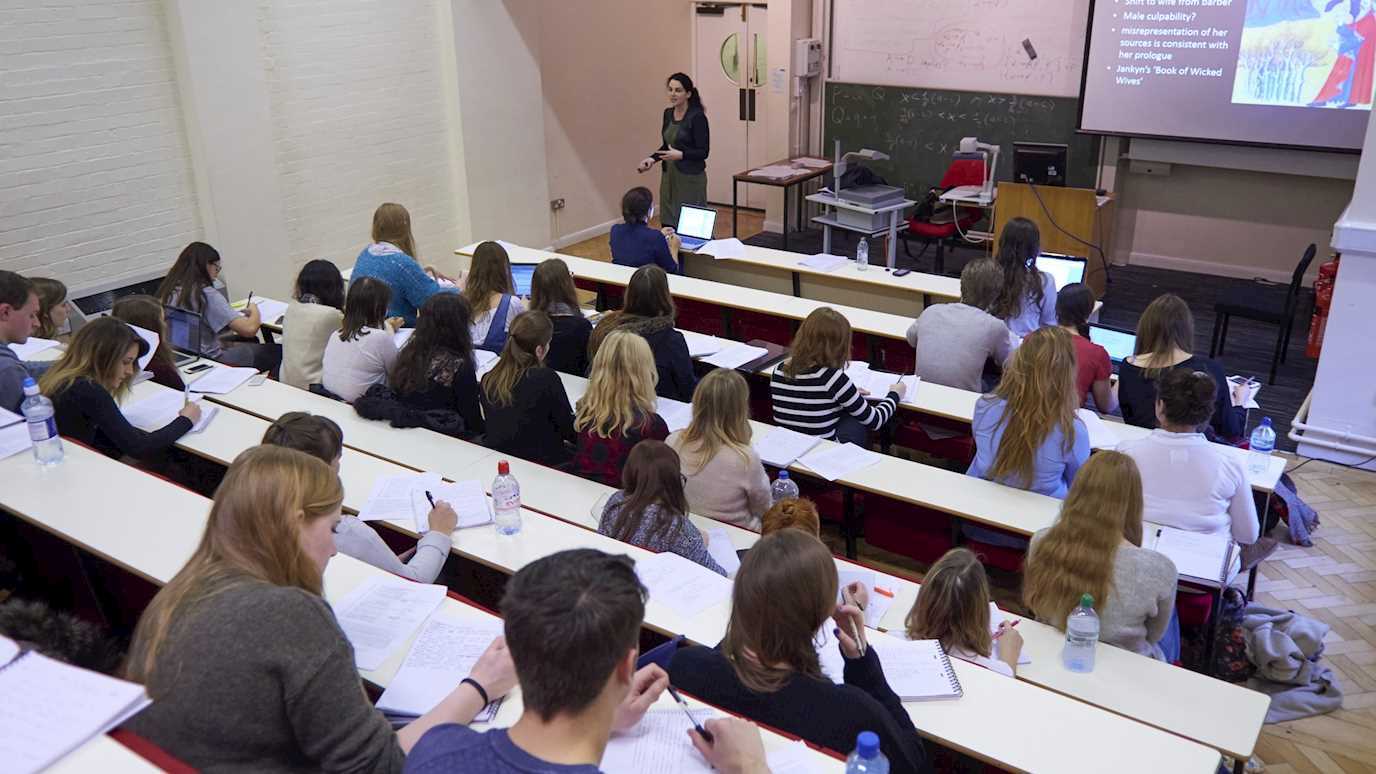
Source: Times and Sunday Times Good University Guide 2023
Source: Complete University Guide 2023
Explore Royal Holloway

Scholarships
Get help paying for your studies at Royal Holloway through a range of scholarships and bursaries.

Clubs and societies
There are lots of exciting ways to get involved at Royal Holloway. Discover new interests and enjoy existing ones.

Heading to university is exciting. Finding the right place to live will get you off to a good start.

Whether you need support with your health or practical advice on budgeting or finding part-time work, we can help.

Discover more about our 21 departments and schools.

Research Excellence Framework
Find out why Royal Holloway is in the top 25% of UK universities for research rated ‘world-leading’ or ‘internationally excellent’.

Challenge-led research themes
Royal Holloway is a research intensive university and our academics collaborate across disciplines to achieve excellence.

Discover world-class research at Royal Holloway.

Discover more about who we are today, and our vision for the future.

Royal Holloway began as two pioneering colleges for the education of women in the 19th century, and their spirit lives on today.

We’ve played a role in thousands of careers, some of them particularly remarkable.

Find about our decision-making processes and the people who lead and manage Royal Holloway today.
Skip to main content
- Faculties and schools
- Services for business
- How to find us
- Undergraduate study
- Postgraduate study
- International students

Home > Postgraduate study > Postgraduate courses > Creative Writing MA
Creative Writing MA
Why choose this course.
With a full programme of workshops and critical study, this Creative Writing MA offers you the chance to work on your own writing in different genres with the support of published practitioners.
You will learn in workshops, one-to-one or in small groups, with support from practising and published writers and fellow students. Our award-winning former creative writing students include Booker-shortlisted Oyinkan Braithwaite, Joe Pierson, who won the Bridport Prize, Stefan Mohammed, awarded the Dylan Thomas Prize, Bafta-winner, Sarah Woolner, the acclaimed poet Dom Bury and celebrated novelist Faiqa Mansab.
The Writers' Workshop module will encourage you to develop your writing 'voice' through engagement with fellow students across a range of genres (in fiction or creative non-fiction), while the Special Study module enables you to specialise in one genre, such as fiction, non-fiction, poetry or drama.
This Creative Writing MA will give you the knowledge and confidence to enter the cultural debate and to begin to identify outlets for your own writing.
Our external examiner has rated it highly:
- 'The Kingston MA is very lively, energised and relevant in its outlook.'
- 'You are more experimental, adventurous and original than other creative writing MAs in the UK.'
Curtis Brown Agent's Choice competition
All successful applicants who take up their place with us in September will be entered into our competition to have a consultation with Annabel White , an agent at top London literary agency Curtis Brown.
So make sure the creative work you submit with your application is your very best - it might win you a meeting with a literary agent.
Reasons to choose Kingston
- The Creative Writing MA helps you to develop the craft of creative writing, either on a general level or through specialising in your chosen genre.
- You will become part of Kingston's thriving community, with events such as readings, lectures from published authors, editors and agents, masterclasses and enriching discussions.
- The creative dissertation and critical essay give you the chance to further specialise. You also explore writing in a range of forms and styles and take a module exploring critical theory and experimental/avant-garde writing.
- You will have the opportunity to contribute to Kingston University's publication, Ripple, which includes fiction, poetry, reviews and creative non-fiction and is edited by students on the course.
- appointed staff - many are published authors or active researchers, which keeps your learning dynamic.
- peer review - giving you the chance to discuss your own and other students' work in a mutually supportive environment.
The Art School Experience
As part of Kingston School of Art , students on this course benefit from joining a creative community where collaborative working and critical practice are encouraged.
Our workshops and studios are open to all disciplines, enabling students and staff to work together, share ideas and explore multi-disciplinary making.

What our students say
In this video, one of our creative writing alumna and a current student discuss why they chose the course, what they enjoyed about it and why they'd recommend it to future applicants.
What you will study
You will have the opportunity to develop your creative writing skills in general or specialise in a chosen genre. As well as studying literary criticism and theory, you will also and will look at the professional elements of writing, such as copy-editing and how to get your work published.
Core modules
Optional placement year.
You'll be expected to pass all four modules and the dissertation to complete the course.
Creative Writing Dissertation
This module focuses on your own creative writing and research into your chosen form or genre, developed in consultation with your supervisor. You learn via one-to-one tutorials with your personal supervisor. You produce two pieces of writing:
- a creative dissertation – a portion of a novel, a body of poetry, a play screenplay or other creative form of no more than 15,000 words; and
- a critical essay of approximately 3,000 words – considering the relationships between your own writing and the literary contexts/theoretical concerns that inform published writing in your chosen genre or form.
Your supervisor must agree in advance the final structure, approximate word length and for presentation conventions of these pieces.
Special Study: Workshop in Popular Genre Writing
This module offers a regular and intensive review of your writing in one of the following genres: poetry, crime writing, prose fiction, biography, drama, scriptwriting or writing for children. You will be advised on how to strengthen your knowledge of the codes and conventions of your chosen genre to produce a substantial piece or collection of work that will reflect your knowledge of and engagement with your chosen genre. You will apply detailed feedback on your work to your writing as well as using your increased knowledge of your chosen genre to make your writing more effective. These elements will help you improve the key transferable skills of analysis and implementation that will feed forward into your dissertation module and into all analytical/practical tasks you subsequently undertake.
Writing the Contemporary
This module provides the opportunity to examine ways in which reading is essential to writing practice and teaches you to apply literary techniques and strategies from contemporary fiction, life writing and poetry texts to your own work. You will develop the concept of 'reading as a writer' in order to explore how contemporary concerns are brought to the fore by artistic strategies, and examine how an understanding of these can provide models for your own creative practice. You will submit work including a reflective reading journal as well as a creative piece in a genre of your choice.
Ten Critical Challenges for Creative Writers
The module is designed to introduce students to some issues of critical and literary theory. The module is also designed to make students more aware of how their work impacts upon wider literary, cultural, political and philosophical issues. Awareness of these theories and of some of the issues surrounding the production and reception of literary texts will stimulate them, encouraging creative and conceptual thinking. The module will explore debates about literature and the practice of creative writing through readings of essays and texts that are relevant to criticism and theory. The academic component of the assessment will support the creative work with the objective that students will also have to demonstrate critical, academic, analytical skills.

Writers' Workshop
In this module you will present and discuss your own and each other's work in a weekly workshop. The draft work presented may include several genres and forms, such as crime writing, fantasy fiction, children's literature, historical fiction, science fiction, romance and autobiography. Practical criticism of student writing will be accompanied by discussion of the scope or constraints of the various genres, as well as the implications of particular forms. Attention will be paid to the transferable components of good writing: appropriate use of language, narrative pace, dialogue, expression, characterisation and mood.
Many postgraduate courses at Kingston University allow students to do a 12-month work placement as part of their course. The responsibility for finding the work placement is with the student; we cannot guarantee the work placement, just the opportunity to undertake it. As the work placement is an assessed part of the course, it is covered by a student's Student Route visa.
Find out more about the postgraduate work placement scheme.
Entry requirements
Typical offer.
A 2:2 or above honours degree, or equivalent, in creative writing, English literature, literature and language, drama or theatre studies or a humanities subject.
International
All non-UK applicants must meet our English language requirements. For this course it is Academic IELTS of 6.5 overall with 5.5 in all elements. Please make sure you read our full guidance about English language requirements , which includes details of other qualifications we'll consider.
Applicants from one of the recognised majority English speaking countries (MESCs) do not need to meet these requirements.
Country-specific information
You will find more information on country specific entry requirements in the International section of our website.
Find your country:
- Middle East
Teaching and assessment
Portfolios of exercises, edited and revised creative writing with evidence of extensive drafting, essays, presentations, research projects, substantial pieces of creative writing of publishable standard.
Guided independent study (self-managed time)
When not attending timetabled sessions, you will be expected to continue learning independently through self-study. This typically involves reading and analysing articles, regulations, policy documents and key texts, documenting individual projects, preparing coursework assignments and completing your PEDRs, etc.
Your independent learning is supported by a range of excellent facilities including online resources, the library and CANVAS, the University's online virtual learning platform.
Support for postgraduate students
At Kingston University, we know that postgraduate students have particular needs and therefore we have a range of support available to help you during your time here.
Your workload
Year 1: 5% of your time is spent in timetabled learning and teaching activity.
- Scheduled learning and teaching: 93 hours
- Guided independent study (self-managed time): 1,707 hours
Contact hours may vary depending on your modules.
Writers Workshop - Module CW7001
- 22 hours timetabled activity
- 278 hours guided independent study (self-managed time)
Critical Challenges - Module CW700
- 22 hours timetabled study
Structure and Style - Module CW7003
Special study in genre - module cw7003, dissertation - module cw7000.
- 5 supervisions
- 255 hours independent study (self-managed time)
How you will be assessed
100% coursework.
Feedback summary
We aim to provide feedback on assessments within 20 working days.
Class sizes
Workshops normally have between six and 12 students. To give you an indication of class sizes, this course normally enrols 15 to 20 students and lecture sizes are normally 10 to 20. However, this can vary by module and academic year.
Who teaches this course?
This course is delivered by Kingston School of Art. As a student on this course, you will benefit from a lively study environment, thanks to the wide range of postgraduate courses on offer. The combination of academics and practitioners makes it a unique environment in which to further your studies and your career.
The University provides a vibrant and forward-thinking environment for study with:
- courses designed in collaboration with industry professionals – keeping you up to date with the latest developments;
- established connections with the London arts and media scene – with a range of guest speakers, professors and lecturers visiting the University; and
- committed and enthusiastic staff – many of whom are expert practitioners as well as leading academics and researchers.
Postgraduate students may also contribute to the teaching of seminars under the supervision of the module leader.
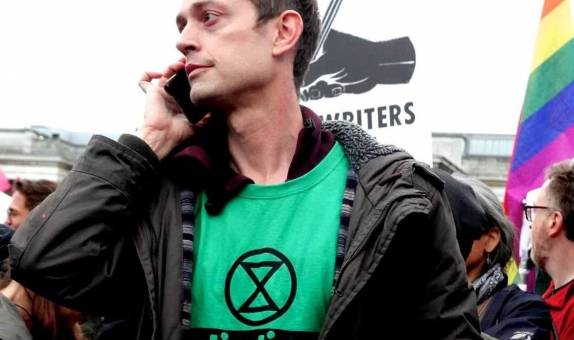
Dr James Miller
Course leader.
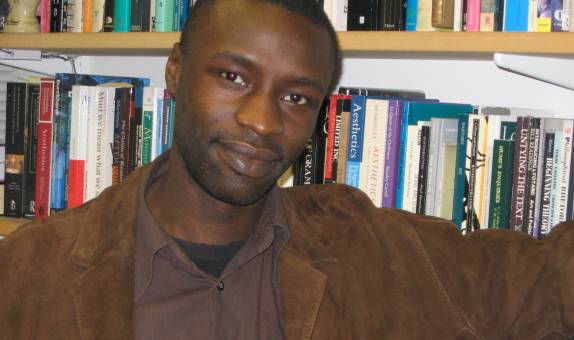
Mr Oludiran Adebayo
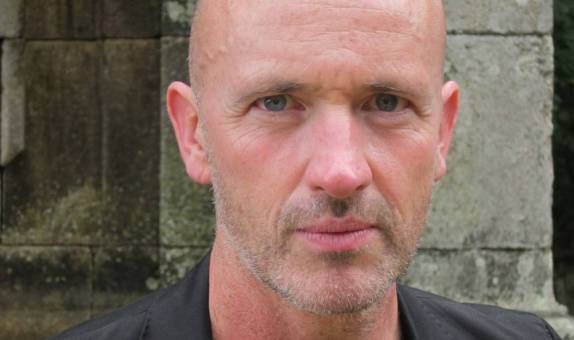
Dr Adam Baron
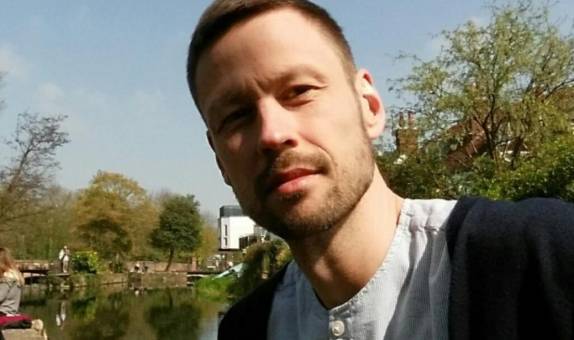
Dr Martin Dines
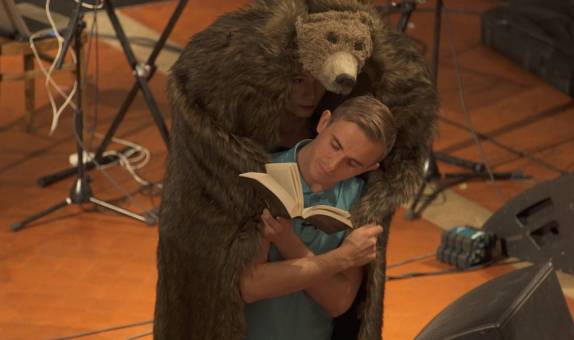
Mr Steven J. Fowler
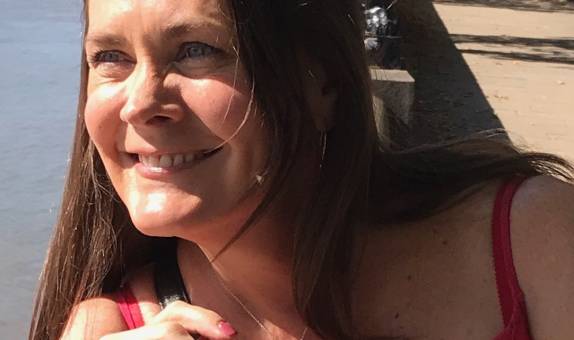
Dr Meg Jensen
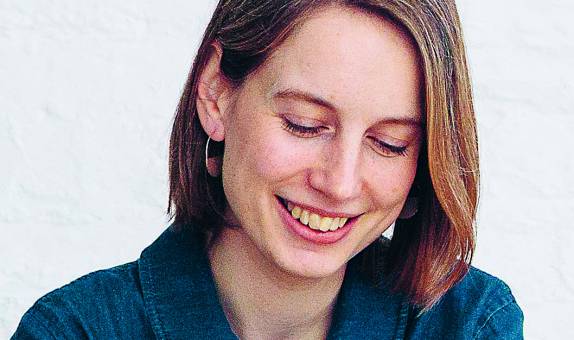
Anna Johnson
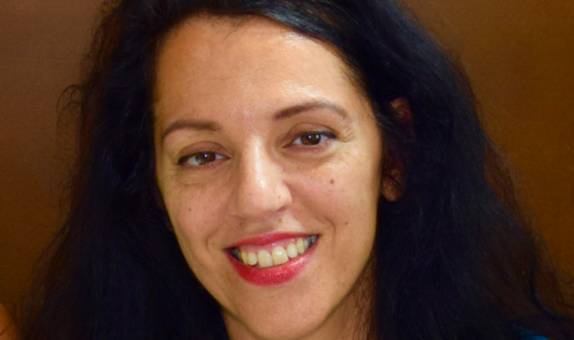
Dr Marina Lambrou
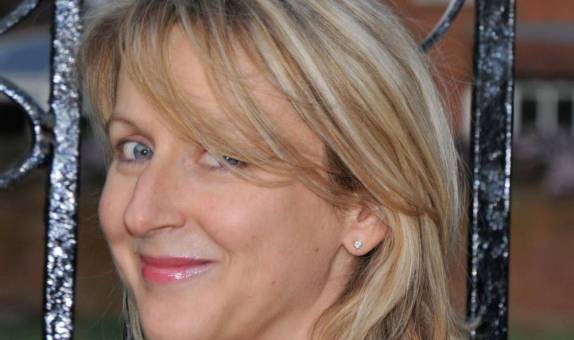
Dr Wendy Vaizey
Fees for this course, 2024/25 fees for this course, home 2024/25.
- full time £9,900
- part time £5,445
International 2024/25
- full time £16,900
- part time £9,295
2023/24 fees for this course
Home 2023/24.
- full time £9,860
- part time £5,423
International 2023/24
- full time £16,200
- part time £8,910
Tuition fee information for future course years
This is a two-year full-time course with the published full-time fee payable in each year of study.
If you start your second year straight after Year 1, you will pay the same fee for both years.
If you take a break before starting your second year, or if you repeat modules from Year 1 in Year 2, the fee for your second year may increase.
Fees for the optional placement year
If you choose to take a placement as part of this course, you will be invoiced for the placement fee in Year 2. Find out more about the postgraduate work placement scheme and the costs for the placement year.
Postgraduate loans
If you are a UK student, resident in England and are aged under the age of 60, you will be able to apply for a loan to study for a postgraduate degree. For more information, read the postgraduate loan information on the government's website .
Scholarships and bursaries
Kingston University offers a range of postgraduate scholarships, including:
- Inspire the Future scholarship
- Postgraduate scholarships for international students
If you are an international student, find out more about scholarships and bursaries .
We also offer the following discounts for Kingston University alumni:
- Alumni discount
- Progression Scholarship
Additional costs
Depending on the programme of study, there may be extra costs that are not covered by tuition fees which students will need to consider when planning their studies. Tuition fees cover the cost of your teaching, assessment and operating University facilities such as the library, access to shared IT equipment and other support services. Accommodation and living costs are not included in our fees.
Where a course has additional expenses, we make every effort to highlight them. These may include optional field trips, materials (e.g. art, design, engineering), security checks such as DBS, uniforms, specialist clothing or professional memberships.
Our libraries are a valuable resource with an extensive collection of books and journals as well as first-class facilities and IT equipment. You may prefer to buy your own copy of key textbooks, this can cost between £50 and £250 per year.
Computer equipment
There are open-access networked computers available across the University, plus laptops available to loan . You may find it useful to have your own PC, laptop or tablet which you can use around campus and in halls of residences. Free WiFi is available on each of the campuses. You may wish to purchase your own computer, which can cost £100 to £3,000 depending on your course requirements.
Photocopying and printing
In the majority of cases written coursework can be submitted online. There may be instances when you will be required to submit work in a printed format. Printing, binding and photocopying costs are not included in your tuition fees, this may cost up to £100 per year.
Travel costs are not included in your tuition fees but we do have a free intersite bus service which links the campuses, Surbiton train station, Kingston upon Thames train station, Norbiton train station and halls of residence.
There is a wide range of facilities at our Penrhyn Road campus , where this course is based. You will have access to a modern environment with the latest equipment, including the Learning Resources Centre. This offers:
- subject libraries, plus a free inter-library loan scheme to other libraries in the Greater London area;
- online database subscriptions; and
- a growing selection of resource materials.
The Iris Murdoch Archives
Kingston University hosts two major archives relating to Iris Murdoch, a significant philosopher and one of the twentieth century's greatest novelists. These archives currently comprise:
- Iris Murdoch's Oxford library (more than 1,000 volumes, many of them heavily annotated by Murdoch);
- the papers, tapes, interviews and manuscripts collected by Peter Conradi, Iris Murdoch's official biographer and Murdoch scholar; and
- various letter runs and documents donated by well-wishers.
Resources in London
Kingston is just a 30-minute train journey away from central London. Here you can access a wealth of additional libraries and archives, including the British Library.
After you graduate
Some of our departmental graduates have achieved notable successes, having published short stories and novels which were started as part of their degree and attracted good literary agents, for example:
- Oyinkan Braithwaite's novel, My Sister the Serial Killer , reviewed by The New Yorker and BBC Radio 4's Open Book and Front Row, has won the Crime and Thriller book of the year at the British Book Awards; Oyinkan is the first black woman to do so.
- Grainne Murphy has recently signed a two-book deal with Legend Press. Her debut novel, Where the Edge Is , was published in September 2020, with The Ghostlights to be published in 2021.
- Ben Halls' debut The Quarry was book of the day in The Guardian in March 2020.
- Amy Clarke has signed a two-book deal. Like Clockwork is a psychological suspense novel about a true crime podcast host who is obsessively trying to solve the decades-old cold case of a notorious Minnesotan serial killer whose victims were each one year younger than the last. It is due to be published in March/April 2021 by Houghton Mifflin Harcourt, with a second book to follow.
- A story Seraphina Madsen wrote for the MA Critical Challenges module was published in the UK's pre-eminent literary journal, The White Review, and secured her an agent and a book deal.
- Stevan Alcock is another MA student whose debut novel – workshopped on our MA – was published by 4th Estate.
- Hannah Vincent is a former MFA student with novels out with Myriad Editions and Salt.
- Myriad Editions also run a writing competition each year aimed at finding new writers, with MFA student Karly Stilling winning in 2015. This year the award was won by another current Kingston student, Sylvia Carr. Former MA (now PhD student) Joseph Pierson was a recent runner up.
- Julia Lewis is a former MFA student and experimental poet who has gone on to publish a wide range of work. She also rewrote MA tutor James Miller's novel Lost Boys as a collection of experimental poetry.
- Stefan Mohamed won the Dylan Thomas Prize and has gone to have a successful career as a writer of YA fiction.
- MA student Vicky Newham signed a two book deal for her crime series. Vicky is on the Daggers longlist for the best crime novel by a first-time author.
- Faiqa Mansab published her debut novel This House of Clay and Water in Pakistan and India to great acclaim and it has been optioned by the talented Sheherzade Sheikh for screen adaptation.
- Other successes include Susie Lynes and Lauren Forry.
- Other former students have gone on to work in editorial posts in the publishing industry.
Why I chose Kingston
Don't just take our word for it – here's what students say about what it's like to study at Kingston University.
What our students and graduates say
The main reason I've chosen the MA in Creative Writing at Kingston University is the variety of genres you can choose from on the course. I am writing poetry, but I wanted to get involved with people who are writing other things so I could experiment with different genres and learn from them too. The MA in Creative Writing gives me that opportunity and lets me choose workshops that reflect exactly my style of writing.
One of the most useful parts of the course is the Elements of Professional Writing module, which focuses on the practical side of being a writer. It offers advice on everything from how to stay positive to how to present your work to get it published.
Katerina Koulouri
I chose to study at Kingston because unlike many writing courses, it allowed space for both fantasy and children's novels. I especially loved my Children's Literature class.
Another standout was my dissertation tutor, Liz Jensen, who gave me remarkably good and detailed feedback, and the lovely people in my writing workshops. I'm really glad I came to Kingston.
Once I finished my masters I returned to my home country, Ireland, where I write and live by the water. I started writing a fantasy novel for young adults, titled 'The Demon's Lexicon', whilst at Kingston which has since been signed by Simon & Schuster.
Sarah Rees Brennan
This Creative Writing MA course gave me the structure, self-discipline and direction I needed. I've always written poetry – I started when I was just seven – but I have done it in a very unstructured way.
Completing work for the weekly writers' workshops has been very useful. I've attended creative writing evening classes before where we shared our work, but the comments and criticism from other students on the MA is at a much higher level.
Alice Thurling
Links with business and industry
A range of additional events and lectures will enhance your studies and add an extra perspective to your learning. Activities for this course include:
- a series of masterclasses with publishing specialists and professionals;
- weekly guest lectures by leading journalists including Samira Ahmed, an award-winning journalist with 20 years' experience in print and broadcast; David Jenkins, editor of Little White Lies, a bi-monthly movie magazine powered by illustration; Richard Moynihan, Head of digital journalism, The Telegraph and Alex Stedman, fashion blogger at The Frugality and former style editor at Red magazine;
- regular readings through Writers' Centre Kingston, which offers an annual programme of events from talks to workshops and festivals, hosted and curated in partnership with institutions local to Kingston University and in London, from The Rose Theatre to the Rich Mix Cultural Foundation, from the Museum of Futures to Kingston First; and
- regular philosophy lunchtime lectures which focus on a major figure in the history of Western philosophy, introducing students to that thinker's work, usually through the discussion of one of her or his emblematic works.
The literary magazine Ripple is edited by MA students, providing:
- a platform for the publication of creative work; and
- a chance to get hands-on experience of the publishing process.
Research areas
Research in English literature and creative writing at Kingston University covers the following areas:
- 19th and 20th century British and American fiction;
- fictions of globalisation;
- gothic writing;
- travel writing;
- narratives of slavery;
- women's writing from the 18th century to the present;
- New Woman and fin de siècle fictions;
- Shakespeare;
- literature of the English Reformation period;
- English women's religious poetry during the seventeenth century; and
- postcolonial studies.
It focuses around the following research initiatives:
- Iris Murdoch Archive – established in 2004 to oversee research on the Iris Murdoch archives acquired by Kingston University in 2003/04).
- Life Narratives Research Group (LNR) – bringing together best practice from all genres of life narrative work.
- Cultural Histories @ Kingston – centred around the concept of the 'cultural text', the group includes scholars from the fields of literature, film, media, history, music, dance, performance, and journalism.
- Writers' Centre Kingston – a literary cultural centre dedicated to creative writing in all its forms, with an annual programme of events, talks, workshops and festivals.
- Race/Gender Matters – captures and concentrates research on theoretical, critical and creative engagements with the materiality of race, gender and language.
We also hold regular seminars and host presentations by visiting speakers.
Course changes and regulations
The information on this page reflects the currently intended course structure and module details. To improve your student experience and the quality of your degree, we may review and change the material information of this course. Course changes explained .
Programme Specifications for the course are published ahead of each academic year.
Regulations governing this course can be found on our website.
Related courses

Creative Writing and Publishing MA
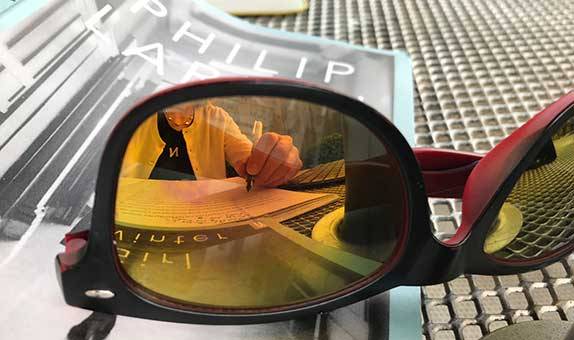
Creative Writing Distance Learning MA

Creative Writing MFA

Journalism PgDip/MA

Magazine Journalism MA
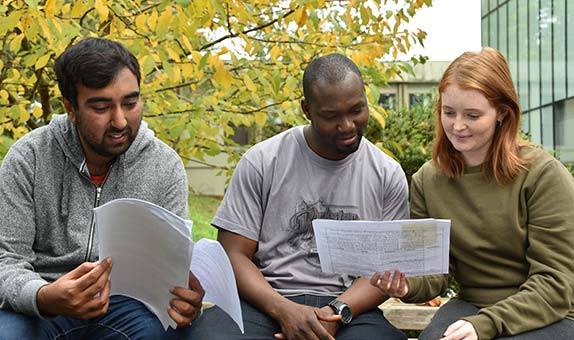
Secondary Teaching leading to Qualified Teacher Status (QTS) PGCE English
- Fees and funding
- Accommodation
- Open Events
- Work placement
- Study resources
- Student support
- Choose Kingston
- Disability and mental health support
- Website accessibility
- Website feedback
- Freedom of Information
- Wider Information Set
- Privacy Notice
- Charitable status
Kingston University , Holmwood House, Grove Crescent, Kingston upon Thames KT1 2EE . Tel: +44 (0)20 8417 9000
Click here to start your application. Apply now
MA Contemporary Creative Writing
The Master of Arts in Contemporary Creative Writing at Northeastern University London equips students with the knowledge, craft skills and discipline needed to be a creative writer now.
- Entry Requirements
Why Choose Our MA Contemporary Creative Writing?
Our Inaugural Cohort Scholarship : to celebrate the launch of the MA, all successful applicants for our first cohorts will receive a £2,250 scholarship towards the cost reducing the tuition fee of the MA Contemporary Creative Writing to £6,750.*
- To be part of a new kind of MA, focused on contemporary creative writing. Who is being published now, why, and how can you join them?
- Our innovative online experience: work in a way that suits your lifestyle, with full- or part-time study, weekly synchronous and asynchronous learning activities, and plenty of live interaction with tutors and peers.
- To be inspired by writers from all over the world, working as part of a diverse writing community.
- To work with lecturers who are also authors, and who will offer bespoke feedback on your writing.
- For the option to participate in our annual in-person Summer Writing Series, where you can meet tutors, peers and industry professionals, and take part in live classes, talks and workshops.
Introduction
The Master of Arts in Contemporary Creative Writing at Northeastern University London equips students with the knowledge, craft skills and discipline needed to be a creative writer now. There are more routes to publication available than ever before. However, navigating the twenty-first century literary marketplace requires specialist skills and knowledge alongside artistic prowess. Read more
From the moment they join our MA programme, our students are considered writers and supported in achieving their personal and professional creative goals. Diverse contemporary authors and publication platforms are foregrounded, contextualised by the study of significant shifts in the literary landscape over the last 25 years. This enables students to situate their creative practice in today’s marketplace, develop awareness of avenues for artistic expression and gain professional skills suitable for the creative industries. All courses are led by published authors who are also experienced academics at the forefront of Creative Writing as a discipline.
This fully online MA aims to be flexible and inclusive, with full- and part-time study options. Writers evolve their creative practice in a supportive and structured online learning environment, suitable for a writing community including recent graduates, lifelong learners, returners to education, and writers with wellbeing or access needs.
Students will take courses which explore fiction, creative nonfiction, poetry, scripts and screenplays alongside each other, and others which enable them to specialise in favoured forms. A combination of synchronous and asynchronous learning tasks means writers can work in a way which accommodates their individual lifestyles. These include lively online forums, interactive learning activities, creative writing workshops, face-to-face webinars and regular bespoke feedback from tutors on works-in-progress. Community is central: although working at distance, students work closely with peers and tutors on developing craft, critical and editing skills, preparing them to work professionally with editors, producers, agents, publishers and publicists.
Writers can choose to enrich their online experience by attending Northeastern University London’s annual in-person Summer Writing Series at an additional cost. This option is open to all MA students but is not a required element of the programme. Participants will be able to meet peers and tutors, write together and attend a series of live literary events curated by the Creative Writing Faculty. Events may include author talks, creative industry Q&As, guest lectures, professional role plays and live workshops.
Our MA in Contemporary Creative Writing is an innovative, flexible programme which aims to draw together writers from across the world. This enables diverse experiences, encounters and perspectives to inform a truly global outlook on being a creative writer today.
Questions about the Master of Arts in Contemporary Creative Writing? Email the programme founder Dr Claire Griffiths at [email protected] to enquire or set up a Zoom chat. Alternatively, ask the Creative Writing team via Twitter: @WritingNULondon .
Scholarship
Inaugural Cohort Scholarship: To celebrate the launch of our new Master of Arts in Contemporary Creative Writing, all students starting the MA in September 2024 will receive a £2,250 scholarship towards the cost of the programme. Read more
Inaugural Cohort Scholarship Terms and Conditions:
Inaugural Cohort Scholarship applies for MA Contemporary Creative Writing starters in September 2024.
Inaugural Cohort Scholarship acknowledges certain recruitment-dependent optional and enrichment courses may not run due to low student uptake.
The MA Contemporary Creative Writing programme is a remote 180-credit programme. Read more
Students will complete two compulsory courses (a total of 60 credits), two ‘Masterclass’ courses (a total of 60 credits) and a dissertation (60 credits).
The MA Contemporary Creative Writing programme also offers the option of an in-person Summer Writing Series enrichment course of 2-5 days (non-credit bearing) at an additional cost.
Teaching & learning
The MA Contemporary Creative Writing programme will be delivered remotely online via live webinars, workshops, peer-editing and dedicated discussion forums.
Part-time study
The MA programme can be taken part-time over two years. Part-time students attend the same remote classes as their full-time colleagues. The classes are not run separately in the evening for part-time students. Read more
While we try to make the part-time study as flexible as possible, our Masters programmes are demanding and we advise students that, if they intend to work alongside the course, their work should be flexible.
Career Opportunities
The MA programme will equip writers with the necessary skills to enter a variety of positions within the creative industries and to work towards the publication and/or production of their own work. Students will learn the professional skills required to approach film and television producers, agents, publishers, and journals and publications (both in print and online) in order to sell and commission their work. They will also emerge prepared for further study in academia should they wish to pursue this route. Read more
Potential career paths for students include published writers of poetry, fiction and nonfiction; writers in Writers’ Rooms for TV; dramaturgs; radio writers; editors; publishers; agents; journalists; reviewers; development executives; screen industry workers; copywriters; advertisers; media and publicity specialists; academia.
Message a student
Ask a student questions about their experience
- Accessibility Tools
- Current Students
- Postgraduate
- Postgraduate Taught Courses
- School of Culture and Communication Postgraduate Taught Courses
- English Literature, Creative Writing Postgraduate Taught Courses
Creative Writing, MA
- An introduction to postgraduate study
- Postgraduate Taught Courses coming soon
- Scholarships and Bursaries
- Fees and Funding
- Conversion Courses
How to Apply
- Postgraduate Research Programmes
- Accommodation
- School of Aerospace, Civil, Electrical & Mechanical Engineering Postgraduate Taught Courses
- School of Biosciences, Geography and Physics Postgraduate Taught Courses
- Classics, Ancient History, Egyptology Postgraduate Taught Courses
- English Language, TESOL, Applied Linguistics Postgraduate Taught Courses
- MA Creative Writing
- MA English Literature
- MA Creative Writing (Extended)
- MA Welsh Writing In English
- History Postgraduate Taught Courses
- Media, Communications, Journalism and PR Postgraduate Taught Courses
- Modern Languages, Translation, and Interpretation Postgraduate Taught Courses
- Welsh Postgraduate Taught Courses
- School of Engineering and Applied Sciences Postgraduate Taught Courses
- School of Health and Social Care Postgraduate Taught Courses
- School of Law Postgraduate Taught Courses
- School of Management Postgraduate Taught Courses
- School of Mathematics and Computer Science Postgraduate Taught Courses
- Medical School Postgraduate Taught Courses
- School of Psychology Postgraduate Taught Courses
- School of Social Sciences Postgraduate Taught Courses
- Fast-track for current students
- Postgraduate scholarships and bursaries
- Contact the Postgrad Admissions team
- How to Apply For Your Postgraduate Course
- Postgraduate Fees and Funding
- Postgraduate Open Days
- Apply Online
- Postgraduate Careers and Employability
- Postgraduate Study Video Hub
- Why study at Swansea
- Academi Hywel Teifi
- Student life
- Student Services
- Information for parents and advisors
- Enrolment, Arrivals and Welcome
- Postgraduate Enquiry
- Postgraduate programme changes
- Meet our postgraduate students
- Postgraduate Prospectus
Are you a UK or International Student?
Study an ma in creative writing and develop literary and media writing skills, key course details, course overview.
The MA in Creative Writing is a uniquely inspirational programme that delivers integrated training in the writing of literary and media text. Taught by experienced writers of major profile, this course provides teaching on a range of genres including fiction, short story, poetry, drama, screenwriting and creative non-fiction. Your studies will connect with the unique literary culture of Wales, home to one of the oldest bardic traditions in Europe.
Why Creative Writing at Swansea?
As part of a vibrant Swansea community of writers and artists, you will have the chance to forge personal links with National Theatre Wales and open-mic events at venues such as the Dylan Thomas Centre and Howl. There is also scope for work experience with local publishers. The School of Culture and Communication is based on our energising Singleton Park campus, in parkland overlooking Swansea Bay. Designed to promote individual and collaborative research activity of international standard, the Graduate Centre provides a supportive environment for postgraduate research and taught masters study. It offers postgraduate training to enhance academic and professional development, and facilitates seminar programmes, workshops and international conferences.
Your Creative Writing Experience
You will study a set number of optional 20-credit modules, before undertaking a 60-credit creative writing dissertation in the second part of the course. Varied modules include long fiction, writing radio drama, screenwriting, James Joyce and literary theory, global media and comparative journalism. Drama writing is a particular teaching strength, and contains the relatively new and unexplored field of Dramaturgy. You have the chance to write for online journal The Swansea Review , student-run online journal The Siren , and The Waterfront student newspaper. On the annual Writers’ Day at the Dylan Thomas Centre, you can meet with editors, agents, publishers and writers, to discuss the finer details of publication and the craft of writing. You will also benefit from guest visits by figures from the world of arts and publishing and free membership of Literature Wales, the national literature promotion agency.
Creative Writing Employment Opportunities
As well as significantly improving your writing skills, you should develop oral communication skills by learning to present your ideas in a range of formats. Graduates from this course enter a range of creative industries including publishing, broadcasting, marketing and advertising.
You study a set number of optional 20-credit modules before undertaking a 60-credit creative writing dissertation in the second part of the course. The wide mix of modules includes long fiction, writing radio drama, screenwriting, James Joyce and literary theory, global media and comparative journalism.
MA 1 Year Full-time
Year 1 (level 7t), fheq 7 taught masters / pgdip / pgcert.
Students choose 120 credits from the following:
Compulsory Modules
None found.
Optional Modules
Choose Exactly 40 credits from the following Modules:
NOTE : Students must select two of the three TB1 modules listed below.
Choose Minimum Of 60 credits from the following Modules:
NOTE : MA CW students to choose up to three per semester; – please note that you need to have selected 2 of the compulsory (selective) modules overall. Creative Writing students may take English Literature/Welsh Writing in English modules at the discretion of the Literature MA Programme Director. Students must have an equal number of modules in each semester. To take EN-M78 you must have successfully completed EN-M34. To take EN-M40 you must have successfully completed EN-M36.
Choose Maximum Of 20 credits from the following Modules:
NOTE : Credits permitting Creative Writing students may take English Literature/Welsh Writing in English modules at the discretion of the Literature MA Programme Director. MS-M12 is offered by the Media Department.
FHEQ 7 Taught Masters Dissertation
Students choose 60 credits from the following:
Choose Exactly 60 credits from the following Modules:
NOTE : Following successful completion of Part-1, students take the 60 credit Dissertation module listed below
MA 2 Year Part-time
Choose Minimum Of 20 credits from the following Modules:
NOTE : Select 1 or 2 from the following 3 TB1 modules in years 1 and 2
Choose Maximum Of 40 credits from the following Modules:
NOTE : MA CW 2-yr P/T students to choose up to three per academic year and no more than 2 in one semester; – please note that you need to have selected 2 of the compulsory (selective) modules overall. To take EN-M78, you must have successfully completed EN-M34. To take EN-M40 you must have successfully completed EN-M36. Creative Writing students may take English Literature/Welsh Writing in English modules at the discretion of the Literature Writing MA Programme Director.
NOTE : Credits permitting, Creative Writing students may take English Literature/Welsh Writing in English modules at the discretion of the Literature Writing MA Programme Director . MS-M12 is offered by the Media Department
Year 2 (Level 7T)
NOTE : MA CW 2-yr P/T students to choose up to three per academic year and no more than 2 in one semester; – please note that you need to have selected 2 of the compulsory (selective) modules overall. To take EN-M78, you must have successfully completed EN-M34. To take EN-M40 you must have successfully completed EN-M36. Creative Writing students may take English Literature/Welsh Writing in English modules at the discretion of the Literature Writing MA Programme Director
MA 3 Year Part-time
NOTE : Select 1 or 2 from the following 3 TB1 modules. Students must take 2 of these modules over the course of their MA overall.
NOTE : Select sufficient credits to total 60 overall. Students can also choose one of the English Literature listed in options 2 at the discretion of the Eng Lit Programme Director, in each Academic year. You may not exceed 40 credits in any one teaching block . To take EN-M78 you must have successfully completed EN-M34. To take EN-M40 you must have successfully completed EN-M36.
NOTE : Credits permitting Creative Writing students may take English Literature/Welsh Writing in English modules at the discretion of the Literature Writing MA Programme Director. MS-M12 is offered by the Media Department.
NOTE : Select 1 or 2 from the following 3 TB1 modules. Students must take 2 of these modules over the course of their MA overall. You may not repeat any modules already taken at Year 1.
Year 3 (Level 7D)
NOTE : Following successful completion of Part-1 students take the 60 credit Dissertation module listed below
Entry Requirements
How you're taught.
We are proud to provide an outstanding educational experience, using the most effective learning and teaching approaches, carefully tailored to suit the specific needs of your course. Our courses consist of in-person, on-campus teaching, enabling full engagement with your lecturers and fellow students.
Practical skills sessions, seminars, and workshops predominantly take place in person, allowing for group working and presentations. However, our approach also includes the use of some online learning to support and enhance traditional face-to-face teaching.
Online learning may take place ‘live’ using software such as Zoom, allowing you to interact with the lecturer and peers and to ask questions. Lecture recordings also allow for more flexibility to revisit material, to revise for assessments and to enhance learning outside of the classroom. Some modules have extra resources in our virtual learning environment (Canvas), such as videos, slides and quizzes enabling further flexible study.
Students study two compulsory modules and four optional modules in part-one and a dissertation, a portfolio in a genre of their choosing in part-two.
Welsh Provision
Some provision.
There are opportunities for Welsh speakers to study some elements of this postgraduate course through the medium of Welsh but there is not yet enough provision to reach 40 credits in each year. The Programme Director can outline to you what is available in Welsh.
Academi Hywel Teifi is here to support you throughout your time at Swansea University. We can offer you:
- Access to generous Welsh-language study scholarships or bursaries .
- Access to the Arwain mobile app for the latest information about Welsh-medium courses and modules available to download free on the App Store and Google Play .
- An interview through the medium of Welsh when applying for a place.
- Personal correspondence in Welsh, English or bilingually.
- The option to create and submit your coursework or sit exams through the medium of Welsh (even if you have chosen to study in English), and your work will be assessed in Welsh.
- A Welsh-speaking Personal Tutor.
- One-to-one support to improve your academic Welsh language skills.
- An opportunity to gain an additional free qualification that serves as evidence of your Welsh language ability for future employers.
- Membership of the Swansea University Branch of the Coleg Cymraeg Cenedlaethol.
Visit the Welsh Language Rights webpage for further information about Students' Welsh Language Rights.
Continuing to study through the medium of Welsh will be:
- a natural step for you if you have studied through the medium of Welsh at undergraduate level.
- a way of maximizing your chances of getting the best education.
- a way of receiving a high level of support as the study groups are smaller.
- a valuable addition to your CV and career development.
Meet Your Lecturers
Our degrees are taught by experts, who have a wealth of knowledge to pass on to our students.
You can find out more about our academic expertise on our staff pages.
Tuition Fees
Ma 1 year full time, ma 2 year part time, ma 3 year part time.
Tuition fees for years of study after your first year are subject to an increase of 3%.
You can find further information of your fee costs on our tuition fees page .
You may be eligible for funding to help support your study. To find out about scholarships, bursaries and other funding opportunities that are available please visit the University's scholarships and bursaries page .
International students and part-time study: It may be possible for some students to study part-time under the Student Visa route. However, this is dependent on factors relating to the course and your individual situation. It may also be possible to study with us if you are already in the UK under a different visa category (e.g. Tier 1 or 2, PBS Dependant, ILR etc.). Please visit the University information on Visas and Immigration for further guidance and support.
Current students: You can find further information of your fee costs on our tuition fees page .
Funding and Scholarships
You may be eligible for funding to help support your study.
If you're a UK or EU student starting a master’s degree at Swansea University, you may be eligible to apply for Government funding to help towards the cost of your studies. To find out more, please visit our postgraduate loans page.
To find out about scholarships, bursaries and other funding opportunities that are available please visit the University's scholarships and bursaries page.
Academi Hywel Teifi at Swansea University and the Coleg Cymraeg Cenedlaethol offer a number of generous scholarships and bursaries for students who wish to study through the medium of Welsh or bilingually. For further information about the opportunities available to you, visit the Academi Hywel Teifi Scholarships and Bursaries page.
Additional Costs
Access to your own digital device/the appropriate IT kit will be essential during your time studying at Swansea University. Access to wifi in your accommodation will also be essential to allow you to fully engage with your programme. See our dedicated webpages for further guidance on suitable devices to purchase, and for a full guide on getting your device set up .
You may face additional costs while at university, including (but not limited to):
- Travel to and from campus
- Printing, photocopying, binding, stationery and equipment costs (e.g. USB sticks)
- Purchase of books or texts
- Gowns for graduation ceremonies
Careers and Employability
Swansea Employability Academy (SEA) will support you at each stage of your career journey helping you build a bright future.
Our career support services include:
- Employability workshops, employers’ talks, bespoke events and careers fairs
- Individual advice and guidance from professionally qualified Careers Advisers
- Help with finding jobs, internships, work placements and volunteering opportunities
- Access to information resources on a wide range of career management topics
- Funding to support student internship opportunities and Student Society/Club events.
We also provide help and advice for Swansea University Alumni up to two years after you graduate.
Academic Support
As well as subject specific support by college teaching staff and your personal tutor, the Centre for Academic Success provides courses, workshops and one-to-one support in areas such as:
- Academic writing
- Maths and statistics
- Critical thinking
- Time management
- Digital skills
- Presentation skills
- Note taking
- Revision, memory and exam techniques
- English language skills (if English is not your first language).
In addition, if you have a Specific Learning Difficulty (SpLD), disability, mental health or medical condition, the Centre for Academic Success have Specialist Tutors to support your learning, working alongside the Disability Office and Wellbeing Service to support all your needs and requirements whilst studying at Swansea University.
We care about our students and our aim is to ensure that you achieve the best degree classification. We have a personal mentoring system where you will be allocated a personal tutor. We also have an “open door” policy where our academic teachers are available to talk to you at any time about any queries or academic concerns you may have.
Please apply through the University’s central application system .
EU students - visa and immigration information is available and will be regularly updated on our information for EU students page.
Application Deadlines
We recommend that you submit your application to our courses as early as you can in advance of our application deadlines. Courses will close earlier than the application deadlines listed if all available places are filled. You can find further information on our Application Deadlines webpage.
- Current Students
- News & Press
- Research Excellence
- Teaching & Student Experience
- Graduate Employability
- UK Rankings
- World Rankings
- Single Topic Rankings
- Research Excellence Framework
- Higher Education Awards
- Ageing and Health
- Cities and Place
- Culture and Creative Arts
- Social Justice
- Discover Festival
- Faculty of Science, Agriculture & Engineering
- Faculty of Humanities & Social Sciences
- Faculty of Medical Sciences
- Central and South Asia
- Latin America
- Middle East and North Africa
- North America
- Small Island Developing States
- South East Asia and Oceania
- Sub-Saharan Africa
- Transparency
- Office for Students Transparency Data
- Access & Participation
- Support for our Community
- UN Sustainable Development Goals
- https://www.ncl.ac.uk/who-we-are/equality/race-equality/black-history-month/
- Faith, Religion & Belief
- Lesbian, Gay, Bisexual & Transgender
- Let Us Know
- Workplace Adjustments
- Useful Resources
- Equality Analysis
- Social Justice Stories
- Voluntary & Community Groups
- Santander Universities
- Regional Partnerships
- Widening Participation
- Newcastle Helix
- Art on Campus
- History of Newcastle University
- Find a Degree
- Subject Areas
- Step-by-Step Guide for UK Students
- Step-by-Step Guide for International & EU Students
- Applying through UCAS
- A and AS Levels
- Application Decisions
- Access Schemes & Pathway Programmes
- Policies & Procedures
- Applicants with Disabilities
- Mature Applicants
- Deferred Entry
- Undergraduate Application Advice
- Subject Scholarships
- Sports Scholarships
- Opportunity Scholarships
- VC's Excellence Scholarships
- VC's Global Scholarships
- VC's International Scholarships
- International Foundation Scholarships
- St Nicholas’ Educational Trust Scholarship
- NU Sanctuary Scholarships
- Undergraduate Norway Scholarship
- International Family Discounts
- VC’s EU Scholarships – Undergraduate
- VC's Excellence Scholarships - Europe
- VC's Business Excellence Scholarships - Europe
- Cowrie Foundation Scholarship
- Edward Long Scholarship
- Alumni Discount
- Different Tuition Fees
- Additional Costs
- Student Loans
- International Student Finance
- Sign up & Discover
- School and College Outreach
- Information for Parents and Supporters
- Why Choose Newcastle?
- Your Study Options
- Qualifications Explained
- Postgraduate Research Programmes
- Search for Funding
- Guide to Funding
- Postgraduate Tuition Fees
- Application Help
- Advice & Resources
- Your Offer Guide
- Postgraduate Open Days
- Postgraduate Virtual Open Day
- Doctoral College
- Distance Learning
- Continuing Professional Development (CPD)
- Study Support
- Campus Tours
- Life in Newcastle
- Get Involved
- Cost of Living
- Health & Wellbeing
- Mature Students
- Childcare Support
- Care Leavers
- Asylum Seekers
- Teaching & Learning
- Student Blog - Belong
- Types of Rooms
- Accessibility and Individual Requirements
- Castle Leazes
- Bedrooms we offer
- Accommodation Guides
- New Student Guarantee
- Advanced Booking
- Submit an Application
- Part Year Student Accommodation
- What Happens Next?
- Safety and Security
- Returning Next Year
- Extending Your Stay
- Room Changes
- Parking & Bicycle Storage
- Post and Parcels
- Guest Visitors and Going Away
- Energy & Recycling
- ResLife Find a Flatmate
- Your ResLife Team
- Student Support
- Payment Methods
- Payment Schedules
- Managed Partnerships
- Rent Adjustments
- Student Village Receptions
- Your Accommodation Team
- Report a Fault
- Feedback and Complaints
- Internet Connection
- Work Placements
- About the Careers Service
- Careers Service News
- Careers Service Events
- Work for Yourself
- Career Planning
- Careers Modules
- Making Applications
- Interviews, Tests & Assessment Centres
- Internships, Placements & Shadowing
- Finding Jobs
- Handling Job Offers
- Researching Employers
- Making Contacts
- Further Study
- Awards, Competitions & Project Funding
- Volunteering
- Boost Your CV
- Defence Technical Undergraduate Scheme (DTUS)
- Getting Here
- Self-Guided Campus Tours
- Undergraduate Offer Holder Days
- Postgraduate Schools & Supervisors
- Undergraduate Open Days
- Tier 4 Visa from Inside UK
- Tier 4 Visa from Outside UK
- Short-Term Visa from Outside UK
- International Study Blog
- Our Pathway Courses
- English Language Courses
- Fees, Costs and Scholarships
- INTO Newcastle University
- Student Exchange and Study Abroad
- Request a Prospectus
- Chat to a Student
- Your Academic Experience
- Research Impact
- Research Strengths
- Centres of Research Excellence
- Research Culture Action Plan
- Working Together on Research Culture
- Policy Notes
- Global Partnerships
- Let's Work Together
- Sustainable Water
- Food Security
- Sustainable Livelihoods
- Global Impact
- Research Excellence Framework (REF) 2021
- Code of Good Practice in Research
- University Research Committee
- Animal Research Policy
- Declaration on Openness on Animal Research
- Animal Procedures
- Helping Human Health
- Animal Research News
- Ethics at Newcastle
- Research Data and Open Access
- Research Strategy & Development
- Policy and Information Team
- Grants & Contracts (HaSS and SAgE)
- NJRO (inc Grants & Contracts FMS)
- Research Funding Development
- Biomedical Facilities
- Chemistry Facilities
- Clinical Facilities
- Engineering Facilities
- Marine & Agricultural Facilities
- More Facilities
- Facilities A to Z
- Research Funding
- Research News
- Case Studies
- CPD Courses
- Collaborative Research
- Company Creation
- Consultancy
- Corporate Partnerships
- DA Power Engineering
- DA MSc Digital Technology Solutions
- DA Executive Education Snr. Leader Apprenticeships
- Facilities and Equipment
- Intensive Industrial Innovation Programme
- Knowledge Transfer Partnerships
- Technology Transfer and Licensing
- Clinical Trials & Research
- Working with Newcastle
- Tender Opportunities
- Submitting an Invoice
- Sustainable Procurement
- Code of Conduct & Policies
- Meet the Team
- Health & Social Challenges
- Creative Collaborations
- Connect with alumni
- Develop your career
- Discover lifelong learning opportunities
- Support future generations
Creative Writing MA, PGCert
Our PGCert and MA in Creative Writing provide a unique opportunity to explore and develop your creative writing skills through practice, revision and discussion.
You are currently viewing course information for entry year:
Start date(s):
- September 2024

Our Creative Writing MA develops your understanding of your own writing and your technical writing skills.
You'll further your awareness of:
- writing processes
- professional writing
This PGCert and MA in Creative Writing provide a unique opportunity to explore and develop your creative writing skills. We teach creative writing in three areas:
- prose writing, with an emphasis on short fiction, creative non-fiction and the essay
- poetry with an emphasis on the practice and study of a variety of poetic traditions and contemporary techniques
- scriptwriting, which includes writing for the theatre and screenwriting
Through these areas, we'll introduce you to a wide range of subjects and opportunities with which writers are working professionally.
Members of our Creative Writing staff have received national and international recognition for their writing. You'll work with them to prepare your own writing for submission.
If you complete the Creative Writing PGCert, you can choose to transfer to the second year of our part-time MA.
Important information
We've highlighted important information about your course. Please take note of any deadlines.
Please rest assured we make all reasonable efforts to provide you with the programmes, services and facilities described. However, it may be necessary to make changes due to significant disruption, for example in response to Covid-19.
View our Academic experience page , which gives information about your Newcastle University study experience for the academic year 2023-24.
See our terms and conditions and student complaints information , which gives details of circumstances that may lead to changes to programmes, modules or University services.
Related courses
Qualifications explained.
Find out about the different qualification options for this course.
An MA is a taught Master’s degree. It usually involves the study of social sciences, art and humanities, and business, consulting and management. It typically includes:
- subject-specific taught modules
- a dissertation or research project of approximately 15,000 – 18,000 words
You'll usually study an MA full-time over 12 months.
A Master of Arts is awarded for the successful completion of 120 credits of taught modules and a 60 credit dissertation or research project.
Find out about different types of postgraduate qualifications .
A PGCert is awarded if you successfully complete half of the taught modules (60 credits).
What you'll learn
Through this Creative Writing Master's you'll be inducted into the habits and inventive strategies of writers in a module dedicated to this process. You'll also begin to concentrate on skills specific to different fields of the writing craft.
You'll go on to test your own writing in one of three workshops dedicated to poetry, prose or script. You'll also take the opportunity to focus on areas of imaginative writing that are specialisms of our staff. Examples of our specialisms include:
- dramatic monologue
- poetry and translation
- life writing
- screenwriting
Our Profession of Writing module explores the roles and importance of:
- professional opportunities for creative writers
You will study modules on this course. A module is a unit of a course with its own approved aims and outcomes and assessment methods.
Module information is intended to provide an example of what you will study.
Our teaching is informed by research. Course content changes periodically to reflect developments in the discipline, the requirements of external bodies and partners, and student feedback.
Full details of the modules on offer will be published through the Programme Regulations and Specifications ahead of each academic year. This usually happens in May.
Optional modules availability
Some courses have optional modules. Student demand for optional modules may affect availability.
To find out more please see our terms and conditions .
The range of modules will be different if you're studying part-time.
Compulsory modules
Optional modules
- Craft: Prose
- Craft: Poetry
- Craft: Theatre Script
- Screenwriting
- Poetry and Translation
- Life Writing Masterclass
How you'll learn
You’ll be taught using a range of methods, typically including:
- taught sessions
- guided reading
- individual consultations
The portfolio will see you finely develop your work through one-to-one supervision. Our small seminar groups and one-to-one supervision mean you'll work closely with your tutors, who are all writing practitioners.
All our classes take place in the early evening.
Depending on your modules, you'll be assessed through a combination of:
Your teaching and learning is also supported by Canvas. Canvas is a Virtual Learning Environment. You'll use Canvas to submit your assignments and access your:
- module handbooks
- course materials
- course announcements and notifications
- written feedback
Throughout your studies, you’ll have access to support from:
- personal tutors
- our University Student Services Team
- student representatives
You'll also be assigned an academic member of staff. They will be your personal tutor throughout your time with us. They can help with academic and personal issues.
Your development
Our PGCert and MA in Creative Writing allow you to advance your creative ability through:
You will further your awareness of:
- writing craft
Your future
Our careers service.
Our award-winning Careers Service is one of the largest and best in the country, and we have strong links with employers. We provide an extensive range of opportunities to all students through our ncl+ initiative.
Visit our Careers Service website
Follow in their footsteps

- Name: Oisín
- Nationality: British
- Graduated: 2020
- Now working as: Software developer, writer and filmmaker
"I was inspired by the talent and creativity of my peers, and many of them have gone on to be published and recognised. We still support one another, sharing our successes and challenges along the way."
Find out what Oisín liked the most about studying Creative Writing MA at Newcastle University and how this degree helped him in his career as a software developer.
Read about Oisín's journey .
Quality and ranking
All professional accreditations are reviewed regularly by their professional body
From 1 January 2021 there is an update to the way professional qualifications are recognised by countries outside of the UK
Check the government’s website for more information .
The School of English Literature, Language and Linguistics is a lively and diverse community with over 700 undergraduates and 200 postgraduates. We're based in the Percy Building. Our purpose-built postgraduate suite includes:
- several dedicated computer clusters
- meeting rooms
- a kitchen and lounge area
Our award-winning Phillip Robinson Library has an extensive audio-visual collection.
The Newcastle Centre for Literary Arts (NCLA) is a world-class centre of excellence in the field of creative writing which contributes to the cultural life of the North East via:
The NCLA offers you the opportunity to get involved in our writing community through readings and events that feature:
- scriptwriters
- non-fiction writers
Past speakers include:
- Kazuo Ishiguro
- Paul Muldoon
- Val McDermid
- Peter Straughan
- Claudia Rankine
- David Almond
Fees and funding
Tuition fees for 2024 entry (per year).
If your studies last longer than one year, your tuition fee may increase in line with inflation.
Depending on your residency history, if you’re a student from the EU, other EEA or a Swiss national, with settled or pre-settled status under the EU Settlement Scheme, you’ll normally pay the ‘Home’ tuition fee rate and may be eligible for Student Finance England support.
EU students without settled or pre-settled status will normally be charged fees at the ‘International’ rate and will not be eligible for Student Finance England support.
If you are unsure of your fee status, check out the latest guidance here .
Scholarships
We support our EU and international students by providing a generous range of Vice-Chancellor's automatic and merit-based scholarships. See our searchable postgraduate funding page for more information.
What you're paying for
Tuition fees include the costs of:
- matriculation
- registration
- tuition (or supervision)
- library access
- examination
- re-examination
Find out more about:
- living costs
- tuition fees
If you are an international student or a student from the EU, EEA or Switzerland and you need a visa to study in the UK, you may have to pay a deposit.
You can check this in the How to apply section .
If you're applying for funding, always check the funding application deadline. This deadline may be earlier than the application deadline for your course.
For some funding schemes, you need to have received an offer of a place on a course before you can apply for the funding.
Search for funding
Find funding available for your course
Entry requirements
The entrance requirements below apply to 2024 entry.
Qualifications from outside the UK
English language requirements, admissions policy.
This policy applies to all undergraduate and postgraduate admissions at Newcastle University. It is intended to provide information about our admissions policies and procedures to applicants and potential applicants, to their advisors and family members, and to staff of the University.
Download our admissions policy (PDF: 201KB) Other policies related to admissions
Credit transfer and Recognition of Prior Learning
Recognition of Prior Learning (RPL) can allow you to convert existing relevant university-level knowledge, skills and experience into credits towards a qualification. Find out more about the RPL policy which may apply to this course
- How to apply
Using the application portal
The application portal has instructions to guide you through your application. It will tell you what documents you need and how to upload them.
You can choose to start your application, save your details and come back to complete it later.
If you’re ready, you can select Apply Online and you’ll be taken directly to the application portal.
Alternatively you can find out more about applying on our applications and offers pages .
Open days and events
You'll have a number of opportunities to meet us throughout the year including:
- campus tours
- on-campus open days
- virtual open days
Find out about how you can visit Newcastle in person and virtually
Overseas events
We regularly travel overseas to meet with students interested in studying at Newcastle University.
Visit our events calendar for the latest events
- Get in touch
Questions about this course?
If you have specific questions about this course you can contact:
Melanie Birch Events, Marketing and Postgraduate Administrator School of English Literature, Language and Linguistics Telephone: +44 (0) 191 208 7619 Email: [email protected]
For more general enquiries you could also complete our online enquiry form.
Fill in our enquiry form
Our Ncl chatbot might be able to give you an answer straight away. If not, it’ll direct you to someone who can help.
You'll find our Ncl chatbot in the bottom right of this page.
Keep updated
We regularly send email updates and extra information about the University.
Receive regular updates by email
Chat to a student
Chat online with current students with our Unibuddy platform.
- What You'll Learn
- How You'll Learn
- Your Development
- Your Future
- Quality and Ranking
- Fees and Funding
- Entry Requirements
- Open days & events

Alternatively, use our A–Z index
Attend an open day
Download our course brochure
Discover more about this subject area
MA Creative Writing / Overview
Year of entry: 2024
- View full page
We normally expect students to have a First or Upper Second class honours degree or its overseas equivalent in a humanities-based subject area.
Full entry requirements
Course options
Course overview.
- Engage with writers, editors and agents.
- Become part of a network of esteemed alumni .
- Learn from a distinguished team that includes novelists Jeanette Winterson CBE, Ian McGuire, Kamila Shamsie, Beth Underdown, Honor Gavin and Luke Brown; poets John McAuliffe, Frances Leviston, Vona Groarke and Michael Schmidt; and non-fiction writers Ellah Wakatama and Horatio Clare.
- Discover the rich literary fabric of Manchester, a UNESCO City of Literature, through Literature Live, Manchester Literature Festival, The Manchester Review, the International Anthony Burgess Foundation and Manchester-based publishers.
Please enable JavaScript to watch this video.
For entry in the academic year beginning September 2024, the tuition fees are as follows:
- MA (full-time) UK students (per annum): £12,500 International, including EU, students (per annum): £26,000
- MA (part-time) UK students (per annum): £6,250 International, including EU, students (per annum): £13,000
Further information for EU students can be found on our dedicated EU page.
The fees quoted above will be fully inclusive for the course tuition, administration and computational costs during your studies.
All fees for entry will be subject to yearly review and incremental rises per annum are also likely over the duration of courses lasting more than a year for UK/EU students (fees are typically fixed for International students, for the course duration at the year of entry). For general fees information please visit: postgraduate fees . Always contact the department if you are unsure which fee applies to your qualification award and method of attendance.
Self-funded international applicants for this course will be required to pay a deposit of £1000 towards their tuition fees before a confirmation of acceptance for studies (CAS) is issued. This deposit will only be refunded if immigration permission is refused. We will notify you about how and when to make this payment.
Policy on additional costs
All students should normally be able to complete their programme of study without incurring additional study costs over and above the tuition fee for that programme. Any unavoidable additional compulsory costs totalling more than 1% of the annual home undergraduate fee per annum, regardless of whether the programme in question is undergraduate or postgraduate taught, will be made clear to you at the point of application. Further information can be found in the University's Policy on additional costs incurred by students on undergraduate and postgraduate taught programmes (PDF document, 91KB).
Scholarships/sponsorships
Each year the School of Arts, Languages and Cultures offer a number of School awards and Subject-specific bursaries (the values of which are usually set at Home/EU fees level), open to both Home/EU and international students. The deadline for these is early February each year. Details of all funding opportunities, including deadlines, eligibility and how to apply, can be found on the School's funding page where you can also find details of the Government Postgraduate Loan Scheme.
See also the University's postgraduate funding database to see if you are eligible for any other funding opportunities.
For University of Manchester graduates, the Manchester Alumni Bursary offers a £3,000 reduction in tuition fees to University of Manchester alumni who achieved a 1st within the last three years and are progressing to a postgraduate taught masters course.
The Manchester Master's Bursary is a University-wide scheme that offers 100 bursaries worth £3,000 in funding for students from underrepresented groups.
Contact details
See: About us
Courses in related subject areas
Use the links below to view lists of courses in related subject areas.
- English Literature, American Studies and Creative Writing
Regulated by the Office for Students
The University of Manchester is regulated by the Office for Students (OfS). The OfS aims to help students succeed in Higher Education by ensuring they receive excellent information and guidance, get high quality education that prepares them for the future and by protecting their interests. More information can be found at the OfS website .
You can find regulations and policies relating to student life at The University of Manchester, including our Degree Regulations and Complaints Procedure, on our regulations website .
- Find a course
- Undergraduate study
- Postgraduate study
- MPhil/PhD research
- Short courses
- Entry requirements
- Financial support
How to apply
- Come and meet us
- Evening study explained
- International Students
- Student Services
- Business Services
- Student life at Birkbeck
- The Birkbeck Experience
- Boost your career
- About Birkbeck
- Contact Birkbeck
- Faculties and Schools
- ReciteMe accessibility
Creative Writing and Contemporary Studies
Pathway of Creative Writing (MA)
Application options include:
Course Overview
The MA Creative Writing and Contemporary Studies is run by experienced and forward-thinking teachers who have been enabling dynamic groups of students to improve their creative work and develop as writers for nearly two decades. They are proud of a growing list of published and prizewinning authors whose work started life in their seminars.
If you have been writing creatively for a while and feel the need for professional support and feedback and the guidance of published authors and a cohort of like-minded people, then this course is for you.
The MA Creative Writing and Contemporary Studies will help you to develop the craft of writing in various genres to a professional level. You will also develop your critical-thinking skills exploring critical methods and debates on experimental literature, media, popular culture, technology and cultural development.
It will give you the opportunity to:
- gain a deepened awareness of literary forms and a practical understanding of the writer’s craft
- develop confidence, sensitivity and discernment in analysis of your own and others’ work
- combine both practice-based learning with specialism in contemporary literature, culture and criticism, as well as the development of your own creative writing projects
- place your own writing in the context of developments in contemporary poetry, screenwriting, fiction and creative non-fiction
- cultivate a greater practical knowledge and understanding of the markets for poetry, fiction, screenwriting and non-fiction.
Discover the career opportunities available by taking Creative Writing and Contemporary Studies (MA).
Key information and modules
Creative writing and contemporary studies ma: 1 year full-time, on campus, starting october 2024, creative writing and contemporary studies ma: 2 years part-time, on campus, starting october 2024, creative writing and contemporary studies: january start ma: 2 years part-time, on campus, starting january 2025.
Find another course:
- Birkbeck was ranked 2nd in the UK for its English Language and Literature research in the 2021 Research Excellence Framework.
- In addition to working with the established and award-winning writers who teach the degree, you will have contact with industry professionals, such as publishers and literary agents, who offer a series of platform discussions in the summer term.
- The Mechanics' Institute Review, MIROnline , is a forum for the most exciting new writing in short fiction, poetry and creative non-fiction selected from students on this course and beyond.
- We offer a number of bursaries for postgraduate students .
Birkbeck makes all reasonable efforts to deliver educational services, modules and programmes of study as described on our website. In the event that there are material changes to our offering (for example, due to matters beyond our control), we will update applicant and student facing information as quickly as possible and offer alternatives to applicants, offer-holders and current students.
Entry Requirements
A second-class honours degree (2:2 or above, though this requirement may be waived if you can demonstrate exceptional talent), a personal statement (to be submitted with your application form) and a portfolio of prose writing of no more than 3000 words.
Your portfolio should be a section of a novel with a synopsis, a couple of short stories or a combination of the two. Please note that poetry, children’s fiction, journalism, screen- or playwriting are not appropriate submissions for this MA. Students are selected on the basis of their portfolio and statement, an interview (selected candidates only) and their degree.
Portfolio guidelines:
- Submit application.
- Wait up to 48 hours.
- Submit writing portfolio (Word or PDF) by logging into your MyBirkbeck profile, then going to the ‘Manage my application’ link and attaching the document.
Applications are reviewed on their individual merits and your professional qualifications and/or relevant work experience will be taken into consideration positively. We actively support and encourage applications from mature learners.
On your application form, please list all your relevant qualifications and experience, including those you expect to achieve.
Apply now to secure your place. The earlier you apply, the sooner your application can be considered and you can enrol. You do not need to have completed your current qualification to start your application.
English language requirements
If English is not your first language or you have not previously studied in English, the requirement for this course is the equivalent of an International English Language Testing System (IELTS Academic Test) score of 6.5, with not less than 6.0 in each of the sub-tests.
If you don't meet the minimum IELTS requirement, we offer pre-sessional English courses and foundation programmes to help you improve your English language skills and get your place at Birkbeck.
Visit the International section of our website to find out more about our English language entry requirements and relevant requirements by country .
Visa and funding requirements
If you are not from the UK and you do not already have residency here, you may need to apply for a visa.
The visa you apply for varies according to the length of your course:
- Courses of more than six months' duration: Student visa
- Courses of less than six months' duration: Standard Visitor visa
International students who require a Student visa should apply for our full-time courses as these qualify for Student visa sponsorship. If you are living in the UK on a Student visa, you will not be eligible to enrol as a student on Birkbeck's part-time courses (with the exception of some modules).
For full information, read our visa information for international students page .
Please also visit the international section of our website to find out more about relevant visa and funding requirements by country .
Please note students receiving US Federal Aid are only able to apply for in-person, on-campus programmes which will have no elements of online study.
Credits and accredited prior learning (APL)
If you have studied at university, you may have accumulated credits through the modules you studied. It may be possible to transfer these credits from your previous study to Birkbeck or another institution.
Creative Writing and Contemporary Studies: January start MA: 2 years part-time, on campus, starting in academic year 2024-25
Academic year 2024–25, starting january 2025.
Part-time home students: £5,400 per year Part-time international students : £9,915 per year
Creative Writing and Contemporary Studies MA: 1 year full-time or 2 years part-time, on campus, starting in academic year 2024-25
Academic year 2024–25, starting october 2024.
Part-time home students: £5,400 per year Full-time home students: £10,800 per year Part-time international students : £9,915 per year Full-time international students: £19,830 per year
Students are charged a tuition fee in each year of their programme. Tuition fees for students continuing on their programme in following years may be subject to annual inflationary increases. For more information, please see the College Fees Policy .
Discover the financial support available to you to help with your studies at Birkbeck.
International scholarships
We provide a range of scholarships for eligible international students, including our Global Future Scholarship. Discover if you are eligible for a scholarship .
At Birkbeck, most of our courses are taught in the evening and all of our teaching is designed to support students who are juggling evening study with work and other commitments. We actively encourage innovative and engaging ways of teaching, to ensure our students have the best learning experience.
Teaching may include formal lectures, seminars, and practical classes and tutorials. Formal lectures are used in most degree programmes to give an overview of a particular field of study. They aim to provide the stimulus and the starting point for deeper exploration of the subject during your own personal reading. Seminars give you the chance to explore a specific aspect of your subject in depth and to discuss and exchange ideas with fellow students. They typically require preparatory study.
In addition, you will have access to pastoral support via a named Personal Tutor.
Methods of teaching on this course
Lectures, seminars and writing workshops, with regular one-to-one tutorials throughout the year.
Key teaching staff on this course
Staff who may teach on this MA include:
- Julia Bell , Senior Lecturer in Creative Writing
- Dr Mark Blacklock , Lecturer in Modern and Contemporary English
- Dr Caroline Edwards , Senior Lecturer in Modern and Contemporary Literature
- Dr Grace Halden , Lecturer in Modern and Contemporary Literature
- Dr Steve Willey , Lecturer in Creative and Critical Writing
- Luke Williams , Lecturer in Creative Writing
Teaching hours
Our evening hours are normally between 6pm and 9pm (6-7.30pm and 7.30-9pm). Some programmes also offer teaching during the day and this will be clearly signposted to you where it is available.
On our taught courses, you will have scheduled teaching and study sessions each year. Scheduled teaching sessions may include lectures, seminars, workshops or laboratory work. Depending on the modules you take, you may also have additional scheduled academic activities, such as tutorials, dissertation supervision, practical classes, visits and field trips. On our taught courses, the actual amount of time you spend in the classroom and in contact with your lecturers will depend on your course, the option modules you select and when you undertake your final-year project (if applicable).
Alongside your contact hours, you will also undertake assessment activities and independent learning outside of class. The amount of time you need to allocate to study both for taught sessions (this might include online sessions and/or in-person sessions) and personal study will depend on how much you are studying during the year and whether you are studying full time or part time.
Birkbeck’s courses are made up of modules and allocated ‘credit’. One credit is equivalent to ten hours of learning time. Modules are usually in 15, 30 or 60 credit units. A 15-credit module will mean around 150 hours of learning, including taught sessions and independent study or group work. This is spread out over the whole period of that module and includes the time you spend on any assessments, including in examinations, preparing and writing assessments or engaged in practical work as well as any study support sessions to help you in your learning.
On our distance-learning and blended-learning courses, discussion, collaboration and interaction with your lecturers and fellow students is encouraged and enabled through various learning technologies.
Timetables are usually available from September onwards and you can access your personalised timetable via your My Birkbeck Profile online (if you have been invited to enrol).
Indicative class size
Class sizes vary, depending on your course, the module you are undertaking, and the method of teaching. For example, lectures are presented to larger groups, whereas seminars usually consist of small, interactive groups led by a tutor.
Independent learning
On our taught courses, much of your time outside of class will be spent on self-directed, independent learning, including preparing for classes and following up afterwards. This will usually include, but is not limited to, reading books and journal articles, undertaking research, working on coursework and assignments, and preparing for presentations and assessments.
Independent learning is absolutely vital to your success as a student. Everyone is different, and the study time required varies topic by topic, but, as a guide, expect to schedule up to five hours of self-study for each hour of teaching.
Study skills and additional support
Birkbeck offers study and learning support to undergraduate and postgraduate students to help them succeed. Our Learning Development Service can help you in the following areas:
- academic skills (including planning your workload, research, writing, exam preparation and writing a dissertation)
- written English (including structure, punctuation and grammar)
- numerical skills (basic mathematics and statistics).
Our Disability and Dyslexia Service can support you if you have additional learning needs resulting from a disability or from dyslexia.
Our Counselling Service can support you if you are struggling with emotional or psychological difficulties during your studies.
Our Mental Health Advisory Service can support you if you are experiencing short- or long-term mental health difficulties during your studies.
Assessment is an integral part of your university studies and usually consists of a combination of coursework and examinations, although this will vary from course to course - on some of our courses, assessment is entirely by coursework. The methods of assessment on this course are specified below under 'Methods of assessment on this course'. You will need to allow time to complete coursework and prepare for exams.
Where a course has unseen written examinations, these may be held termly, but, on the majority of our courses, exams are usually taken in the Summer term, during May to June. Exams may be held at other times of the year as well. In most cases, exams are held during the day on a weekday - if you have daytime commitments, you will need to make arrangements for daytime attendance - but some exams are held in the evening. Exam timetables are published online.
Find out more about assessment at Birkbeck, including guidance on assessment, feedback and our assessment offences policy.
Methods of assessment on this course
Assessment depends on the modules taken, but includes coursework and a 15,000-word dissertation, plus an unassessed reflective learning notebook.
Careers and employability
On successful completion of this MA Creative Writing and Contemporary Studies, you will have developed a set of valuable attributes, including:
- the ability to use language more confidently, precisely and imaginatively
- independent research skills
- the ability to convey your ideas and build an effective argument
- the ability to analyse and process complex ideas.
You will find MA Creative Writing and Contemporary Studies graduates progressing in career paths in:
- performing arts
- advertising
- public relations
- game design
- the civil service and business roles.
We offer a comprehensive careers service - Careers and Enterprise - your career partner during your time at Birkbeck and beyond. At every stage of your career journey, we empower you to take ownership of your future, helping you to make the connection between your experience, education and future ambitions.
You apply directly to Birkbeck for this course, using the online application link.
You will need to prove your identity when you apply - read more about suitable forms of identification .
Course specific deadlines and information.
You must also ensure you submit with your application form the following:
- a personal statement which outlines why you wish to study this course
- two professional or academic references
- a sample of creative writing (this can be a piece of fiction, a collection of poetry or a script), up to 1500 words
- a sample of critical writing about a literary text, up to 1500 words.
Students are selected on the basis of their writing samples, statement, an interview and their degree. Application guidelines:
- Submit application
- Wait up to 48 hours
- Submit your samples of writing (Word or PDF, clearly marked with your name, and with page numbers) by logging into your MyBirkbeck profile, then going to the 'Manage my application' link and attaching the document
When to apply
You are strongly advised to apply now, to ensure there are still places on your chosen course and to give you enough time to complete the admissions process, to arrange funding and to enrol.
You don't need to complete your current programme of study before you apply - Birkbeck can offer you a place that is conditional on your results.
You will also receive information about subject-specific induction sessions over the summer.
Help and advice with your application
Get all the information you need about the application, admission and enrolment process at Birkbeck.
Our online personal statement tool will guide you through every step of writing the personal statement part of your application.
Apply for your course
Apply for your course using the apply now button in the key information section .
Course structure
Course structure listing, course structure and modules for creative writing and contemporary studies: january start ma: 2 years part-time, on campus, starting january 2025.
You must complete modules worth a total of 180 credits, consisting of:
- four compulsory modules (30 credits each)
- a 15,000-word dissertation (60 credits).
Please note: the 2025 January- start route offers different modules to the October-start route due to revisions in the programme.
Compulsory modules
- Theorising the Contemporary, Contemporary Theorising
- Writing the Planet
- Writing The Self
- Writing Workshop
MA Creative Writing and Contemporary Studies dissertation
- Dissertation MA Creative Writing
Course structure and modules for Creative Writing and Contemporary Studies MA: 1 year full-time or 2 years part-time, on campus, starting October 2024
Please note: there are some minor differences between modules we offer on the October- and January-start courses.
- Creative Non-Fiction
You’ve not added any courses yet!
When you find a course you like select 'Add to course compare' to compare it with up to two other courses.
- MA Creative Writing

Creative Writing
Create publishable, disciplined fiction and poetry under the tutelage of internationally acclaimed authors.
Everything you need to know...
What is the fee.
Home: £10,310 for the course International/EU: £17,205 for the course
How long will I study?
Where will i study, city campus, when do i start.
September 2024 January 2025
Course summary
- Work under the guidance of internationally acclaimed writers of fiction and poetry.
- Graduate with a coherent and extensive body of creative work.
- Hone your skills with a focus on writing, reinforced with sound criticism and editing.
- Acquire the discipline and market awareness needed to create publishable work.
- Join numerous acclaimed authors as an alumnus of a longstanding, well-regarded course.
This course takes your work and your ambition seriously. You'll focus on your own writing, under the guidance of acclaimed authors of fiction and poetry. You'll leave with a body of work you can be proud of.
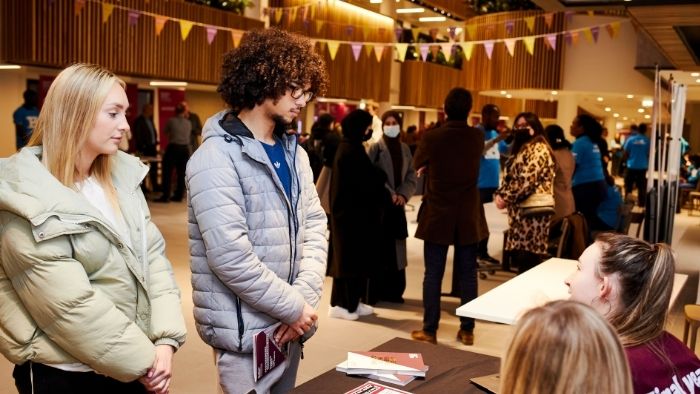
Come to an open day
Find out more at our postgraduate open days. Book now for your place.
How you learn
All our courses are designed around a set of key principles based on engaging you with the world, collaborating with others, challenging you to think in new ways, and providing you with a supportive environment in which you can thrive.
With a focus on the disciplined honing of your skills, this course is designed to help you become a publishable writer. You'll be assessed on writing projects frequently, with a culture of self-reflection and peer reviews. You'll take part in genre-specific creative workshops, benefit from one-to-one tutelage and take modules based around criticism and research acquiring the grounding that underpins great work.
You learn through
- seminars and tutorials
- frequent assessment, culminating in a major project
- genre-specific creative workshops
- masterclasses with writers, publishers, agents and other literary figures
- presentations
- editing sessions
- critical, theoretical and research-based modules
- one-to-one tutorials
Course leaders and tutors

Dr Shelley Roche-Jacques
I bring to my teaching my interest in dramatic action and the spatio-temporal elements of texts. This approach often helps students unpick ideas around genre, narrat … Read more
Applied learning
Networking opportunities
With frequent guest speakers, masterclasses and a wide involvement with the local and national literary industry, the course provides ample networking opportunities.
Future careers
This course prepares you for a career in
- writing fiction, poetry, children's writing and memoir
- further research
- blog and online writing
- copyediting, proofreading and ghost-writing
- reviewing and criticism
- copywriting
Some of our most successful students include best-selling author of A Short History of Tractors in Ukrainian , Marina Lewycka, T.S. Eliot short-listed poet Frances Leviston and Radio 4 and BBC TV script writer Sharon Oakes.
You study at City Campus through a structured mix of lectures, seminars and practical sessions as well as access to digital and online resources to support your learning.
City Campus is located in the heart of Sheffield, within minutes of the train and bus stations.
City Campus map | City Campus tour

Howard Street Sheffield S1 1WB

Adsetts library
Adsetts Library is located on our City Campus. It's open 24 hours a day, every day.
Equipment and facilities
On this course, you’ll have access to our dedicated humanities suite, including:
- co-working spaces with flexible desks, large screens, laptop library, comfy seating, and a shared kitchen
- the Performance Lab: our two-studio theatre space, fully equipped with lighting, sound and special effects.
- a specialist cinema equipped with state-of-the-art 4K digital projection and twin 35mm film projectors
- our learning centre, holding an extensive collection of subject-specific books, journals, and databases
- our skills centre, offering specialist advice to hone essential skills and provide feedback on your academic writing
Entry requirements
All students, additional information for eu/international students.
A folder of original writing demonstrating postgraduate level potential and, normally, a degree in English or related discipline.
If English is not your first language you will need an IELTS 6.5 score with a minimum of 6.0 in writing and 5.5 in all other skill areas or equivalent. If your English language skill is currently below IELTS 6.0 or equivalent we recommend you consider a Sheffield Hallam University Pre-sessional English course which will enable you to achieve an equivalent English score.
If you do not have such academic qualifications we may consider your application individually, based on your personal, professional and work experience, and other formal qualifications. You may also be able to claim credit points which can reduce the amount of time it takes to complete your qualification at Sheffield Hallam. Find out more
Application guidance When applying, you need to submit a completed application form, which includes a section requesting further information in support of your application. This part of the form should use tell us who you are, describe your relationship with writing, and what you hope to achieve on the course.
You also need to provide a sample of your original writing. Your sample is the most important part of the application, and you should use the opportunity to show us what you can do and persuade us that you have what it takes to thrive on the course.
We require one of the following • 3,000 words of prose - two short stories, two chapters from a children's book, novel or memoir • ten poems • a twenty minute script of a one-act play or radio play
Please submit your supporting work to the relevant email address below:
UK students: [email protected]
International or non-UK European students: [email protected]
If you are an International or non-UK European student, you can find out more about the country specific qualifications we accept on our international qualifications page.
For details of English language entry requirements (IELTS), please see the information for 'All students'.
Modules studied may differ depending on when you start your course.
Module and assessment information for future years is displayed as currently validated and may be liable to change. When selecting electives, your choices will be subject to the core requirements of the course. As a result, selections may be limited to a choice between one of two or more specified electives in some instances.
Compulsory modules
Extended project, the contemporary writer, the craft: short fiction and poetry, the workshop, fees and funding, home students, international students.
Our tuition fee for UK students starting full-time study in 2024/25 is £10,310 for the course. The tuition fee displayed above is for the full course. If the full course is more than one year in duration, the fee will be divided into annual payments which will then be rounded. This may mean the total fee you pay is slightly higher than the fee stated above. If you take a break in study or have to re-take part of the course, you may also be charged an additional fee and will be notified of this at the time.
If you are studying an undergraduate course, postgraduate pre-registration course or postgraduate research course over more than one academic year then your tuition fees may increase in subsequent years in line with Government regulations or UK Research and Innovation (UKRI) published fees. More information can be found in our terms and conditions under student fees regulations.
Our tuition fee for International/EU students starting full-time study in 2024/25 is £17,205 for the course. The tuition fee displayed above is for the full course. If the full course is more than one year in duration, the fee will be divided into annual payments which will then be rounded. This may mean the total fee you pay is slightly higher than the fee stated above. If you take a break in study or have to re-take part of the course, you may also be charged an additional fee and will be notified of this at the time.

Postgraduate student loans
Up to £11,222 available for Home students on most masters courses.
Additional course costs
This link allows you to view estimated costs associated with the main activities on specific courses. These are estimates and, as such, are only an indication of additional course costs. Actual costs can vary greatly depending on the choices you make during your course.
Legal information
Any offer of a place to study is subject to your acceptance of the University’s Terms and Conditions and Student Regulations .
Student success story
A group of students studying film and media production and creative writing travelled to Montreal, Canada to collaborate together and make film poems as part of their course.
How do I apply?
You apply for this course via our online application form.
- Apply for January 2025
- Apply for September 2024
You can also use the application form above to apply for future years of entry.
Not ready to apply just yet?
Why not come to our next open day? Open days are the perfect place to talk to staff and students, visit our campuses and get all the information you need. Alternatively, feel free to ask us a question.
Why choose us?
We are Gold rated in the Teaching Excellence Framework (TEF) for the outstanding quality of our teaching and student outcomes
Accommodation
We guarantee to find you an affordable place to live that’s close to campus and comes with all bills included
95% of our UK graduates are in work or further study 15 months after graduating (2020/21 Graduate Outcomes Survey)
Where next?
Find out more about Sheffield Hallam's postgraduate opportunities and community.

You can chat to teaching and admissions staff, view our facilities and learn more about your funding options.

Sign up for updates
Receive emails about postgraduate study, including application reminders and alerts for open days.

Information for international students
Information for international students including entry requirements by country and funding.
Cancel event
Are you sure you want to cancel your place on Saturday 12 November ?
Request Info
- Admissions Overview
- Visit UMass Boston
- Financial Aid
- First-Year Students
- Transfer Students
- Graduate Students
- International Students
- Academics Overview
- Majors & Programs
- Online Learning
- Colleges & Schools
- Academic Calendar
- Healey Library
- Student Equity, Access & Success
- Global Programs
- Study Abroad
- Fellowships
- Campus Life Overview
- Student Groups & Activities
- Housing & Dining
- Health & Wellness
- Diversity & Inclusion
- Safety & Security
- Orientation & New Students
- Research Overview
- Community-Driven Research
- Recognizing Excellence
- Student Research
- Centers & Institutes
- Core Facilities
- Research & Sponsored Programs
- About Overview
- Leadership & Administration
- Mission & Vision
- Facts & Figures
- Accreditation & Rankings
- History of UMass Boston
- Student Consumer Information
- Athletics Overview
- Recreation at UMass Boston
- Current Students
- Parents & Families
- Faculty & Staff
UMass Boston
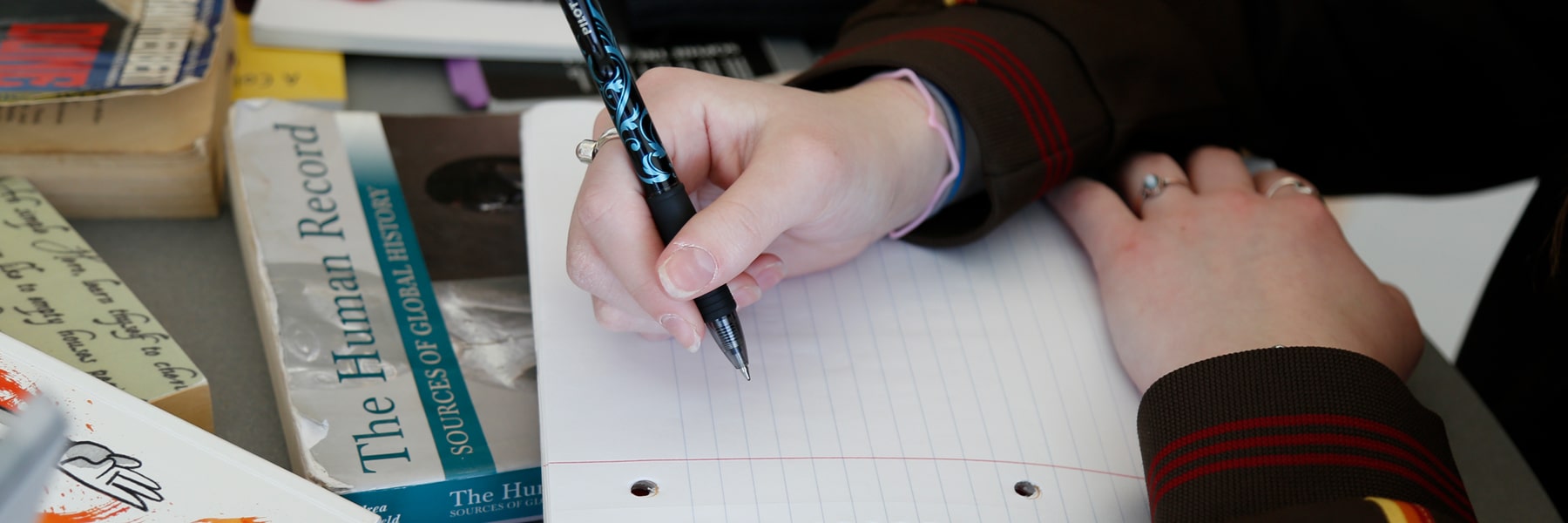
- Creative Writing MFA
Further your commitment to writing as the center of your professional life.
Intensive study and practice of fiction and poetry writing with award-winning and nationally renowned faculty at the most diverse university in new england..
UMass Boston's Creative Writing MFA offers you an intense, 3-year program and focused opportunity to further your commitment to writing as the center of your professional life. Through a combination of mentoring by accomplished faculty in a series of creative writing workshops, courses focused on the study of literature offered through the English MA Program, and electives that include the practice of literary editing, the teaching of creative writing, documentary poetics, the art of memoir, and more—you will have the guidance to develop and shape your work to the full extent of your talent.
All accepted students receive funding. Graduate assistantships offer the opportunity to work with students as teaching assistants and fellows, or in editorial positions with one of our sponsors, including 826 Boston, Hanging Loose Press, Write on the Dot, Consequence Magazine, Breakwater Review, and Arrowsmith Press.
Career Possibilities
Pursue a career as a professional writer, publishing your work in literary journals, magazines. Work as an editor and collaborate with writers to refine their work and shape the final product for publication. These are just a few of the possibilities.
Become a(n):
- Writer/Author
- Literary Agent
- Writing Instructor/Professor
Start Your Application
Plan Your Education
How to apply.
Applicants must meet general graduate admission requirements in addition to the following program-specific requirements:
- A 3.0 GPA overall and in the student’s major
- Three substantive and detailed letters of recommendation, from former teachers familiar with the applicant’s most recent academic and creative work
- A 3-5 page personal statement focusing on the role of the candidate’s reading life in his or her development as a writer. (Note: The general Graduate Admissions application refers to this as a statement of interests and intent. They are one and the same.)
- Applicants must indicate whether they are applying in FICTION or POETRY in their Statement of Purpose. If you want to apply in both genres, include one writing sample in FICTION and one in POETRY and indicate in the Statement of Purpose that the application is for both.
- A writing sample of 10 manuscript pages of poetry or 20 manuscript pages of fiction
Deadlines & Cost
Deadlines: January 15 (priority) for fall. While rare, if space is available, we’ll happily consider applications until June 1 (final deadline).
Application Fee: The nonrefundable application fee is $75. UMass Boston alumni and current students that plan to complete degree requirements prior to graduate enrollment can submit the application without paying the application fee.
Program Cost Information: Bursar's website
Writing Workshops (24 Credits)
Complete one from below four times.
- CW 601 - MFA Poetry Workshop 6 Credit(s) or
- CW 602 - MFA Fiction Workshop 6 Credit(s)
Literature Courses (9 Credits)
Complete three graduate literature courses.
Electives (9 Credits)
Complete three from below.
- CW 605 - Memoir Workshop 3 Credit(s)
- CW 606 - Literary Editing and Publishing 3 Credit(s)
- CW 614 - The Teaching of Creative Writing 3 Credit(s)
- CW 675 - Creative Writing Internship 3 Credit(s)
- CW 697 - Special Topics in Creative Writing 1-6 Credit(s)
Students may elect courses offered by other graduate programs with approval from the graduate program director.
- ENGL 459 Seminar for Tutors may be taken for graduate credit (see Undergraduate Catalog)
- ENGL 675 - Reading and Writing Poetry 3 Credit(s)
- ENGL 676 - Reading and Writing Fiction 3 Credit(s)
- ENGL 681 - Advanced Workshop in Poetry 3 Credit(s)
- ENGL 682 - Advanced Workshop in Fiction 3 Credit(s)
Thesis Courses (6 Credits)
Complete the course below both semesters of the third year.
- CW 699 - MFA Thesis 3 Credit(s)
Graduation Criteria
Complete 48 credits from twelve courses including four writing workshops, three literature courses, three electives, and two semesters of thesis workshops.
The MFA degree requires six semesters of full-time study, with 9 credits required in each of the first four semesters, and 6 credits in the final two semesters, during which students will concentrate on completing a thesis in fiction or poetry under the direction of a faculty member. MFA workshops are limited to 12 students, and seminars are limited to 15. Students have the opportunity to interact with writers in our Global Voices Visiting Writer series (recent visitors have been Raquel Salas Rivera and Carole Maso), and work with visiting prose writers - recently these have included Jane Unrue, ZZ Packer, and Fanny Howe.
Capstone: Completion of an MFA thesis of 48 to 64 pages of poetry or 100 to 200 pages of fiction written under the supervision of a thesis advisor, reviewed by a thesis committee, and subject to a public defense.
Statute of limitations: Five years.
Contact & Faculty
Graduate Program Director John Fulton john.fulton [at] umb.edu (617) 287-6700
English & Creative Writing MFA Department englishmfaprogram [at] umb.edu (617) 287-6702
Fiction Faculty
John Fulton , Program Director & Associate Professor Askold Melnyczuk , Professor Eileen Pollack , Visiting Assistant Professor
Poetry Faculty
Jill McDonough , Professor Shangyang Fang , Associate Lecturer
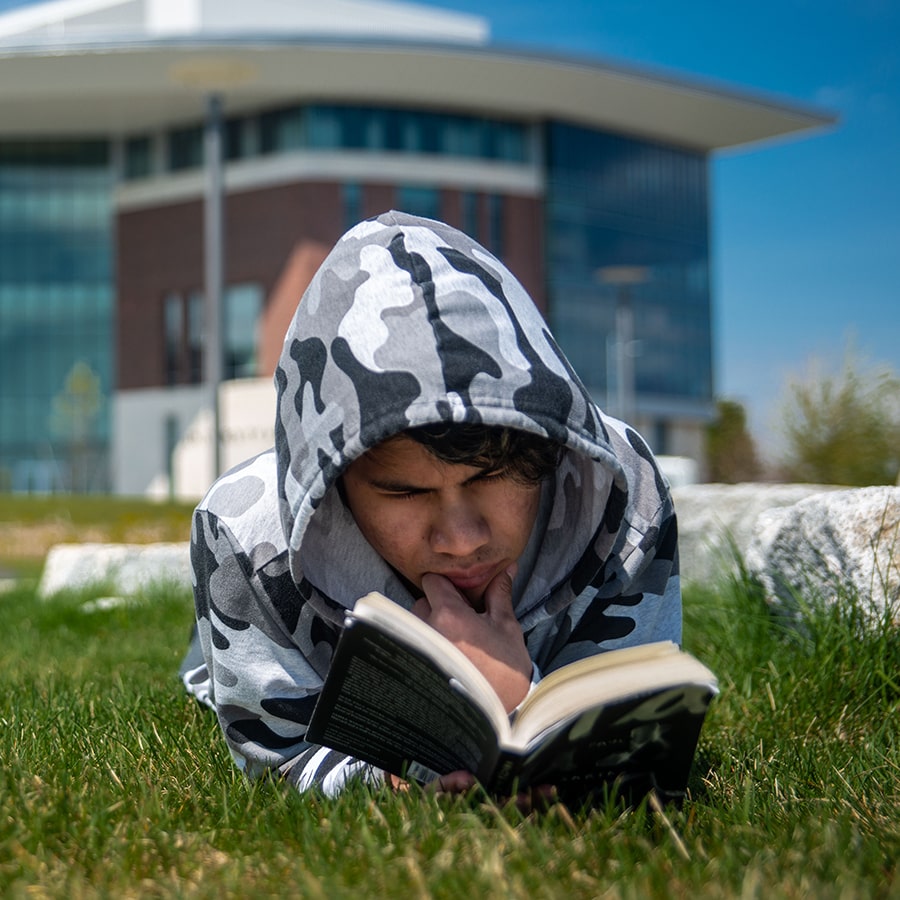
English Department
Learn more about UMass Boston's English department, our programs, and our faculty.
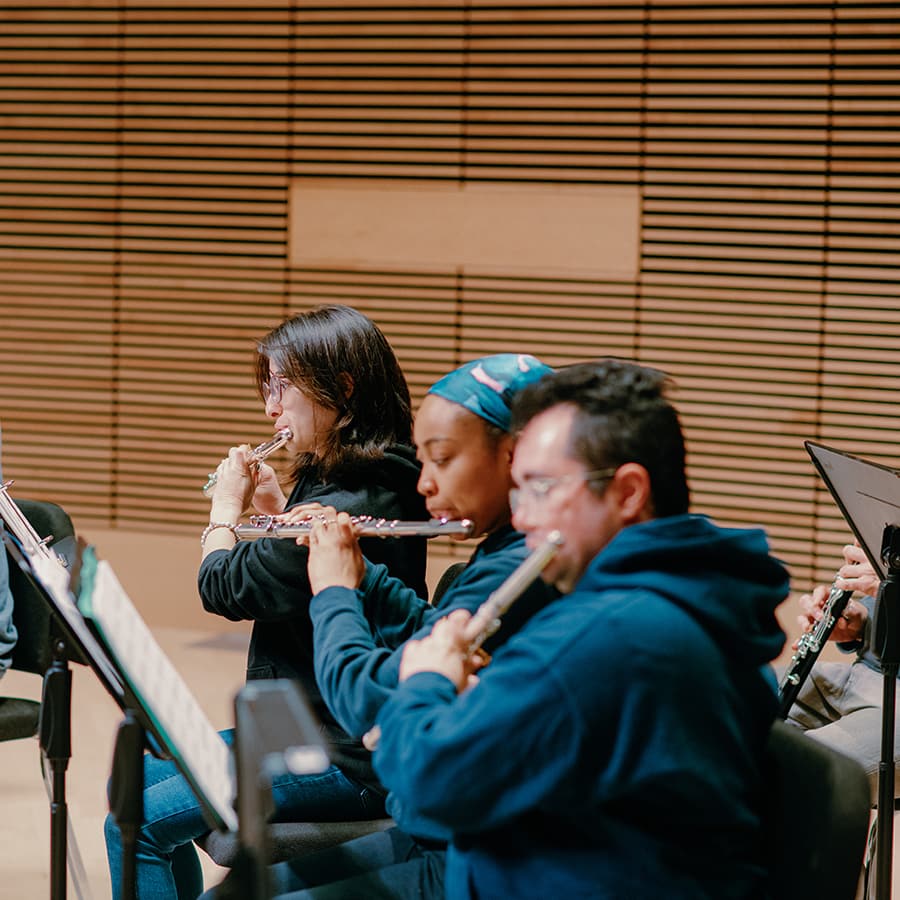
College of Liberal Arts
Learn more about the faculty, research, and programs that make up our College of Liberal Arts.
MA Creative Writing
Elevate your skills as a writer, course details.
online and part-time
Start dates
January, May and September
Next welcome week
27 May 2024
Next course start date
3 June 2024
Application deadline
17 May 2024
Total course fee
Want to learn more about this course?
Join our virtual Q&A: Exploring Environmental Narratives through Creative Writing & Photography. Book your place to attend on 16 April at 17.30 GMT.
Course overview
Develop an array of transferable skills on our MA Creative Writing course. Throughout your studies, we’ll encourage you to reflect on your own practice, explore the fundamental duty of the writer, and guide you in honing your creative identity.
Unlike other courses, we place a special emphasis on the ethical and environmental aspects of creative writing. You’ll develop the unique ability to combine the art of storytelling with a deep commitment to environmental consciousness. As a graduate, you’ll stand out because you can harness your discipline to respond to the climate crisis and drive positive change in the world.
By looking at a vast spectrum of literary genres and theoretical approaches, you’ll cultivate a holistic understanding of your craft. Coupled with a broad range of real-world insights into the contemporary publishing industry, you’ll be set to succeed as a published professional writer.
Our course modules also highlight the importance of collaboration and constructive feedback in bringing creative ideas to life. On top of this, you’ll have unique opportunities to get involved with industry-specific events like the Writing the Earth symposium.
As a graduate of Arts University Bournemouth, you’ll join a vibrant, thriving community with environmental ethics at its core. Armed with industry-ready skills and a global network, the opportunities you’ll have are boundless.
Course modules
Our academics have designed this course to explore every facet of your craft. the breadth of theoretical and practical knowledge you acquire will help you position yourself in today’s literary publishing scene. through the common thread of a reflective journal, you’ll also document your own transformative journey., the writer as researcher (15 credits).
In this introductory module, we’ll orient you with f oundational knowledge and appropriate research methods . You ’ ll be challenged to reframe your practice , charting your journey as a writer- researcher and proposing a research paper at a student-led Research Symposium . This starting point will give you a clear focus for the rest of the programme .
The Craft of the Writer (15 credits)
Together, we’ll deep-dive into all the practical elements of the writer’s craft – from notebook use and idea generation to drafting and exchanging feedback . You’ll also interrogate the concepts surrounding the lore of the writer – fro m ‘inspiration’ to ‘writer’s block ’. This will encourage you to break down your methodology and reflect on it intensively .
The Writer in the World (15 credits)
In this module we’ll take a wider view, looking at where the writer fits into the culture and societ y around them. This will involve considering their ethics, culture , activism, and public image . Y ou ’ll then develop a public-facing platform which articulates your emergent identity as a writer.
Im/Possible Worlds (15 credits)
T ogether, we’ll explore a range of imaginative genres across the full spectrum, from the grittily realistic to the wildly fantastic (e.g., science fiction, weird, speculative, solarpunk ) . You’ll explore how these often-subversive stories challenge geo political le adersh ip and cultural norms, creating a space for intellectual growth and inclusive representation. With a profound understanding of these stories , you'll develop your own prose narrative sample .
Writing in the Anthropocene (15 credits)
The Anthropocene is the current geological age, where human activity predominantly impact s the climate and environment. I n this module, we’ll explore how the climate crisis and the UN’s sustainability goals can be woven into your literary vision. Together with your cohort, you’ll look at both classic and contemporary works to see how they engage with these pressing issues.
Publishing in the 21st Century (15 credits)
Through current trends, emergent forms, and new opportunities, we’ll examine what distinguishes a 21 st Century publication from literature that precedes it. With input from a variety of industry professionals – including agents, editors, publishers, book designers, and booksellers – you’ll learn about print and publishing culture from a multi-faceted perspective .
Advanced Poetics (15 credits)
In this module, we’ll explore the power of linguistic nuance, individual word choices, and layout choices . Through the lens of current trends, emergent forms, and both classical and contemporary poe ts , you’ll develop a deep understanding of the current poetry scene. We’ll also help you cultivate your communication skills in online open mics, sharing your poetry and critical feedback with fellow students.
Transmedia Storytelling (15 credits)
With a focus on script-writing and emerging technologies, we’ll encourage you to think far b eyond traditional literary formats . We’ll consider screenplays, podcasts, audio drama, graphic novels, interactive fiction and role-playing games, to name just a few. You’ll also hear avant-garde perspectives from guest speakers at the forefront of contemporary practice.
The Proposal (15 credits)
We’ll support you in developing a professional proposal for what will be not only your Major Project , but also a real-world industry submission. You’ll research available markets and emergent publishing trends to identify a focus. By the end of this module, you’ll be capable of confidently pitching substantial creative ideas – an essential skill for flourishing in your future career .
Major Project (45 credits)
This module is the culmination of all the rigorous self-reflection, skills, and knowledge you've acquired throughout the course. You’ll produce a final written piece in a format of your choice (e.g., novel extract, short fiction, poetry, audio drama, stage script), accompanied by a critical reflective essay.

Your Course Leader
Dr Kevan Manwaring's research focuses on the ecological imaginary in fantasy and other creative forms. An academic consultant for BBC 4’s The Secret Life of Books, and a contributor to BBC Radio 3’s Free Thinking, he has much experience as a spoken word performer, panellist, and guest speaker. He blogs as the Bardic Academic .

"Dedicated writing time, quality professional guidance, and a constructively critical, supportive environment are some of the most valuable things a writer can give themselves."
Dr Kevan Manwaring | Course Leader, MA Creative Writing
Entry requirements
We encourage applications from students with a broad range of qualifications and we welcome students from all educational backgrounds. We’ll take into account the knowledge and skills that you have developed outside the classroom, as well as your previous qualifications.
There are two different routes to entry: the standard and non-standard routes. Admissions staff will assess entries to determine which route is appropriate for you when you apply.
Students accepted on the standard route are given offers based on qualifications and supporting documentation alone. If you do not have a qualification at the designated level or in a subject not directly related to the course to which you are applying, you’ll be contacted to request a portfolio , and/or given an interview date.
You'll usually have BA (Hons) Degree graded at 2.2 or above, or an equivalent UK or international qualification in creative writing or the following related subjects: english literature, english language, screenwriting, journalism, writing for games, business writing, or any humanities subject.
As an overseas applicant, you’ll need to validate your proficiency in English. We accept a range of English language qualifications:
- Cambridge Certificate of Advanced English (CAE) grade C
- Cambridge Certificate of Proficiency in English (CPE) grade C
- Certificate of Attainment in English (London Board) level 5 or 6
- IELTS score of 6.0 or above with at least 5.5 in each band
- TOEFL iBT score of 80 or above with 19 in speaking, and 18 in listening, reading and writing
- Pearson PTE score of 64 and over, with a score of 59 in each component
IELTS, Pearson, and TOEFL scores must be less than two years old at the time the course commences to be valid.
If you don’t have the standard academic qualifications, you could still be considered for entry if there’s sufficient evidence to indicate that you can fulfil the objectives of the course of study and achieve the standard of the final award. An example of this would be to showcase a portfolio of work as requested by the admissions team.
We also welcome applications from anyone with other qualifications or work experience that demonstrates appropriate knowledge and skills to study at postgraduate level.
Fees and funding
The fees that you pay AUB help provide the necessary services and training for you to complete your course. There are a number of different ways that you can pay for your tuition.

How to apply
Head to our online application form to apply directly to us. We encourage applications from students with a broad range of qualifications – we'll take into account the knowledge and skills that you've developed outside the classroom as well.

Meet your Industry Patron

Michelle Zeitlin
MA Creative Writing Industry Patron
We’re delighted to welcome Michelle as the patron of our course and have her help our students reach their full potential. Michelle's role involves:
- Being actively involved in ensuring that the programme is grounded in industry practice and sets students up for success
- Acting as a vital connection between the industry itself and the course
- Holding exclusive talks for students
- Helping students put their work on the map and contextualising projects
View profile
Careers and opportunities in Creative Writing
The versatile, distinctive skillset you acquire on this course will open up a wide variety of options for your future – in terms of both employment and further academic study. Projects such as the anthology submission will be viable for industry publishing, and through your final project, you’ll already have first-hand experience delivering an outstanding pitch.
You’ll also benefit from guidance as part of the AUB Course Industry Patron scheme: a formal connection with a creative writing practitioner who offers unique collaborative opportunities and close relations within the industry.
The project management, collaboration, market analysis and critical thinking skills you develop will increase your chances of employability as a writing professional – whether your goal is to be a freelance writer, in-house author, or publisher. On top of this, you’ll develop core soft skills surrounding resilience and flexibility that are highly sought-after in today’s fast-changing global economy.
Here are just a few of the options you could pursue as an MA Creative Writing graduate:
You could also pursue opportunities in research, lecturing, lexicography, and communications.
Join us in May 2024
Related resources, studying a creative course online.
Master studying creative courses from your own space. Explore insights, tips and strategies to...
What are the advantages of studying a creative course online?
Looking to develop your creative practice without giving up your current job? Discover the benefits...
How do you become an interior or architectural interior designer?
Find out about the skills and attributes you need to succeed as an Interior or Architectural...
Start your creative journey here.
Want to chat or ask a few questions? Fill this in and we’ll give you a call back.

The Old New Thing

Adding state to the update notification pattern, part 2
Adding state to the update notification pattern, part 1
In search of the ballmer peak, and other results from sigbovik 2024, dubious security vulnerability: program allows its output to be exfiltrated, what were the tax consequences of letting windows 95 team members keep a piece of software as long as they tested it, the case of the string being copied from a mysterious pointer to invalid memory, why do standard_ rights_ read , standard_ rights_ write , and standard_ rights_ execute have the same values, how can i find out which process has locked me out of the clipboard, if i enumerate all the processes and add up all the getguiresources , why doesn’t it match the gr_ global value, how does the classic win32 listview handle incremental searching.

- Economic growth Boosting skills and increasing prosperity
- Transforming health Improving healthcare and developing talent
- Undergraduate open days
- Order a prospectus
- Subject areas
- Why study at Manchester Met?
- Chat to our current students
How to apply
- Schools and colleges
- Parents and guardians
- Mature students
- Online learning
- Admissions policies and procedures
- Virtual tour
- Postgraduate open days
- Join us in January 2024
- Find a postgraduate course
- Professional development
- Research study
- Information for employers
- Funding and the levy
- Employer case studies
- Apprenticeship information for students
- Student case studies
- Apprenticeship Research Unit
- How to apply for accommodation
- Living in halls
- Your contract
- Rent a private property
- Course enquiries Ask us a question
- Find your country
- Before you apply
- When you have an offer
- Apply for your visa
- Exchange to Manchester Metropolitan
- Study abroad
- Becoming a partner
- Innovation Work with world-leading academics
- Leadership and growth Get training and support from specialists
- Talent, recruitment and development Connect with our students. Develop your people
- Conferences and events Hire our spaces, technology and facilities
- Championing creative excellence
- Driving economic growth
- Leading sustainability
- Tackling inequalities
- Transforming health
- Case studies
- Research Excellence Framework
- Engaging the public with our research
- Equality, Diversity and Inclusion
- Our commitment to researchers
- Why study a doctoral degree
- Choose Manchester Met
- PhDs and Doctoral Degrees
- Research degree subjects
- Postgraduate research fees
- Scholarships
- Doctoral College
- News and events
- Academic partnerships
- Ethics and Governance
- Responsible metrics
- Internationalisation
- Board of Governors
- Vice-Chancellor
- University Executive Group
- Faculty of Arts and Humanities
- Faculty of Business and Law
- Faculty of Health and Education
- Faculty of Science and Engineering
- Institute for Children's Futures
- Institute of Sport
- Professional Services
- Honorary graduates
- Environment
- Equity, Diversity and Inclusion
- Close Search mmu.ac.uk Search
- Economic growth
- Undergraduate
- Postgraduate
- Apprenticeships
- Become a degree apprentice
- Accommodation
- Course enquiries
- International
- Study at Manchester Met
- International partnerships
- Business and employers
- Leadership and growth
- Talent, recruitment and development
- Conferences and events
- Our research
- Research Integrity
- Our strategy
- Current students
- MFA Creative Writing
Creative Writing
Join our community of internationally renowned, award-winning writers at the Manchester Writing School, where collaboration and experimentation are at the heart of what we do.
Course overview
On our Master of Fine Arts (MFA) programme, you will explore and practice techniques and styles of modern and contemporary writing and apply these through the development of your own full-length book or script.
MFA students undertake all of the elements of our MA Creative Writing programme (a taught element blending writing workshops with reading units, option units, and a dissertation), then take an additional unit about the publishing, literary and arts industries and submit a full-length manuscript: a completed novel or short story collection, poetry collection, book for children or young adults, script for stage, screen or radio, or book of creative non-fiction.
You will be introduced to professionals from the publishing industries, which may include literary agents, publishers...
What you need to know
- When does the course start? September 2024 January 2025
2 years full-time (campus) 3 years part-time (campus or online)
Students can begin studying in January or September.
- Where will I study this course? Manchester , Online
Features and benefits
"One of the greatest pleasures of my working life continues to be the Manchester Writing School at Manchester Metropolitan University, a department with a real sense of family, achievement and celebration, and an ethos of nurturing and innovation." Professor Carol Ann Duffy DBE – Creative Director of the Manchester Writing School
Course Information
At the heart of the Manchester Writing School are our masters programmes in Creative Writing, available to study on campus in Manchester, and also from anywhere in the world via online distance learning.
MFA Creative Writing can be tailored to suit your writing preferences by following a specialist route in Novel (including Short Fiction), Poetry, Writing for Children & Young Adults, Scriptwriting (for stage, screen or radio) or Creative Non-Fiction. Watch our playlist to find out more about each route.
This MFA blends writing workshops, where you produce and develop your own work-in-progress, with regular feedback from tutors and fellow students, with reading courses, which look at the techniques, forms and styles used by a range of writers in modern and contemporary literature. All students also take 30 credits of optional units and can choose from a range of creative writing units or options from courses across arts and humanities subjects. MFA students also take a unit about the publishing, literary and arts industries, introducing you to a range of professional opportunities. The final piece of work for the MFA is the Manuscript – a full-length book or script completed with one-to-one supervision from a Manuscript Mentor.
The MFA is available to complete in two years full-time or three years part-time. The novel and poetry routes are available to study on campus (full-time or part-time) or online (part-time only). The writing for children and creative non-fiction routes are online (part-time) only. The scriptwriting route is available to study on campus only. We have intakes to the programme in September and January each year.
Visit the Manchester Writing School website for more information, including profiles of staff and published students, news, events and projects.
Please visit our scholarships page for information on funding opportunities .
The programme leader for this course is James Draper .
Classes for core Workshop and Reading units take place in the evenings (6-8pm UK time) during the autumn and spring semesters. Full-time students take all of these units in a single year and usually have classes two evenings per week. Part-time students spread these units over two years (running order may vary depending on specialist route) and usually have classes one evening per week. All students take 30 credits of option units, which run in the spring semester; delivery models and scheduling vary depending on choice and availability. This part of the MFA concludes with the submission of the Creative Dissertation, completed through independent study with one-to-one support from a Dissertation Supervisor.
Creative Dissertation
This unit will build on and progress material produced during the Workshop units. You will compile and edit your creative writing into a substantial, continuous extract from a proposed longer work-in-progress and provide a Genesis Document: an account of the origins of and inspirations for your writing.
Reading Unit 1
This route-specific unit looks at the forms, themes, styles and techniques used by a range of writers in literature. Outstanding writing is considered in terms of composition, process and presentation, and its relevance to your own work-in-progress.
The Workshop
Workshops are led by established practitioners in the specialist literary field (Novel, Poetry, Writing for Children/Young Adults, Scriptwriting or Creative Non-Fiction), giving student writers a committed editorial readership of professionals and peers, and generating and developing material for a proposed full-length book or script. It is expected that the creative work generated will eventually contribute to your Dissertation and Manuscript.
Option units
Creative project.
On this unit, you will be asked to devise, scope, plan, conduct, report and reflect on a creative project of your own choosing. The project should involve a significant stretch from your core work on the programme and explore a new practice. This can be either working in a writing discipline different to your main route through the course, or by adapting or applying your work in a new context.
Green Writing
This unit will explore how creative writers can engage with ecological emergency during a time of crisis. The unit will examine different approaches to writing about nature, ecology and the environment, and demonstrate ways to respond creatively to contemporary climate science. You will study key texts in the field and produce your own original creative work using techniques drawn from those materials, learning how to bring traditionally ‘non-fiction’ perspectives into the realm of fiction.
Reading Unit 2 (30 credits)
Remaking games: creativity, play and communication.
This unit explores the theory and practice of hacking and making games as a research method and mode of creative practice. It considers the intersection between creative writing and game design. In the unit we introduce students to reading and making games as a new methodology that combines creative and critical thinking with public engagement and impact at the point of research. For creative writers, the unit helps develop new ways to explore narrative and storytelling through interactive fiction, videogames and analogue games. You will develop new communication skills as part of the research process, creating games to share with other students and wider audiences as a way of engaging the public with your research.
Teaching Creative Writing
This unit introduces techniques for developing and delivering creative writing workshops in a range of settings and considers how to encourage would-be participants to produce original writing in a variety of styles and genres. Consideration of key pedagogic theories and analyses of demonstrations will offer background context and enable critical reflection on workshop practice.
Writing About Relationships
This course unit explores writing about love and partnership and is designed to help you gain confidence, avoid cliché and improve the quality of your prose style as you write about human relationships and intimacy.
Study and assessment breakdown
10 credits equates to 100 hours of study, which is a combination of lectures, seminars and practical sessions, and independent study. A masters qualification typically comprises of 180 credits, a PGDip 120 credits, a PGCert 60 credits and an MFA 300 credits. The exact composition of your study time and assessments for the course will vary according to your option choices and style of learning, but it could be:
- Full-time 34% lectures, seminars or similar; 0% placement; 66% independent study
- Part-time 34% lectures, seminars or similar; 0% placement; 66% independent study
- Full-time 100% coursework; 0% practical; 0% examination
- Part-time 100% coursework; 0% practical; 0% examination
Placement options
The Manchester Writing School is one of the UK's leading schools of creative writing. It is also home to ground-breaking outreach activities, international writing competitions, a series of city-wide literary events, innovative publishing projects, the Manchester Children's Book Festival , and Manchester Poetry Library . These activities will provide you with many opportunities to get involved and develop your experience in a number of exciting directions.
Year two of our MFA includes the development of a manuscript for a full-length book or script within your specialist route, completed through independent study with one-to-one support from a Manuscript Mentor. This is usually a continuation of the Creative Dissertation, but can be a new project. The year also includes a series of seminars and Q&A sessions with experts from the publishing, literary and arts industries in the spring semester. These units take place in year three for those studying the MFA part-time.
The Industry (30 credits)
You will learn and acquire practical information about various aspects of the publishing, literary, arts and related industries through seminars and Q&A sessions with guest speakers. These may include agents, editors, publishers, publicists, booksellers, directors, producers, broadcasters, filmmakers, freelancers, performers, artists and illustrators. This unit is designed to give you a broad overview of the state of the industry, as well as some specialist knowledge about opportunities available for those working in your specialist area, as you complete your manuscript.
Manuscript (90 credits)
On this practice-driven unit, you will complete a full-length manuscript for a book or script within your chosen MFA route: Novel (or Short Fiction), Poetry, Writing for Children/Young Adults, Scriptwriting (for stage, screen or radio), or Creative Non-Fiction. The unit is completed over a full year and involves ongoing independent writing with regular one-to-one editorial input from a dedicated Manuscript Mentor. The final submission will consolidate your learning, research and writing to-date into a fully-realised and complete body of work.
Whether you've already made your decision about what you want to study, or you're just considering whether postgraduate study is right for you, there are lots of ways you can meet us and find out more about postgraduate student life at Manchester Met.
- a virtual experience campus tour
- chats with current students
Taught by Experts
Your studies are supported by a department of committed and enthusiastic teachers and researchers, experts in their chosen field.
We often link up with external professionals too, helping to enhance your learning and build valuable connections to the working world.
Entry Requirements
Application is by submission of an online form including a personal statement, and a sample of your own creative work. Your application should be tailored to one of our specialist routes: Novel, Poetry, Writing for Children & YA, Scriptwriting or Creative Non-Fiction. You can apply online here: mmu.ac.uk/study/postgraduate/apply/postgraduate-taught-course .
Please indicate at the top of your personal statement which specialist route you are applying for. You should use the rest of the statement to tell us a bit about yourself, give a good overview of your reading and writing interests, and a sense of what has led you to apply for our course and any ideas you have for what you’d like to write with us. Personal statements should be approximately 500 words long.
For the creative sample, applicants to the Novel, Children's & YA and Creative Non-Fiction routes should submit up to 2,000 words of prose; poetry applicants should submit up to 15 poems; and scriptwriting applicants should submit up to 15 minutes running time of script. The work submitted can be a complete piece, or an extract, or a number of extracts from a longer work or works, but must all be within the chosen specialist route.
We have intakes into the programme in September and January each year. For application deadlines, and links to apply, please see the 'How to Apply section'.
In each application assessed we will be looking for evidence of:
A very high standard of written English; Control of form, style and technique; Substantial reading of contemporary work within the relevant field; Commitment to the craft of writing and willingness to engage with the editorial process of receiving feedback and redrafting work-in-progress; Experience of the development of writing skills through workshops, supervision, mentoring or previous study.
Applicants whose first language is not English are required to produce evidence of English Language proficiency. Overseas applicants will require IELTS with an overall score of 6.5, with no sub-component below 5.5, or an equivalent accepted English qualification.
Accepted English qualifications can be viewed here .
Fees and Funding
Uk and channel island students.
Full-time fee: £1584 per 30 credits per year. Tuition fees will remain the same for each year of your course providing you complete it in the normal timeframe (no repeat years or breaks in study).
Part-time fee: £1584 per 30 credits studied per year. Tuition fees will remain the same for each year of your course providing you complete it in the normal timeframe (no repeat years or breaks in study).
Distance learning fee: £1584 per 30 credits studied per year. Tuition fees will remain the same for each year of your course providing you complete it in the normal timeframe (no repeat years or breaks in study).
EU and Non-EU International Students
Full-time fee: £3084 per 30 credits per year. Tuition fees will remain the same for each year of your course providing you complete it in the normal timeframe (no repeat years or breaks in study).
Part-time fee: £3084 per 30 credits studied per year. Tuition fees will remain the same for each year of your course providing you complete it in the normal timeframe (no repeat years or breaks in study).
Distance learning fee: £3084 per 30 credits studied per year. Tuition fees will remain the same for each year of your course providing you complete it in the normal timeframe (no repeat years or breaks in study).
Additional Information
A masters qualification typically comprises 180 credits, a PGDip 120 credits, a PGCert 60 credits, and an MFA 300 credits. Tuition fees will remain the same for each year of study provided the course is completed in the normal timeframe (no repeat years or breaks in study).
Additional Costs
Specialist costs.
Compulsory estimate : £300
Optional estimate : £2200
Books (novels, poetry collections, children/young adult books, scripts in print, or books of creative non-fiction depending on the specialist route of study) for study on Reading units (up to 10 books per unit for two units). Costs spread across years one and two for part-time students. There is also a list of additional, optional recommended reading for each unit students can access much of this via the Manchester Met library (either by loaning books or via the e-book system). All students will require access to a computer in order to undertake their studies (accessing online resources, forums and communication systems). Students can use loan laptops on campus. Students will also need access to broadband internet. While most students choose to purchase these for home use, computers with internet access are available to use on campus.
placement Costs
Compulsory estimate : £100
There is an optional summer school each year, where students are invited to spend two full days on campus for a suite of masterclass workshops, talks and social activities. Attendance at the school is free of charge, but students are asked to make their own arrangements for travel, accommodation and food. Students undertaking units which involve creating artwork, producing objects, or travelling to conduct research or interviews, etc. will need to cover the costs of any materials used and also make arrangements for accommodation, travel and food. Students based outside of Manchester, including distance learners, who wish to attend on-campus or in-person events, activities or classes are asked to cover the costs of accommodation, food, travel and additional fees for these.
other Costs
Optional estimate : £500
Students may be invited to take part in optional public events (e.g. reading from their own work) and are expected to cover the costs of travel, accommodation and food.
Career Prospects
More than 100 of our students and graduates have embarked upon publishing careers, launching first books, with many more achieving publication in journals and magazines, winning writing awards and prizes, and setting up small presses and anthologies. Our alumni include winners of the Costa First Novel Award, Forward Poetry Prize and Yale Windham-Campell Prize, and a long-listing for the Man Booker Prize.
Our School plays a leading role in establishing Manchester as a city of writers with a commitment to finding diverse new voices and creating opportunities for writer development, enabling new writing and building audiences for the next generation of talent. Manchester has been designated a UNESCO City of Literature in recognition of its thriving live literature scene, with a year-round programme of author events, writers’ forums, networking opportunities and open mic nights.
We are home to a suite of ground-breaking outreach projects including the Manchester Children’s Book Festival and Mother Tongue Other Tongue , an international multilingual poetry competition that celebrates cultural diversity and the many languages spoken in schools in the UK. Our Manchester Poetry Library holds over 12,000 books and recordings that can be explored through our online catalogue, in person and through our annual events programme. Our School has a strong Manchester presence, with links to many of the city’s major cultural and arts organisations, and also a global reach with students and alumni based across the UK and continental Europe, and in the Americas, Africa, Asia and Australasia.
Our strong partnerships and innovative projects mean that you will have plenty of opportunities to develop your industry experience and network.
On completion of this course you may decide to pursue PhD study, or to develop a career in bookselling, agenting, publishing, editing, the media, or in teaching creative writing. Students have access to the Careers and Employability Hub located in the Business School, offering a host of information resources, one-to-one careers support and employability events throughout the year. This service is also available for up to three years after you graduate.
The Power of Words Led by Professor Carol Ann Duffy DBE (UK Poet Laureate 2009-2019), the Manchester Writing School is the beating literary heart of a city alive with culture. Find out more about its prestigious past, present and future by watching our video, 'The Power of Words'. Watch the video Manchester Writing School
Want to know more
Register your interest, got a question.
Please contact our course enquiries team.
Please remember to tailor your application to one of our specialist routes (Novel, Poetry, Writing for Children, Scriptwriting or Creative Non-Fiction) and to include a creative sample relevant to that chosen route.
Please upload your creative sample under the 'Degree Transcript' section of the application portal.
The novel and poetry routes are available to study on campus (full-time or part-time) or online (part-time only). The writing for children and creative non-fiction routes are online (part-time) only. The scriptwriting route is available to study on campus only.
Get advice and support on making a successful application.
You can review our current Terms and Conditions before you make your application. If you are successful with your application, we will send you up to date information alongside your offer letter.
Manchester is your city, be part of it
Your new home, your new city, why university, related courses, english studies.
Programme Review Our programmes undergo an annual review and major review (normally at 6 year intervals) to ensure an up-to-date curriculum supported by the latest online learning technology. For further information on when we may make changes to our programmes, please see the changes section of our Terms and Conditions .
Important Notice This online prospectus provides an overview of our programmes of study and the University. We regularly update our online prospectus so that our published course information is accurate. Please check back to the online prospectus before making an application to us to access the most up to date information for your chosen course of study.
Confirmation of Regulator The Manchester Metropolitan University is regulated by the Office for Students (OfS). The OfS is the independent regulator of higher education in England. More information on the role of the OfS and its regulatory framework can be found at officeforstudents.org.uk .
All higher education providers registered with the OfS must have a student protection plan in place. The student protection plan sets out what students can expect to happen should a course, campus, or institution close. Access our current Student Protection Plan .

IMAGES
VIDEO
COMMENTS
The MA is available to complete in one year full-time or two years part-time. The novel and poetry routes are available to study on campus (full-time or part-time) or online (part-time only). The writing for children and creative non-fiction routes are online (part-time) only. The scriptwriting route is available to study on campus only.
MA in Creative Writing (Online) Mode: 100% online (with optional events) Length: two years (part-time) Total course fees: £10,600 ( instalments and funding options available) Start dates: January, May and September.
Creative Writing: January start MA: 2 years part-time, on campus, starting in academic year 2024-25 Academic year 2024-25, starting January 2025. Part-time home students: £5,400 per year Part-time international students: £9,915 per year. Students are charged a tuition fee in each year of their course. Tuition fees for students continuing on ...
On this MA Creative Writing degree course, you'll study the genres that inspire you the most - from poetry and historical fiction, to screenwriting and crime - as well as genres you may not have explored, taking your writing in new directions. You'll spend plenty of time writing and reviewing work and benefit from the help and experience of ...
Apply now for Kingston University London's Creative Writing Distance Learning MA degree. ... Start date; Full time: 1 year: Full-time students can attend two campus days, scheduled annually in mid-October and early January. September 2024 : Part time: 2 years: Part-time students normally attend the October campus day in the first year and the ...
3 Programme Title(s) MA Creative Writing 4 Programme Code(s) TMACWRIT_C TMACWRIJ_C (Jan start, part-time only) 5 UCAS code N/A ... January start Year 1 Level Module Code Module Title Credits Status* Likely term 7 ENHU039S7 The Writing Workshop 30 Compulsory Spring (T2) 7 AREN292S7 Writing the Planet 30 Compulsory Summer ...
The Creative Writing: Writing the City MA is the only Creative Writing MA course to focus entirely on the city of London. It will allow you to explore the city as subject matter from a range of perspectives and across all genres. ... You can begin in January or in September. To receive your Master's award, you'll need to complete taught modules ...
Applications are now open for programmes with a January 2024 start. ... The MA in Creative Writing is designed for students to develop a longer piece of work during the MA, or find out what their strengths are in the different forms. It is for people, of any age, whether recent graduates or older, who wish to grow their talent quickly by ...
1 year full-time (September start), 17 months full-time (January start), 2 years part-time (September and January start). All options are available to study in-person or online. Entry requirements: ... MA Creative Writing and Publishing students are immersed in a vibrant media culture and have access to an extraordinary range of multimedia ...
The MA is designed for students with an established writing practice who are intending to develop their creative writing beyond first-degree level. It is also designed for those students wishing to proceed to MPhil or PhD. This MA is taught at our central London location, in the heart of literary Bloomsbury, putting you within walking distance ...
Apply now for Kingston University London's Creative Writing MA degree. This is a uniquely flexible programme designed to enable students to develop the craft of creative writing while specialising in a chosen form or genre of popular literature. ... Start date; Full time: 1 year: September 2024 : Full time: 2 years including professional ...
MA Contemporary Creative Writing. £2,250 for all accepted students, reducing tuition fees to £7,065. £315 for all students who submit their application by 15 May 2024, further reducing tuition fees to £6,750. Postgraduate master's loan funding up to £12,167 for eligible UK students.
The MA in Creative Writing is a uniquely inspirational programme that delivers integrated training in the writing of literary and media text. ... Writing the Self: January-June: 20: EN-M37: Art of The Short Story: January-June: 20: EN-M38: Poetry 2: January-June: 20: ... Start Date UK International; September 2023 £ 4,150
Creative Writing MA, PGCert. Our PGCert and MA in Creative Writing provide a unique opportunity to explore and develop your creative writing skills through practice, revision and discussion. You are currently viewing course information for entry year: 2024-25. Start date (s): September 2024. View course information for 2023-24. Fees and funding.
Start date. Teaching begins for most courses on Monday 22 January 2024. ... Moodle - MA Creative Writing. Start date. Teaching begins for most courses on Monday 22 January 2024. Your course team will be in contact with all the information you need to start your course with us.
For entry in the academic year beginning September 2024, the tuition fees are as follows: MA (full-time) UK students (per annum): £12,500. International, including EU, students (per annum): £26,000. MA (part-time)
Masters Degrees in Creative Writing still available for January start in 2024. You have searched for Creative Writing Masters courses. There are currently no Masters courses listed for this search, why not try: All Creative Arts & Design Masters courses (0 courses listed) Alternatively, you can start a new Masters search. Find a PhD is a ...
Our MA Creative Writing and Contemporary Studies will help develop your writing to a professional level so you can position it in the context of contemporary developments. ... January start MA: 2 years part-time, on campus, starting in academic year 2024-25 Academic year 2024-25, starting January 2025 ...
Fees and funding. Our tuition fee for UK students starting full-time study in 2024/25 is £10,310 for the course. The tuition fee displayed above is for the full course. If the full course is more than one year in duration, the fee will be divided into annual payments which will then be rounded.
UMass Boston's Creative Writing MFA offers you an intense, 3-year program and focused opportunity to further your commitment to writing as the center of your professional life. Through a combination of mentoring by accomplished faculty in a series of creative writing workshops, courses focused on the study of literature offered through the ...
A master's degree in Creative Writing from Central Michigan allows you to immerse yourself in stories and ideas, and gain skills that translate to any career. ... Start dates. Fall 2023: August 28. Spring 2024: January 8. Start your application. Related Programs Communication . Broadcast and Cinematic Arts . History .
The MA is available to complete in one year full-time or two years part-time. The novel, poetry and scriptwriting routes are available to study on campus (full-time or part-time) or online (part-time only). The writing for children and creative non-fiction routes are online (part-time) only. We have intakes to the programme in September and ...
January, May and September. Next welcome week. 27 May 2024. Next course start date. 3 June 2024. Application deadline. 17 May 2024. Total course fee. £9,900. Want to learn more about this course? ... Develop an array of transferable skills on our MA Creative Writing course. Throughout your studies, we'll encourage you to reflect on your own ...
The case of the string being copied from a mysterious pointer to invalid memory. April 12, 2024. Raymond Chen. Using AppVerifier to deduce the heap allocation history. 7 5. Code.
MFA students undertake all of the elements of our MA Creative Writing programme (a taught element blending writing workshops with reading units, option units, and a dissertation), then take an additional unit about the publishing, literary and arts industries and submit a full-length manuscript: a completed novel or short story collection ...